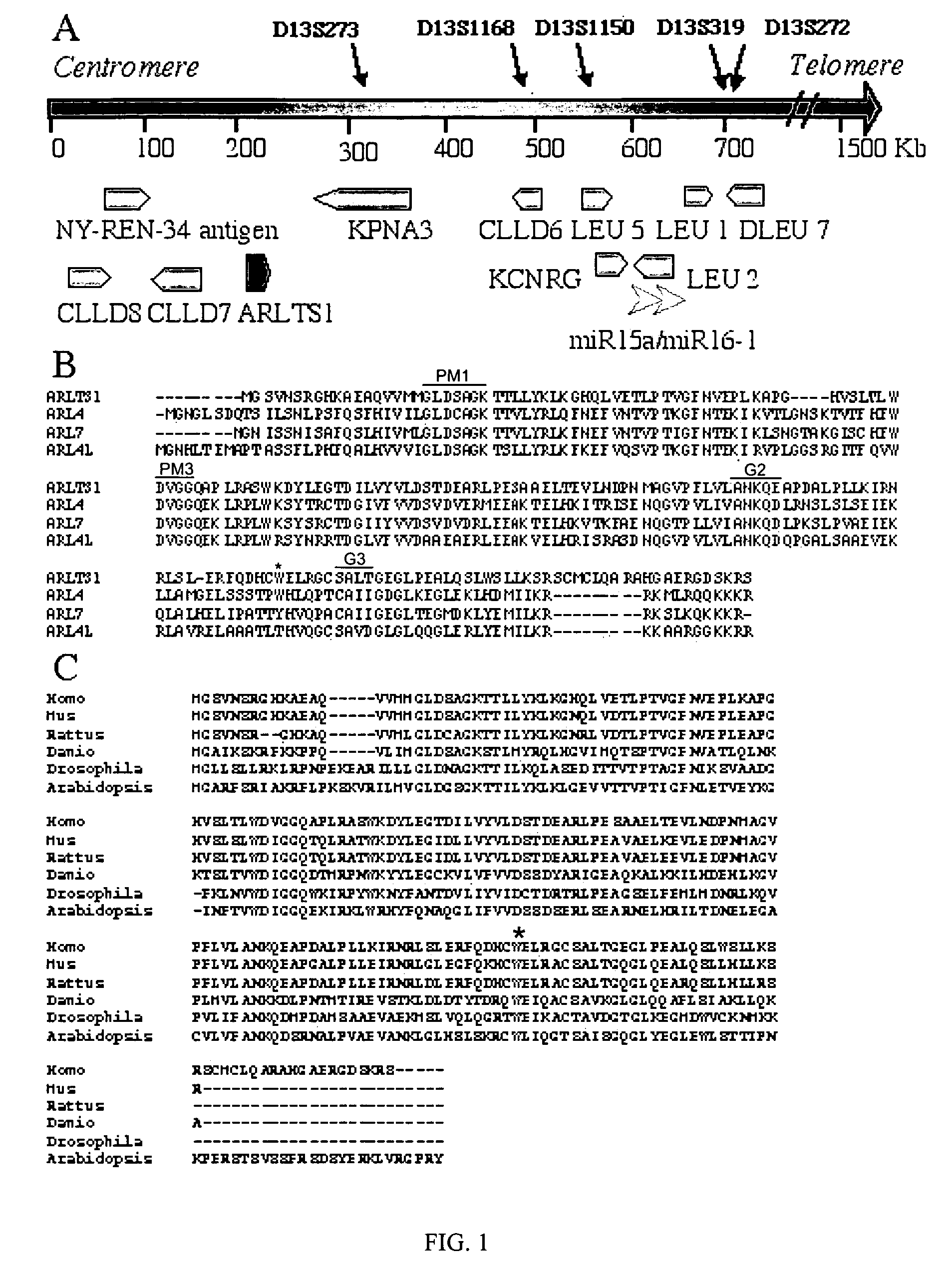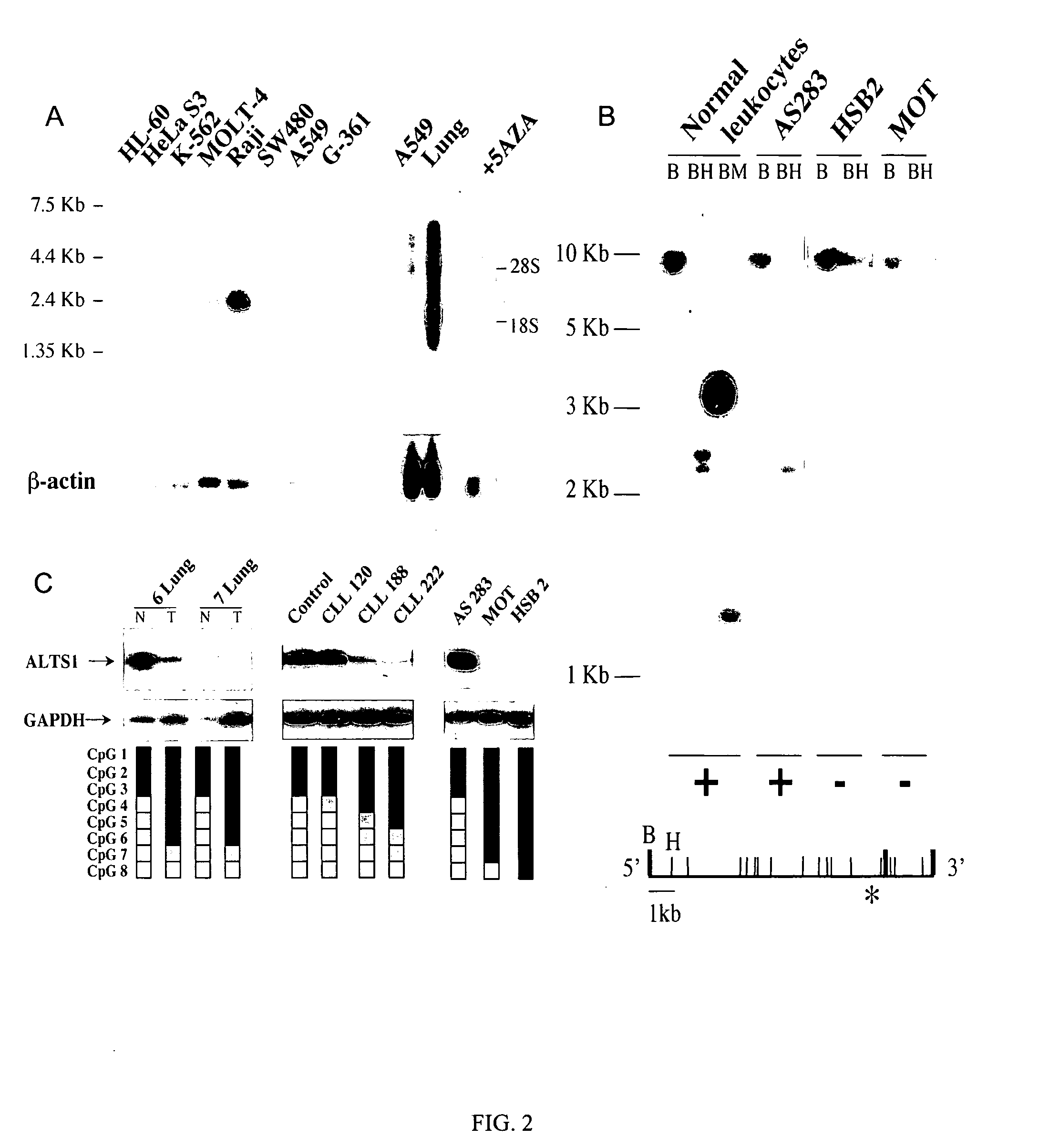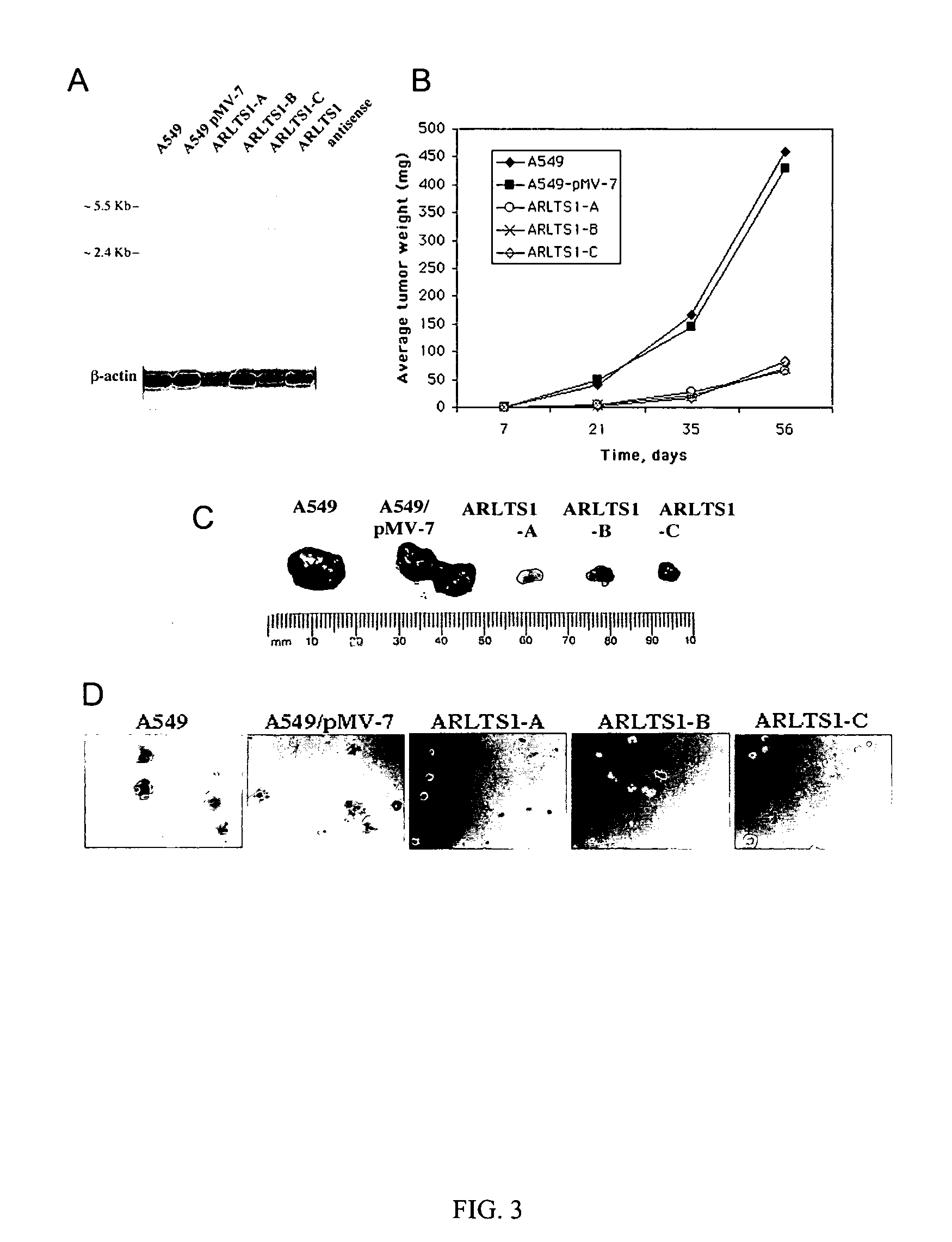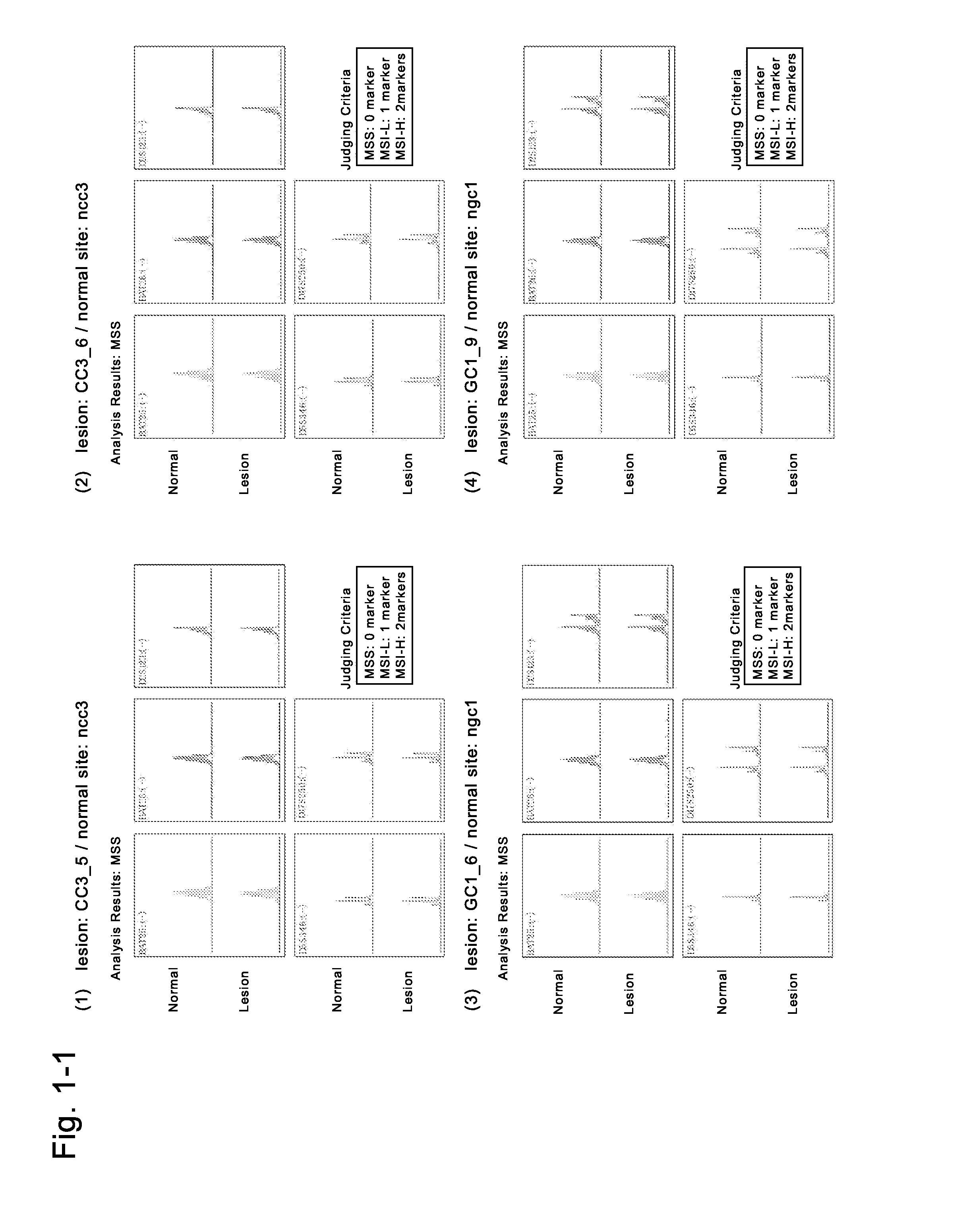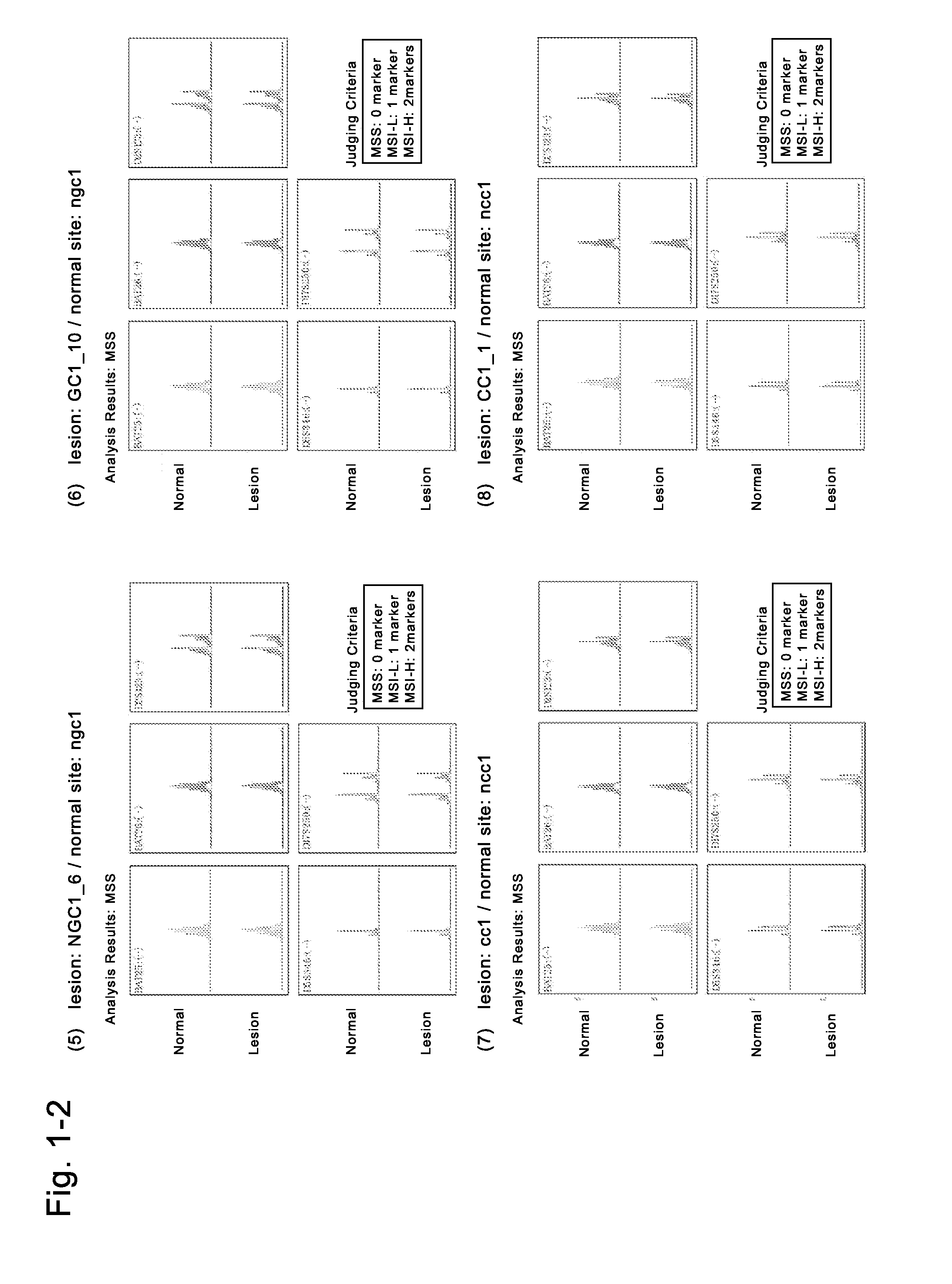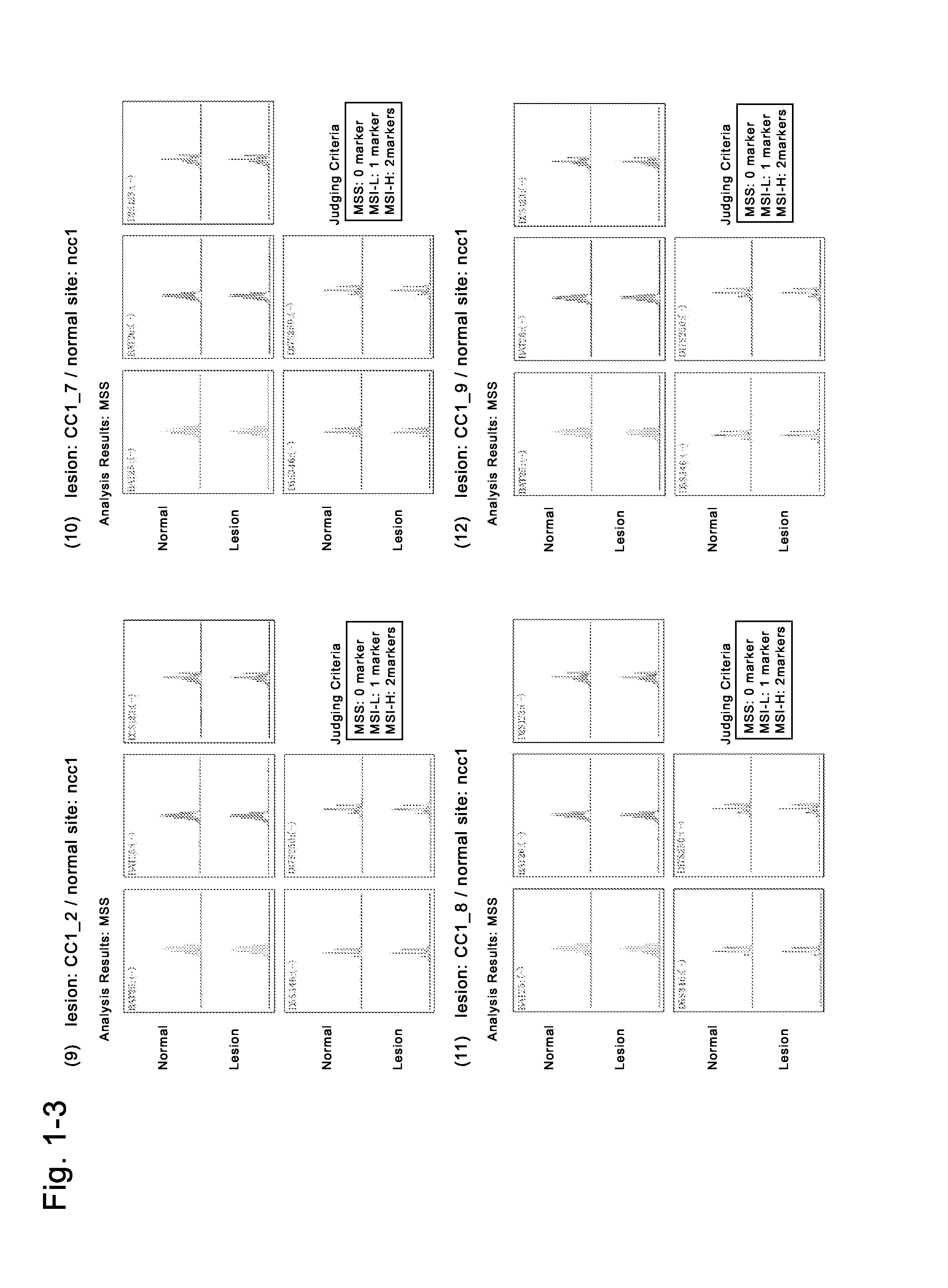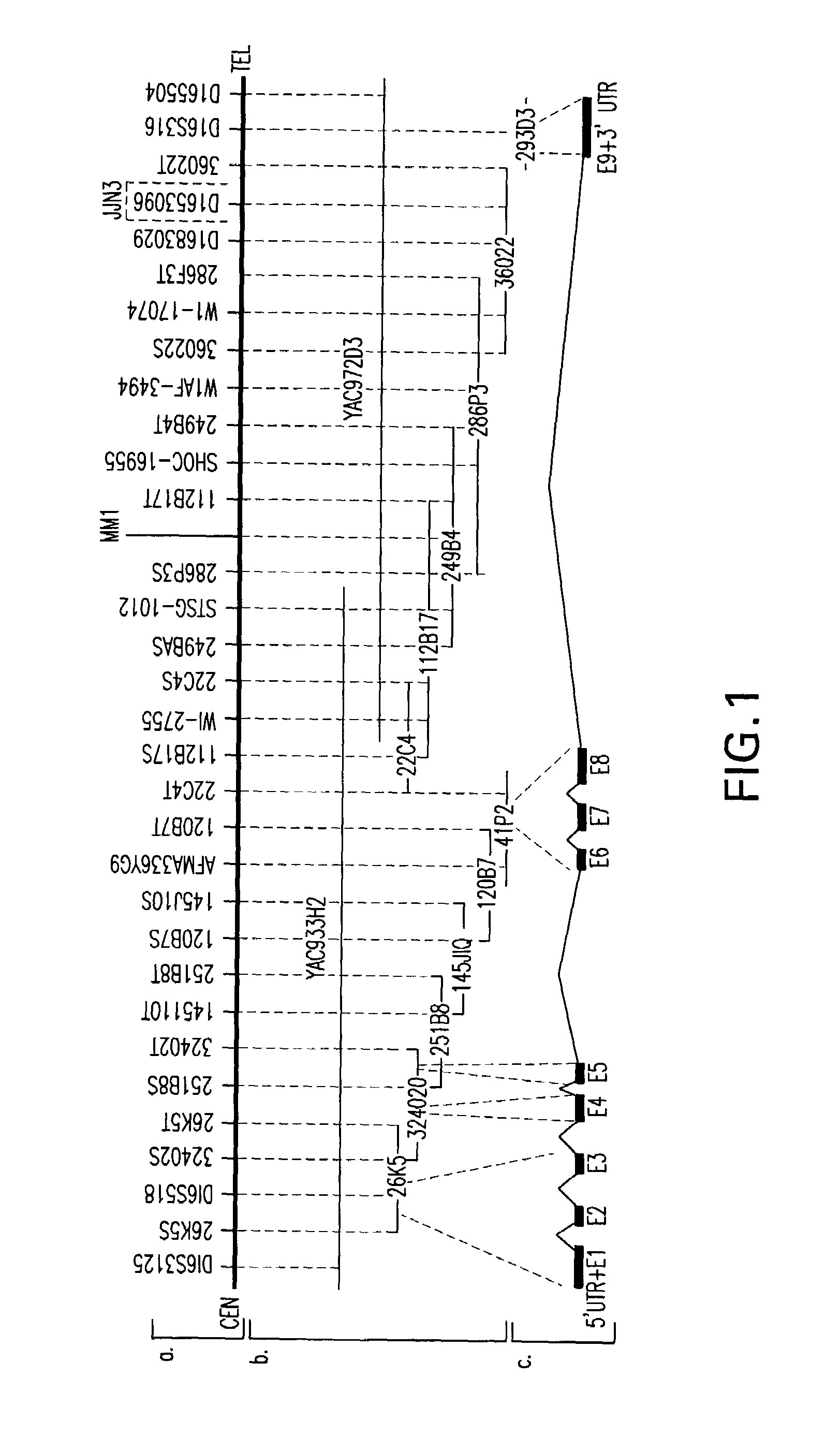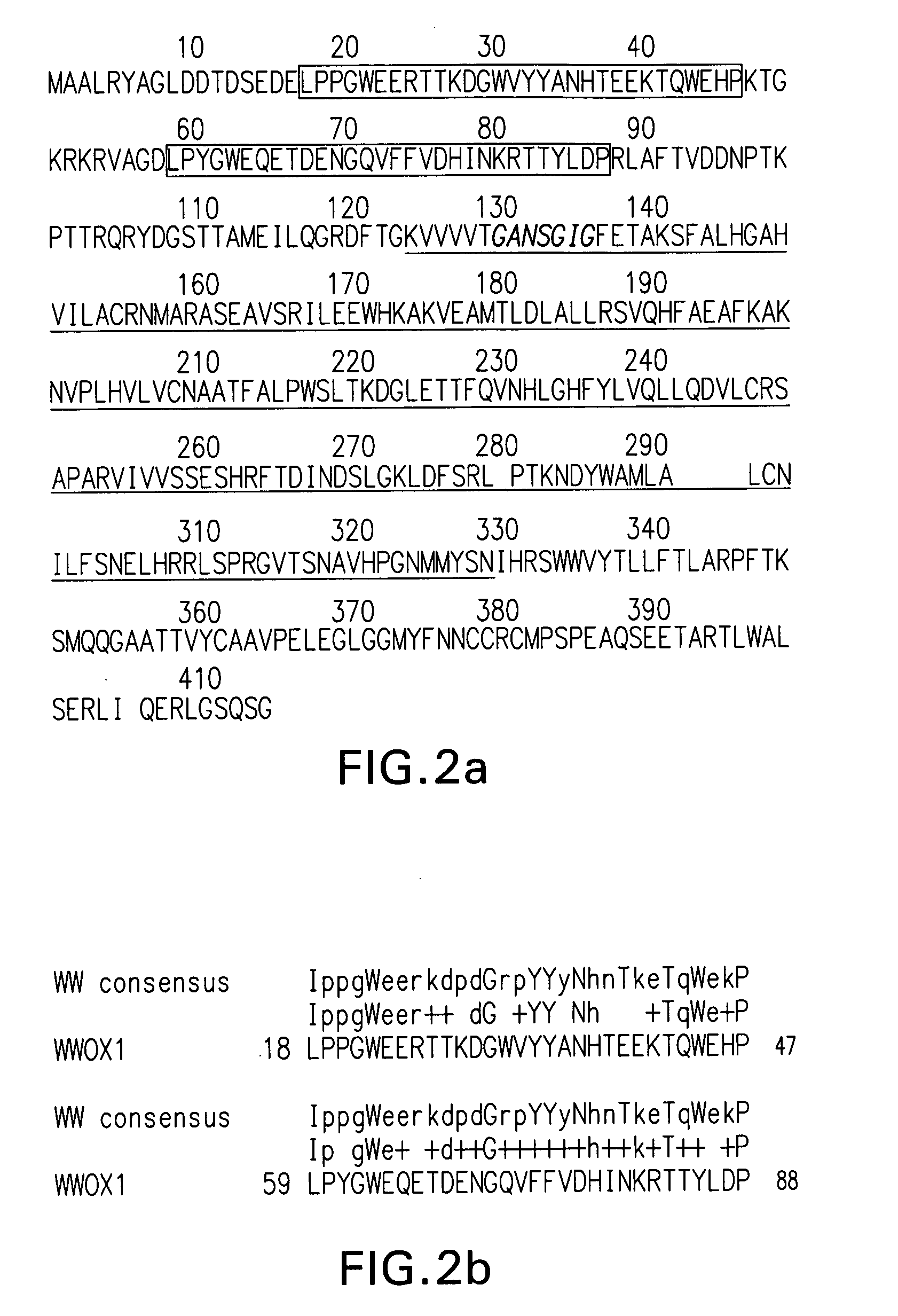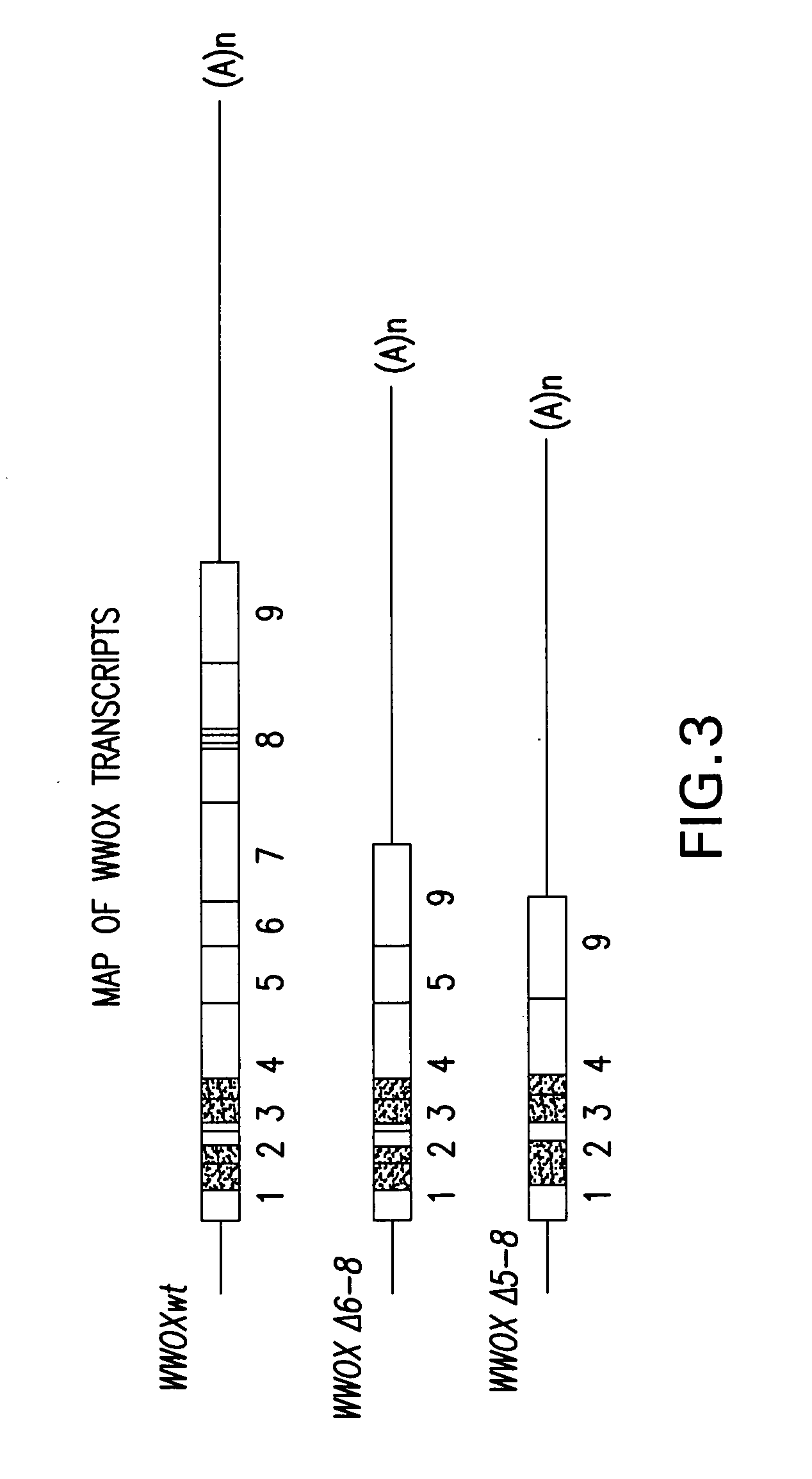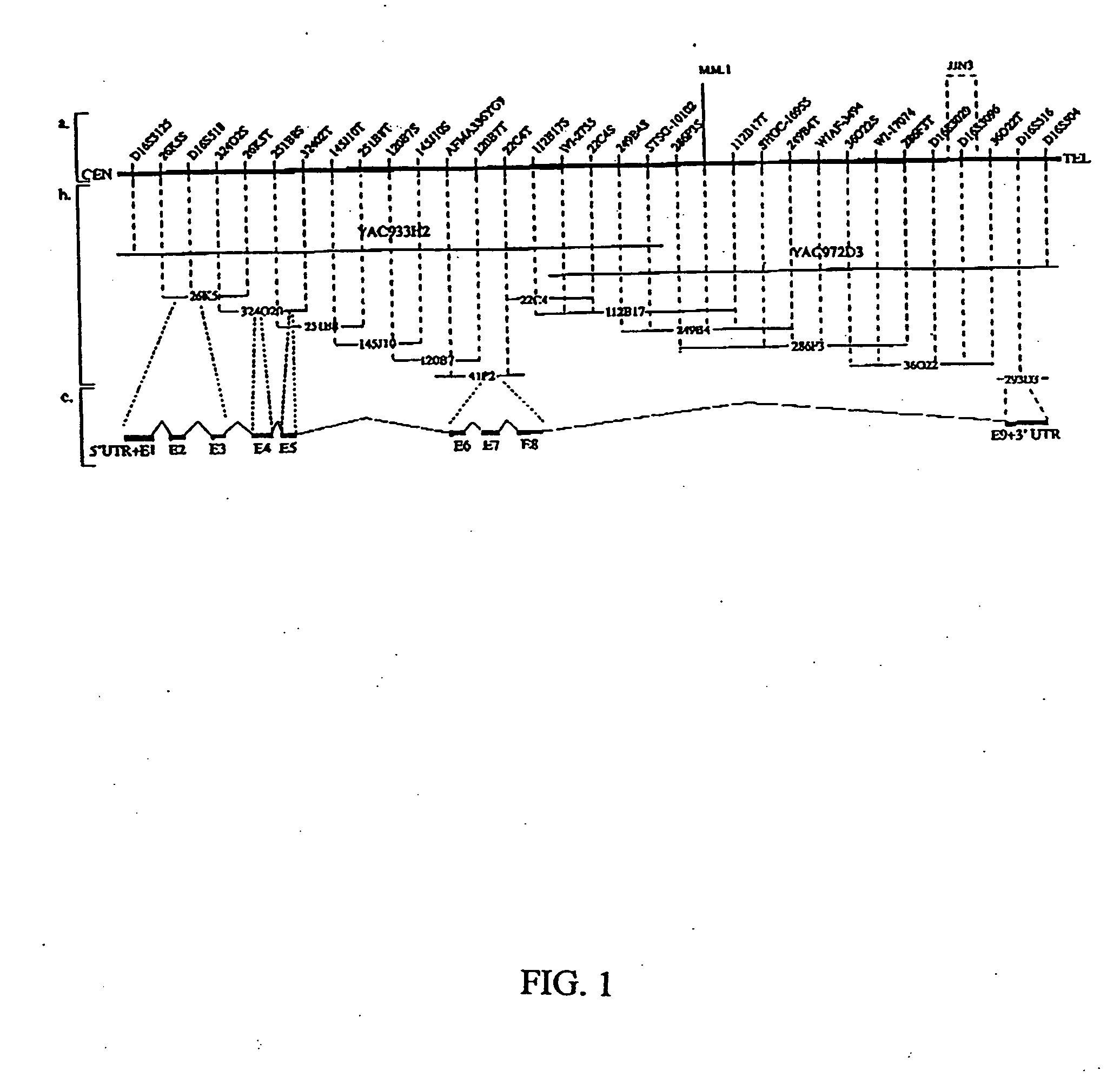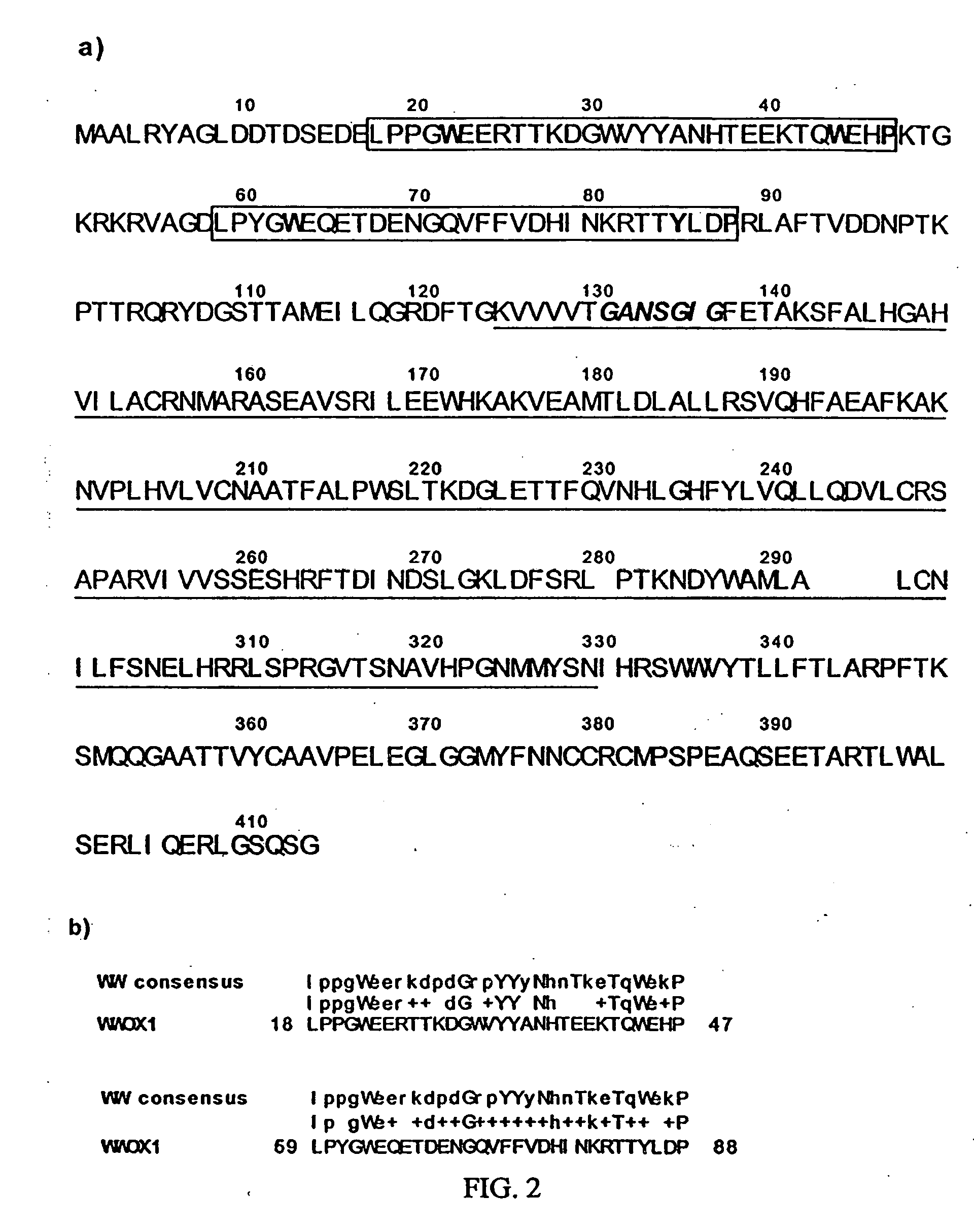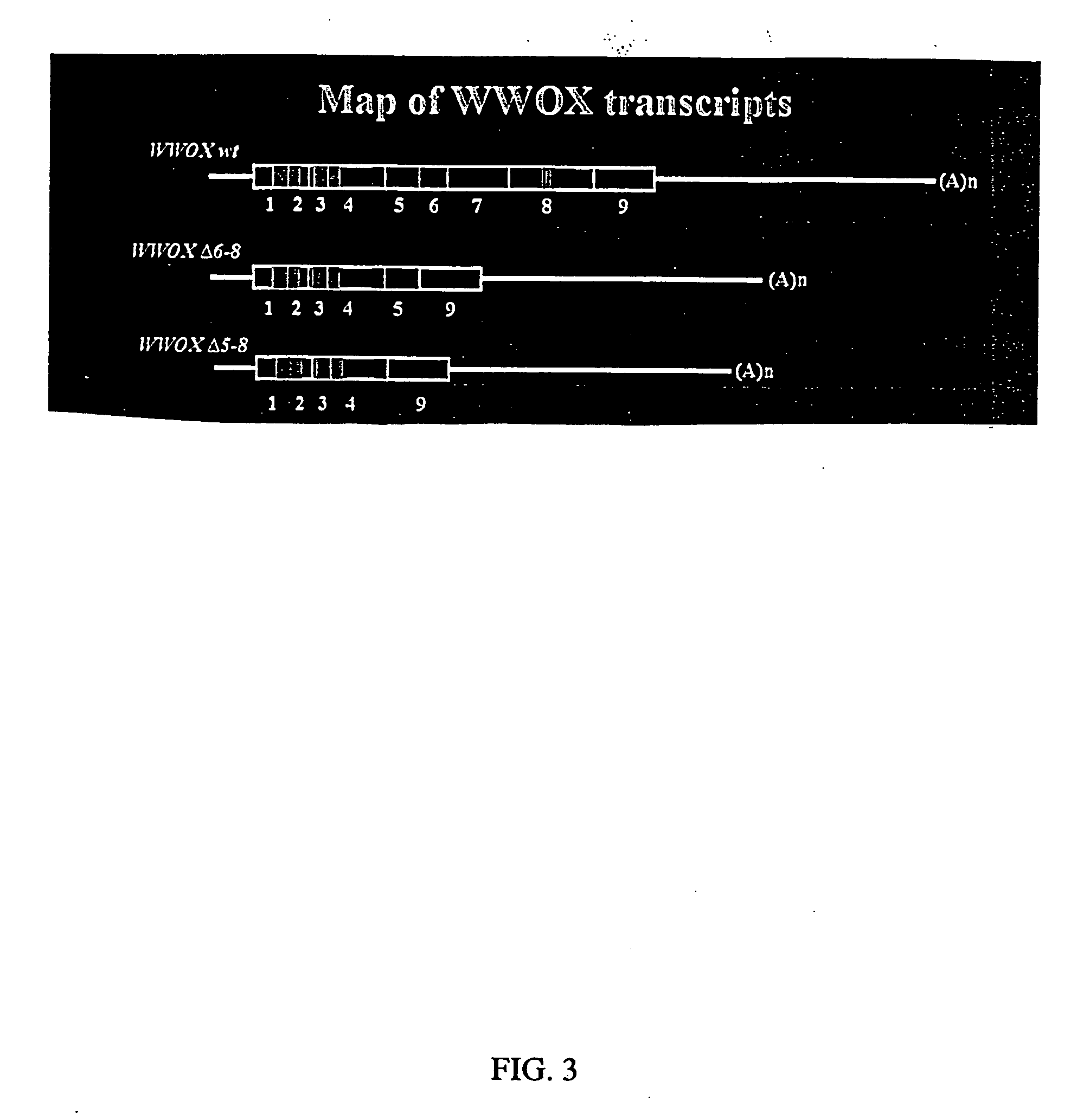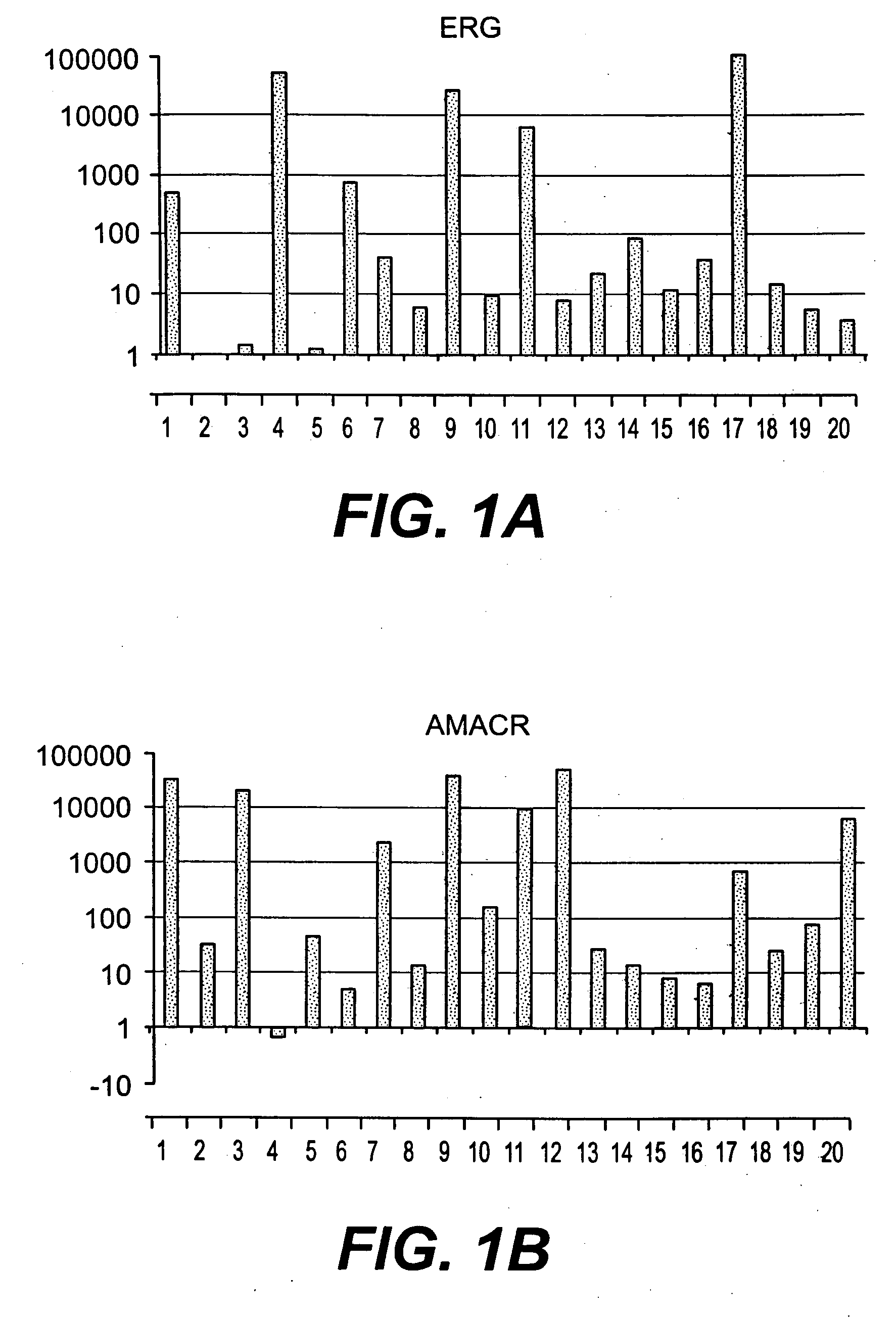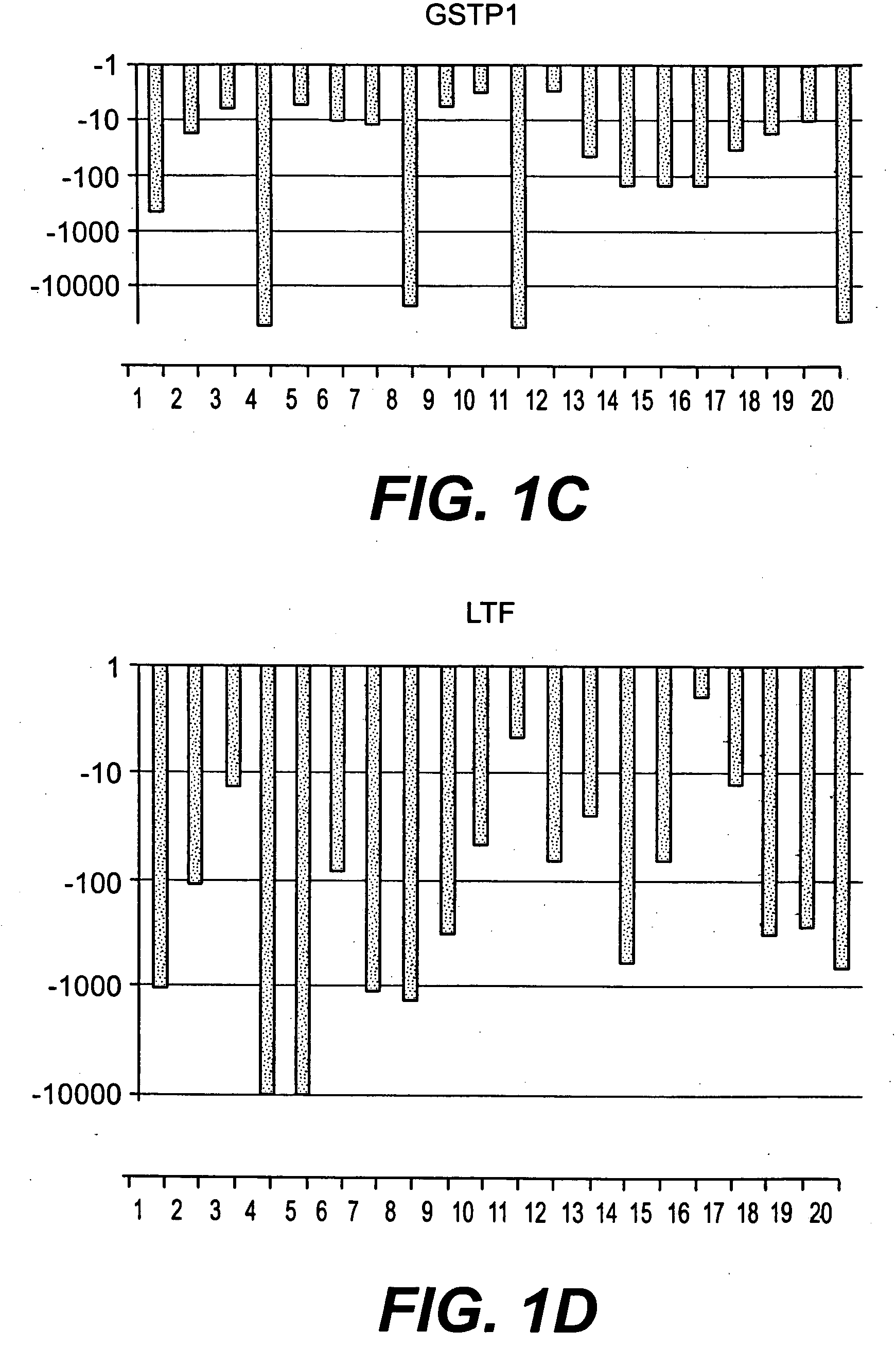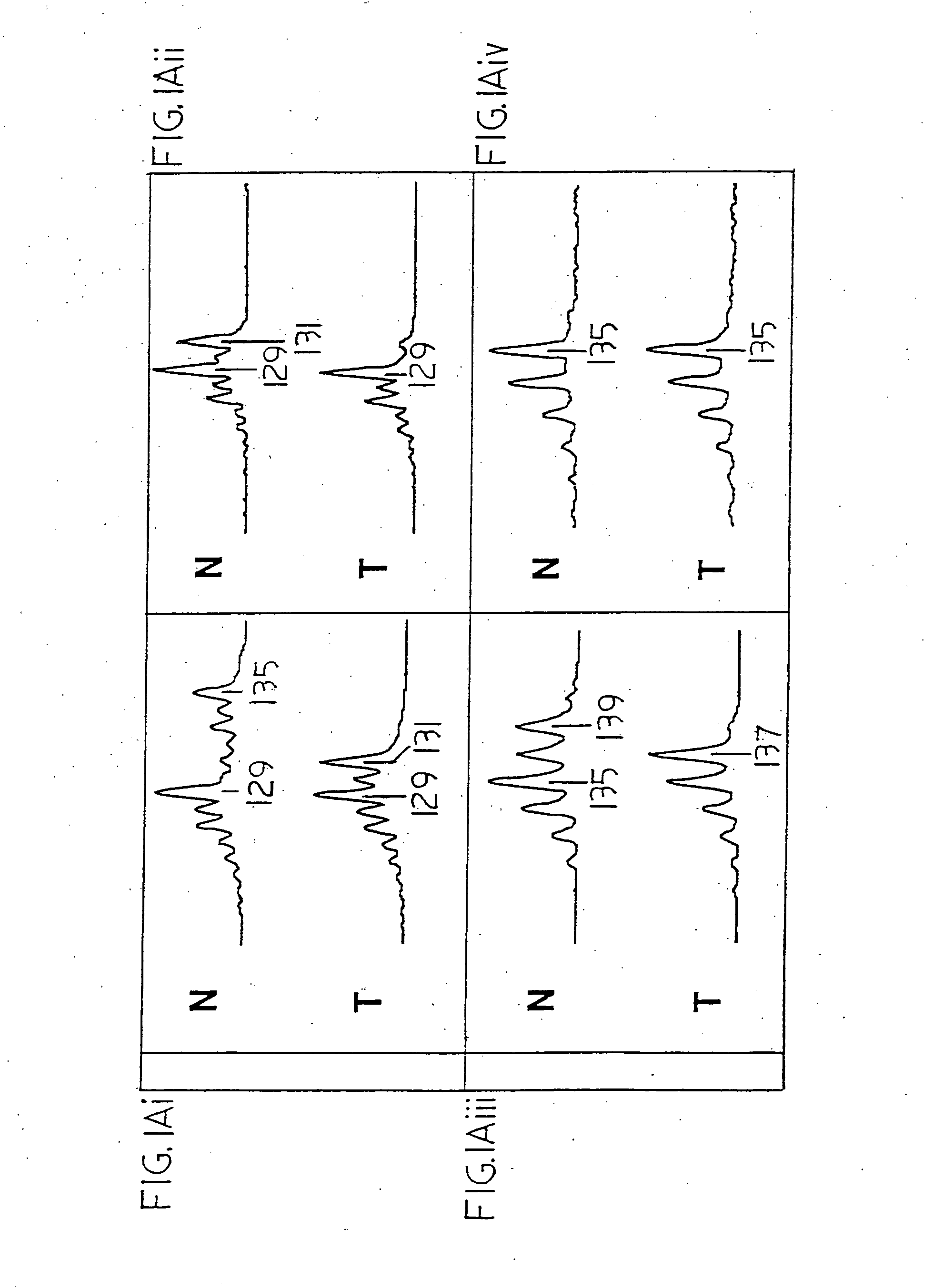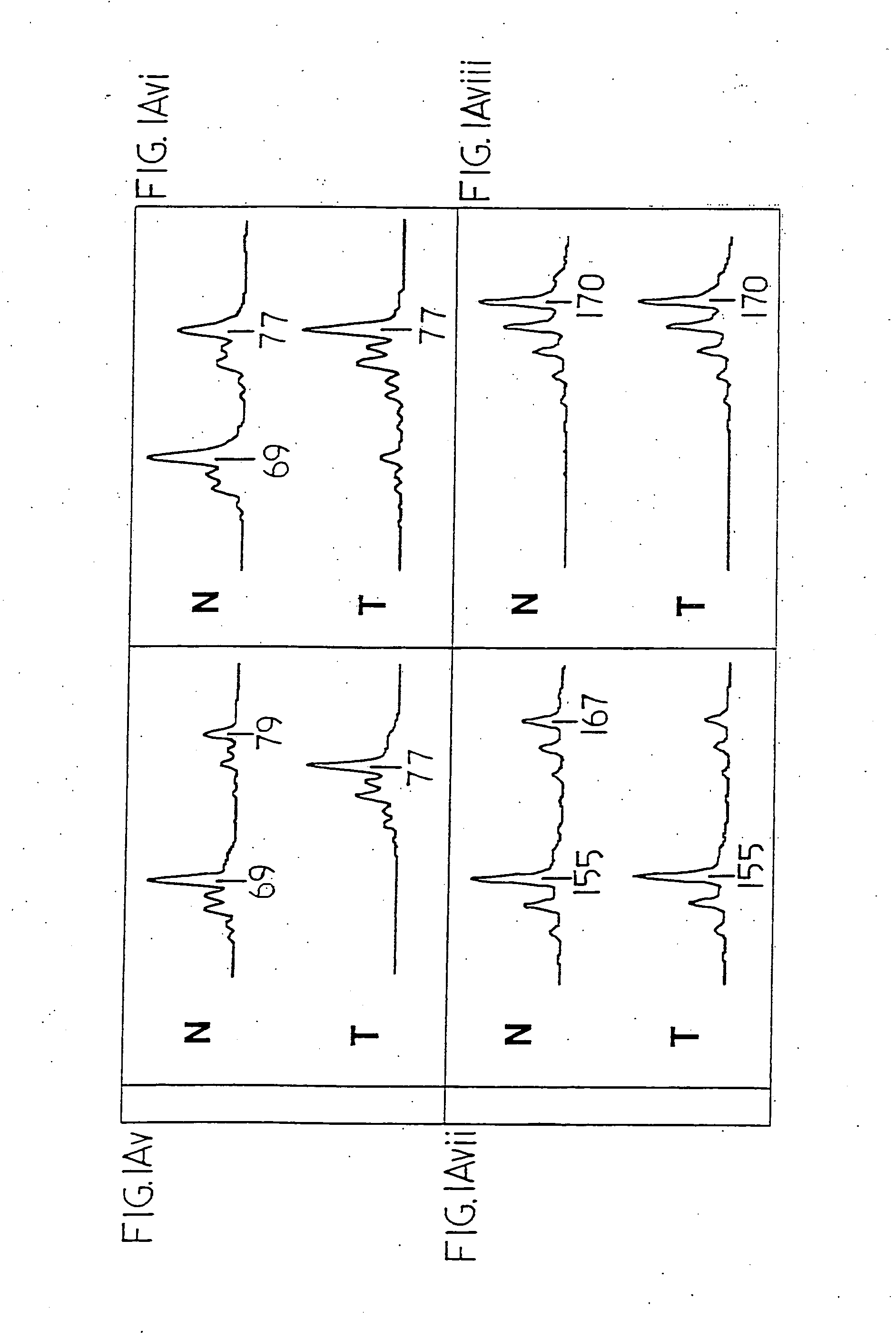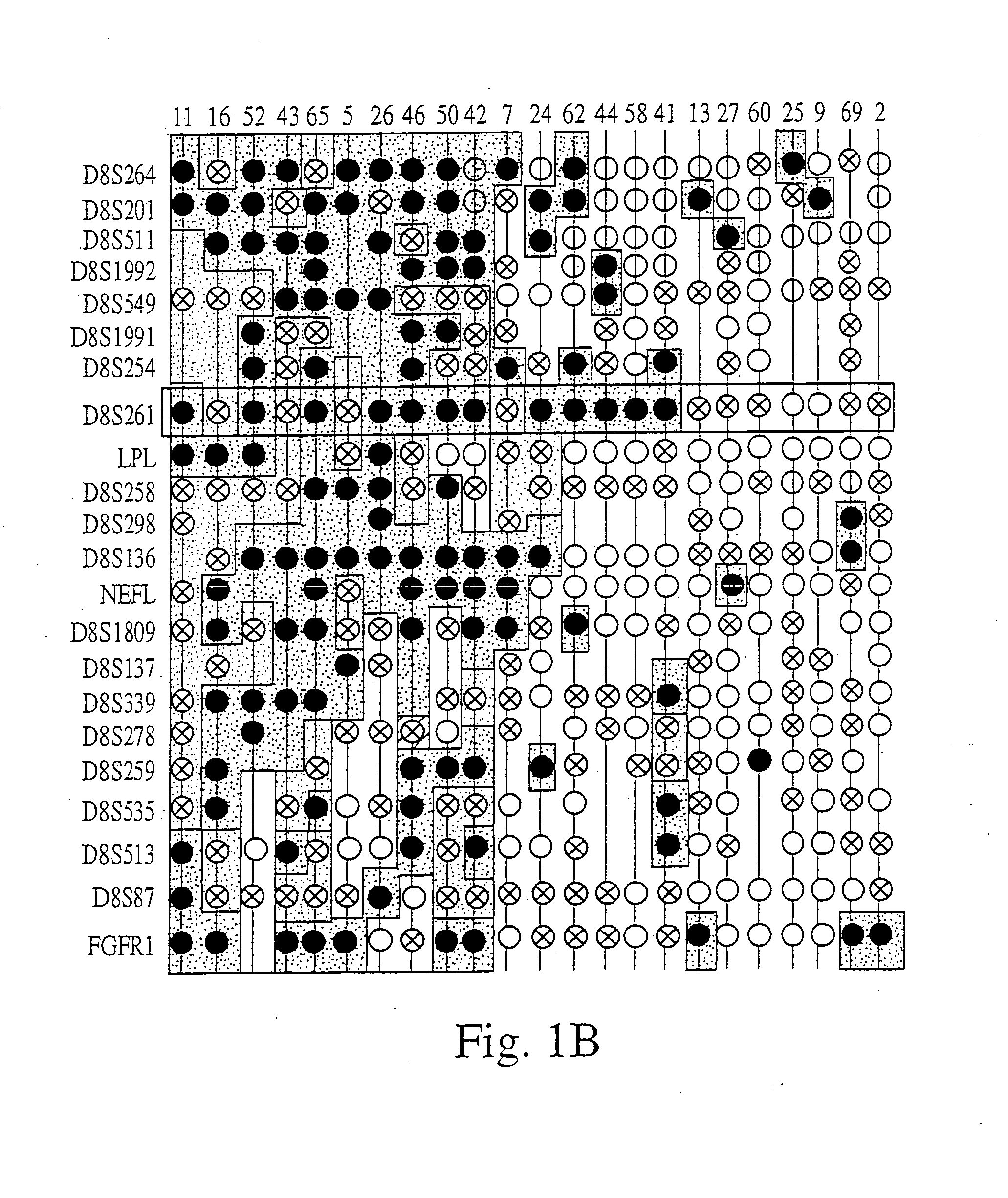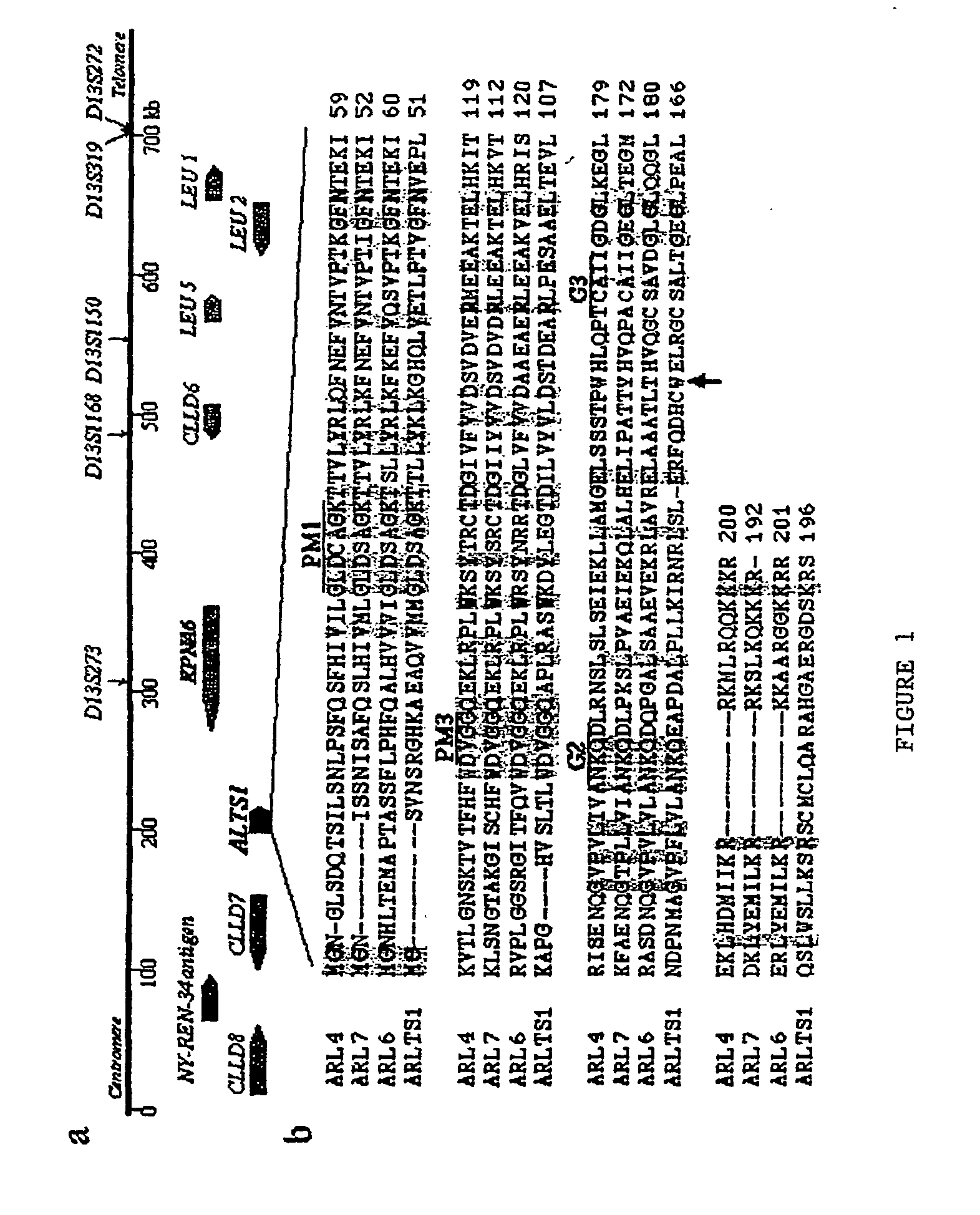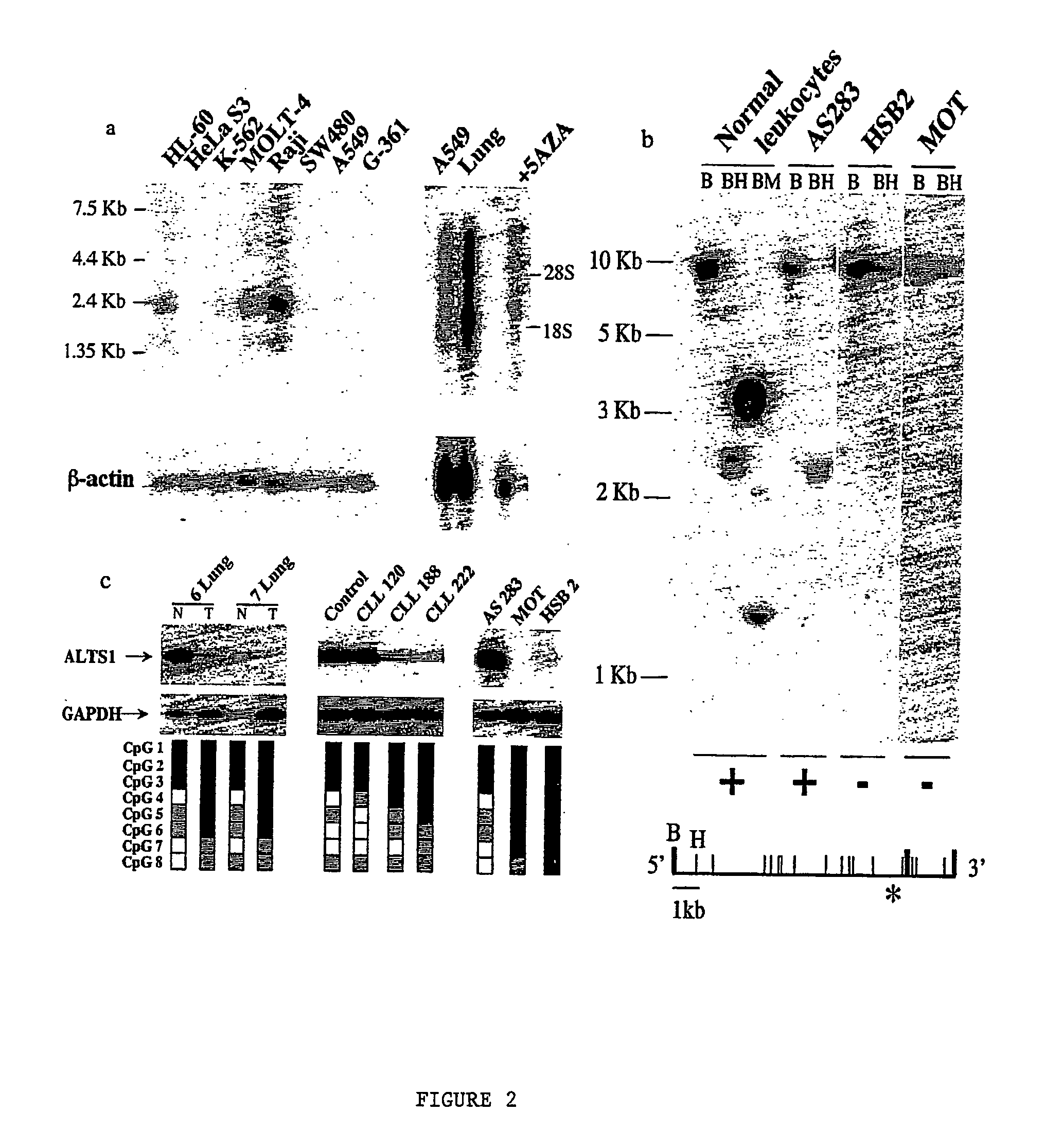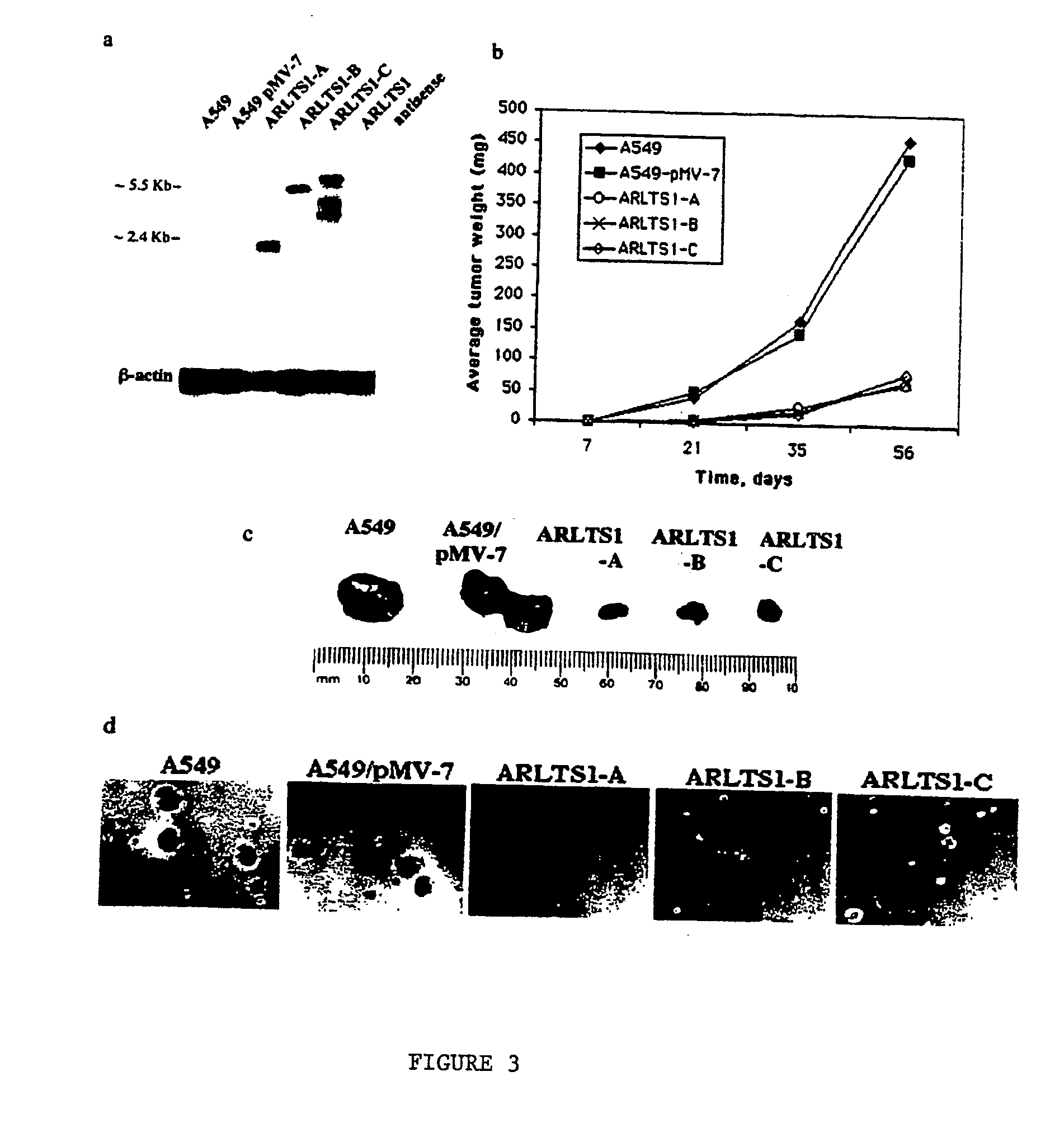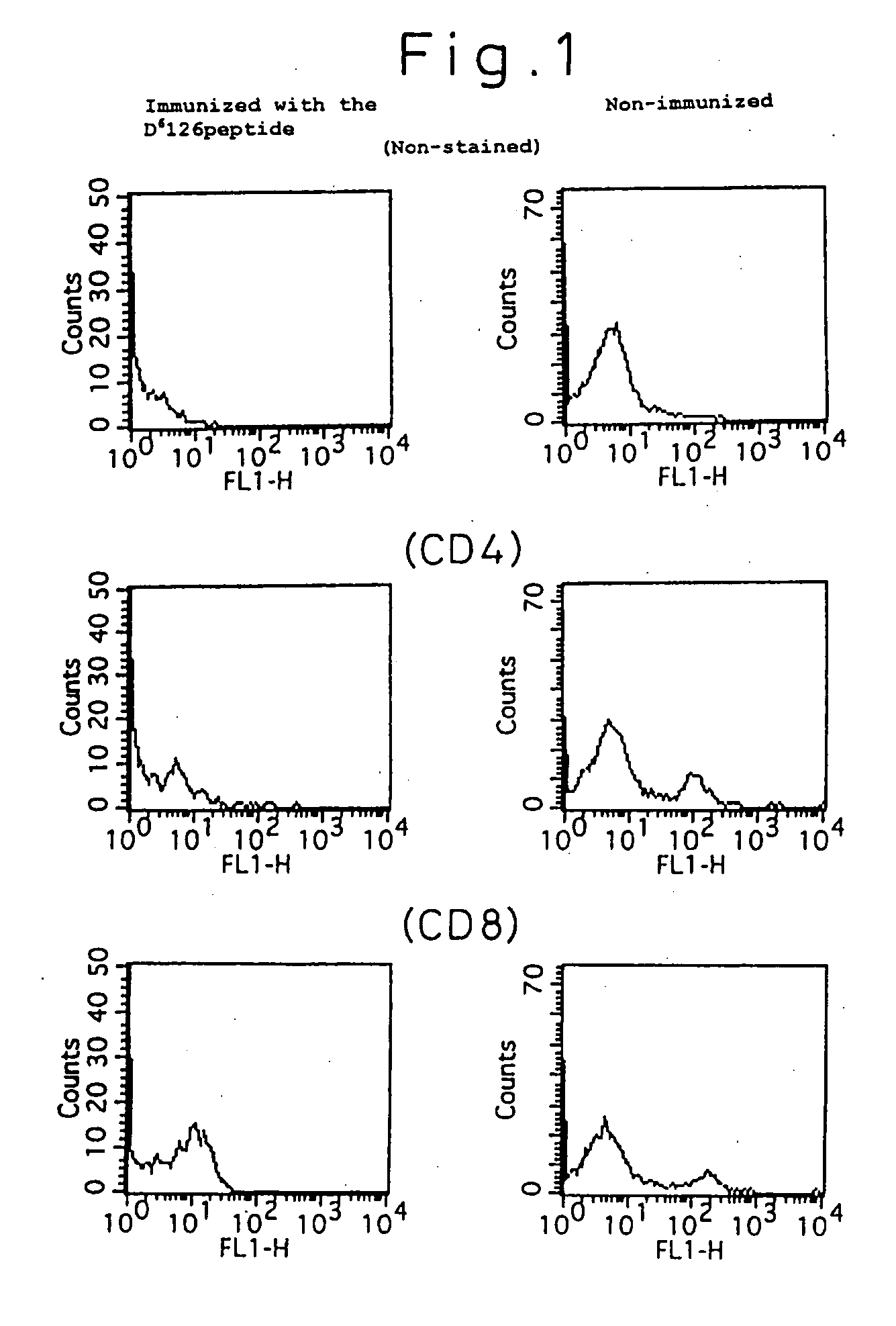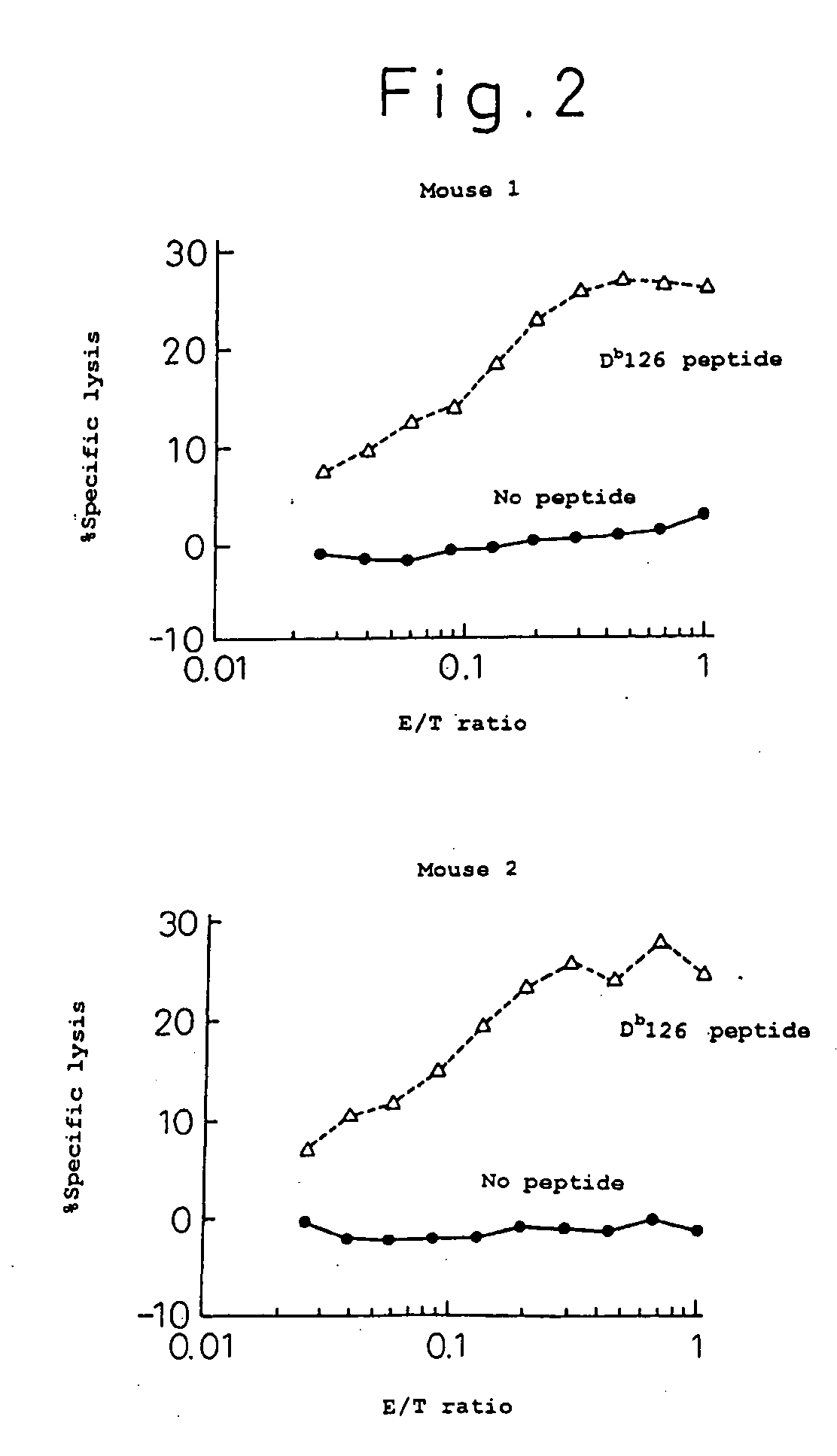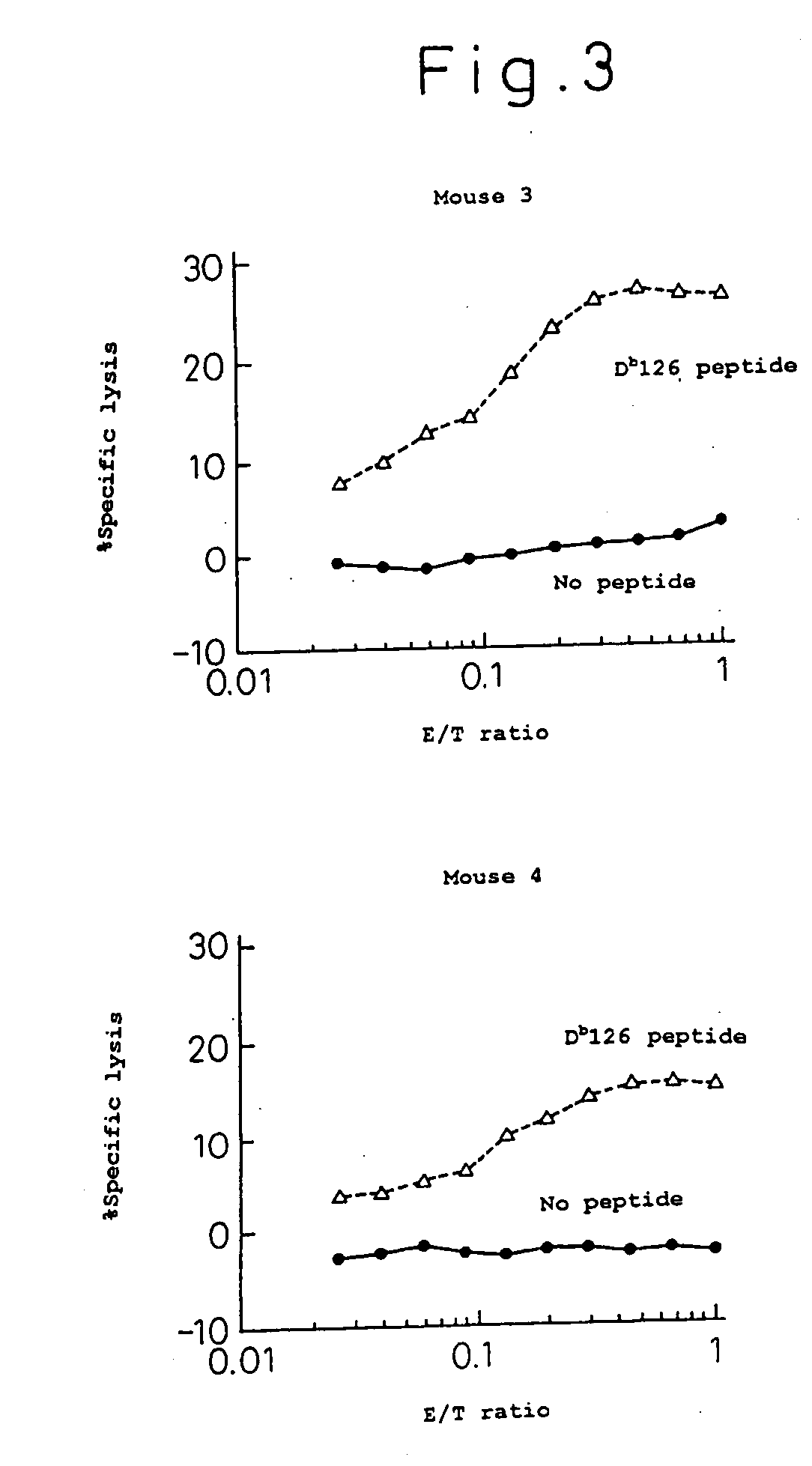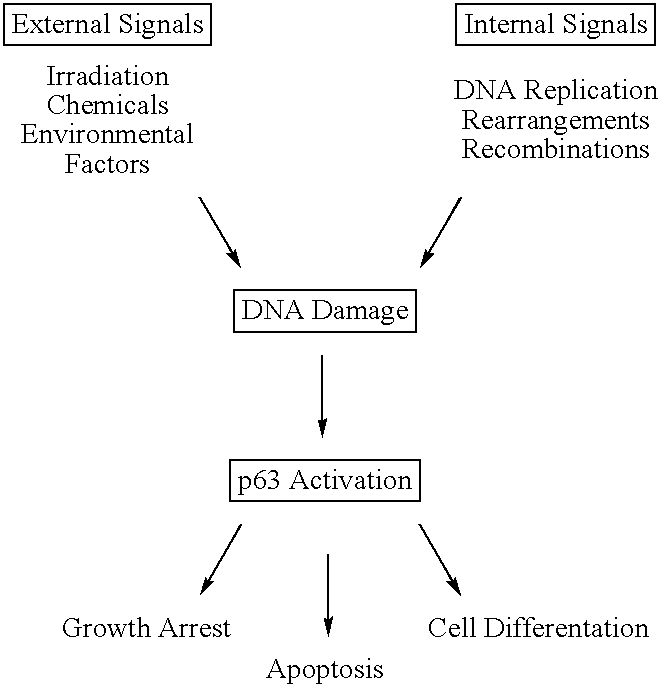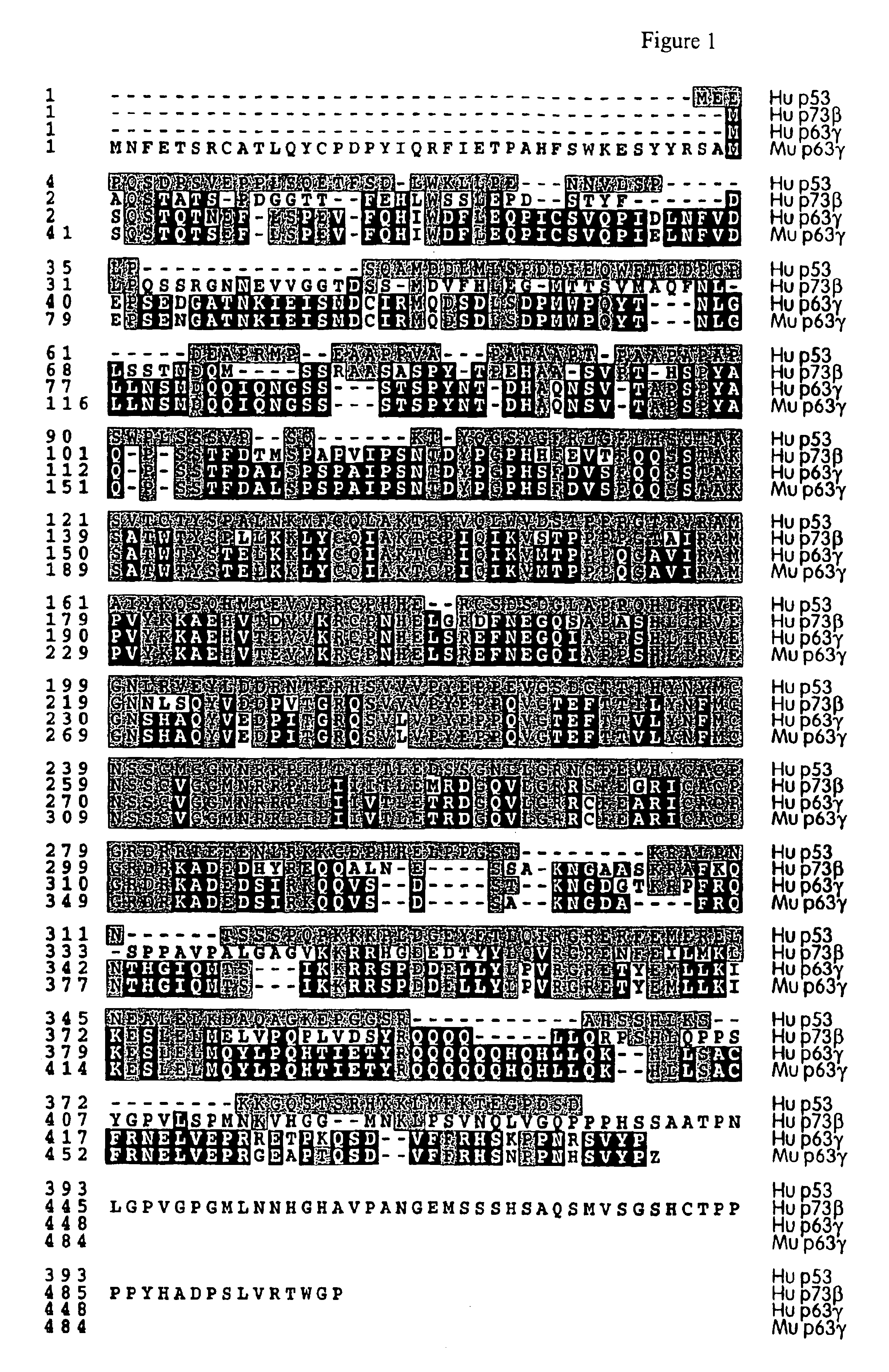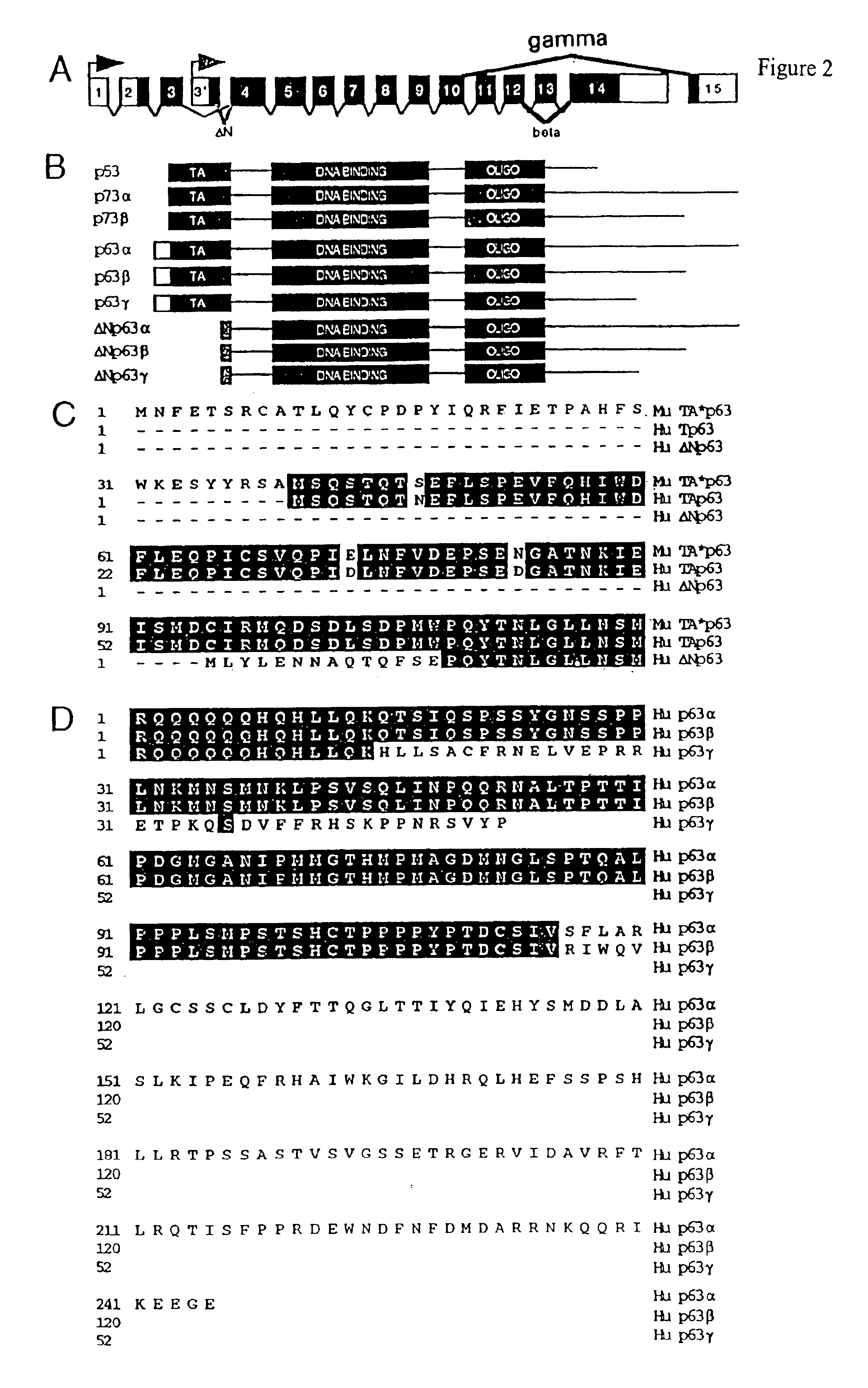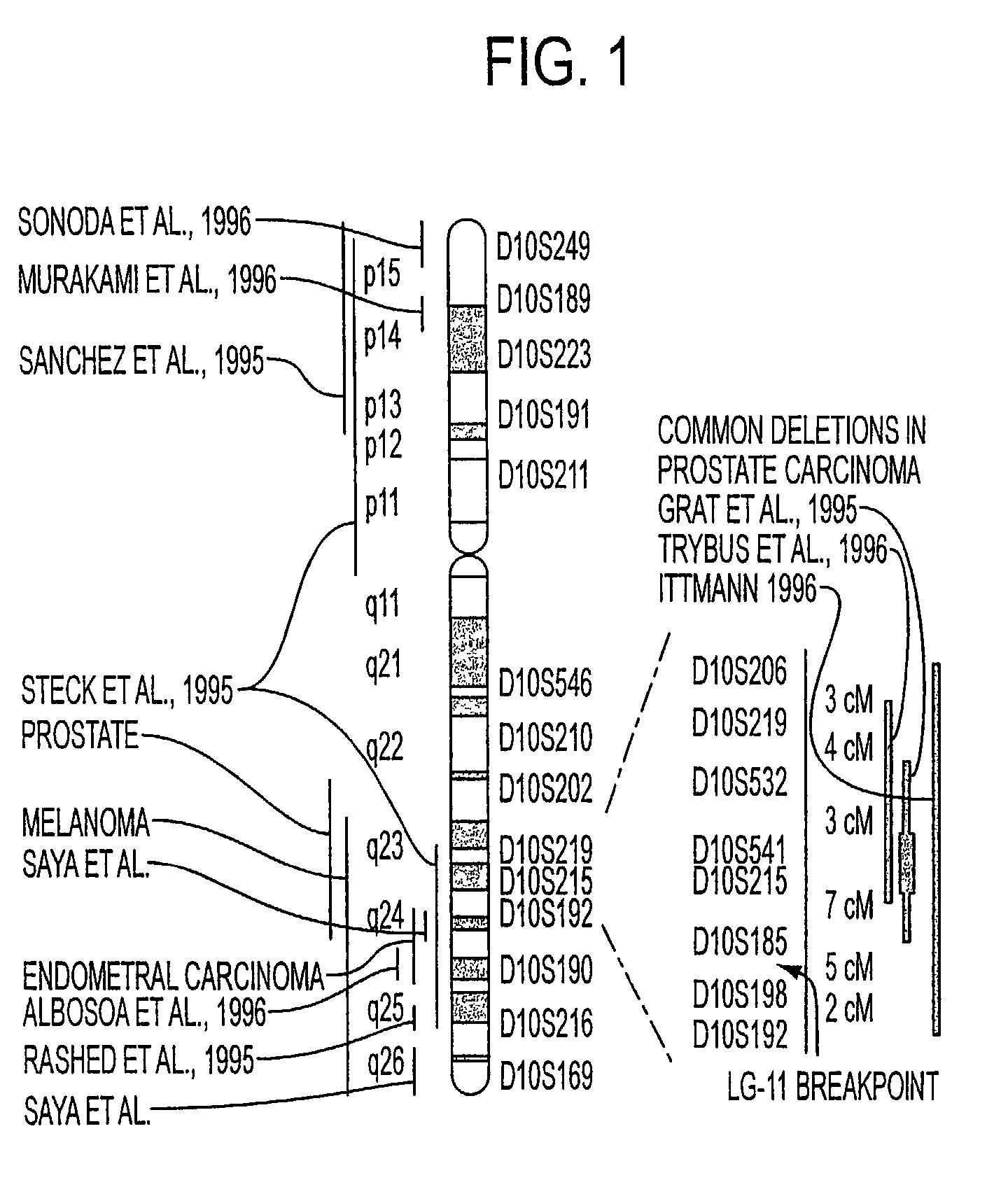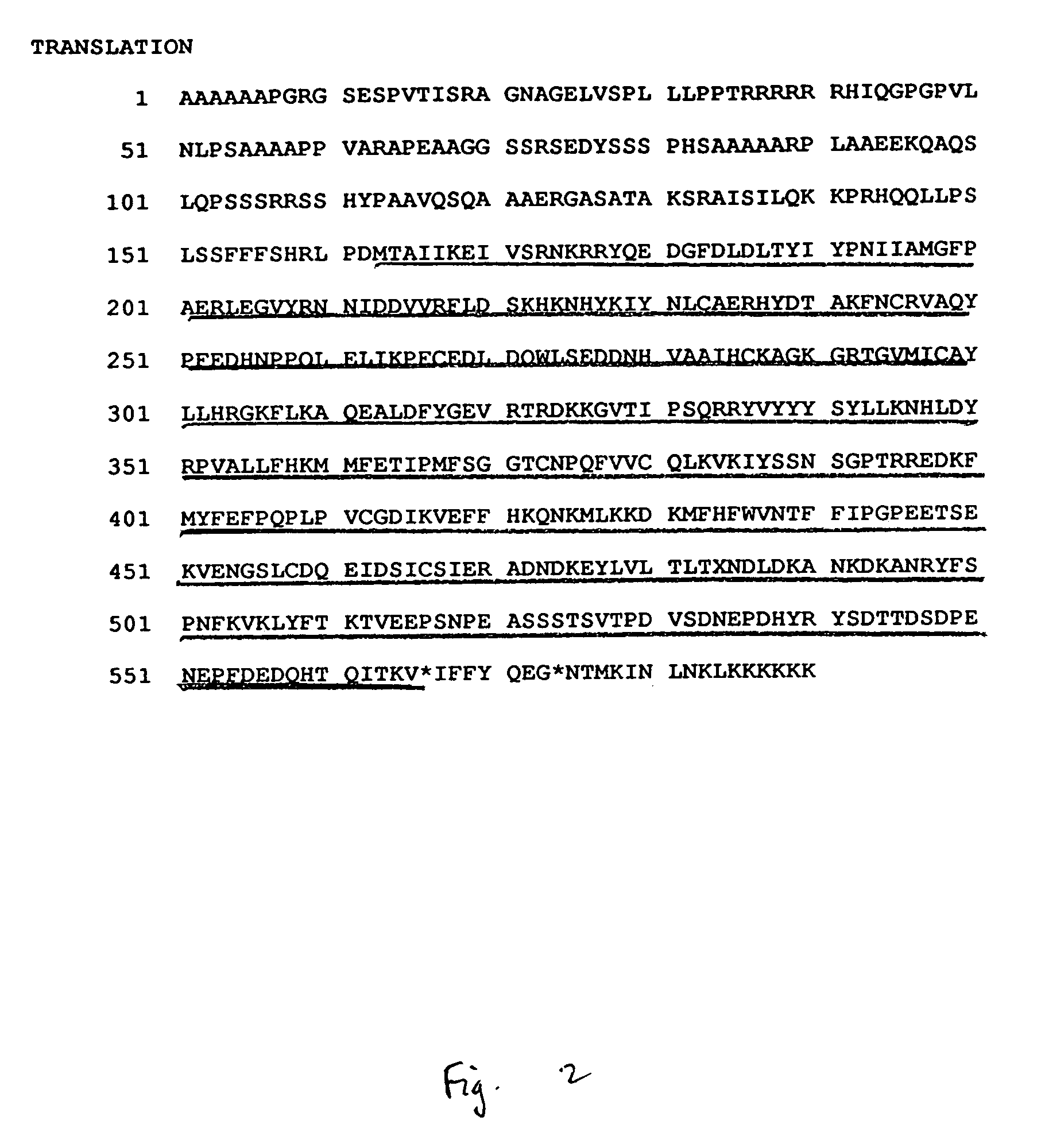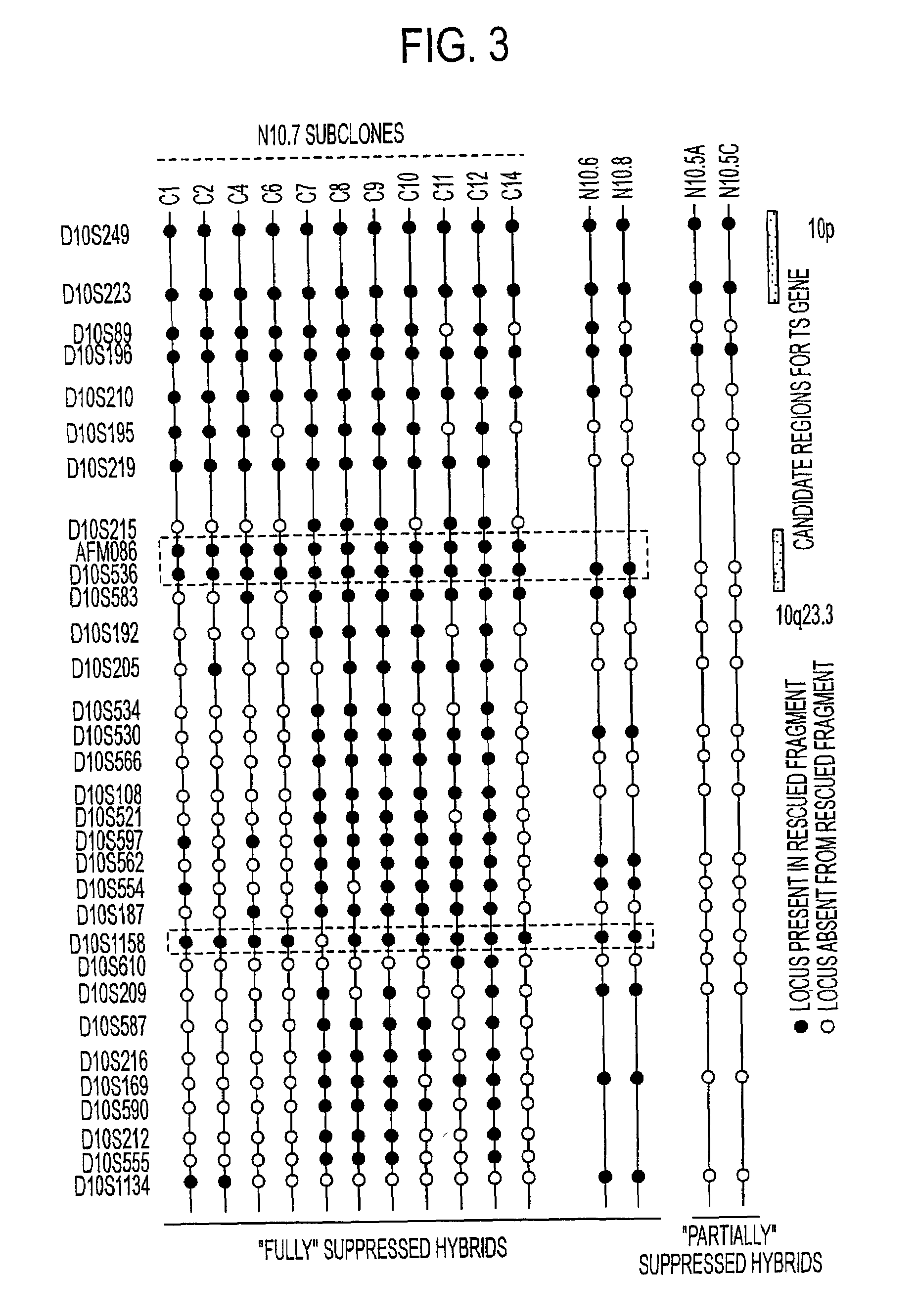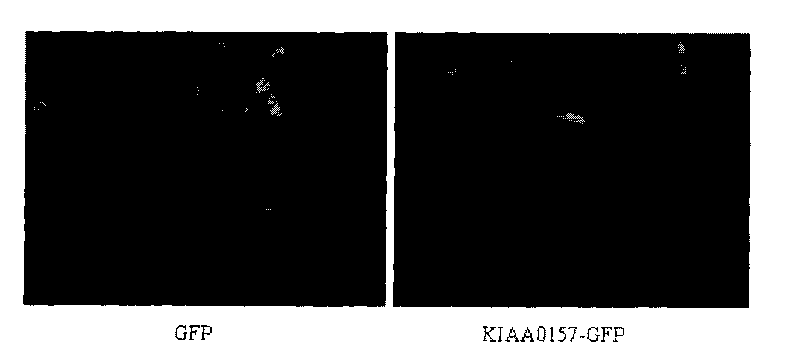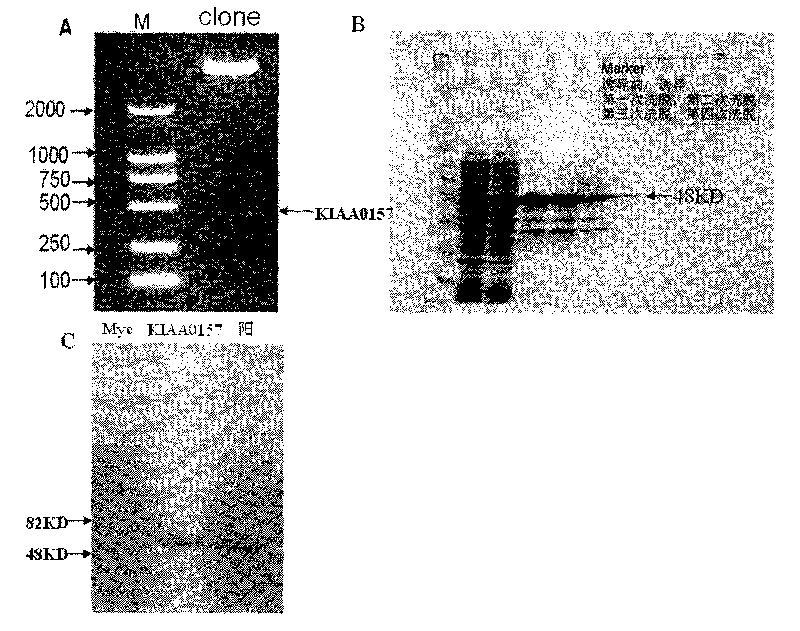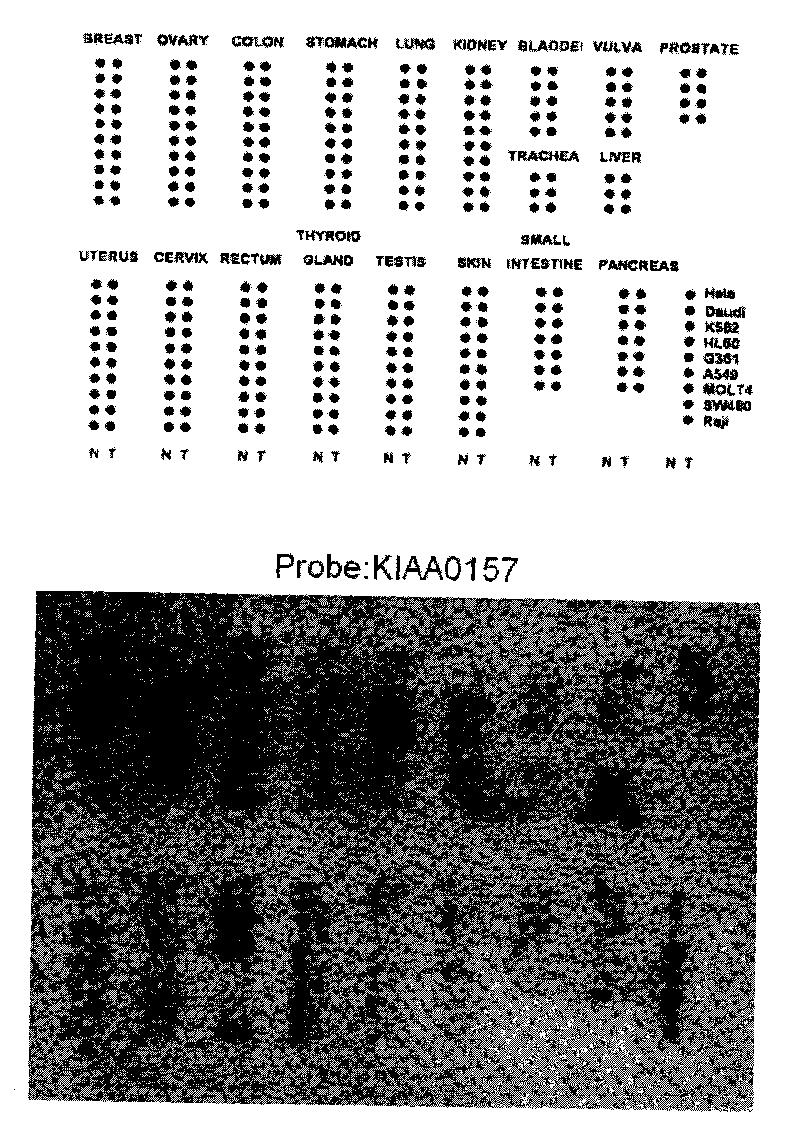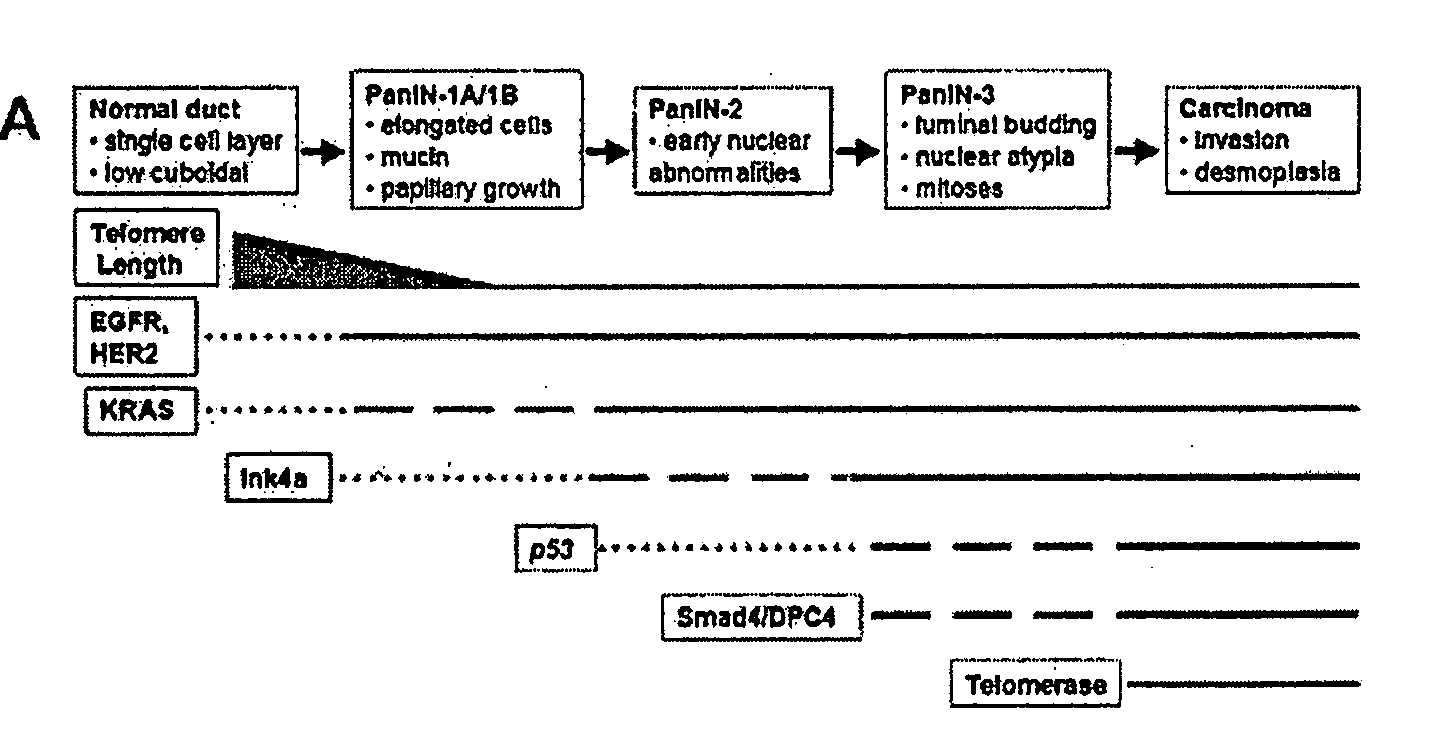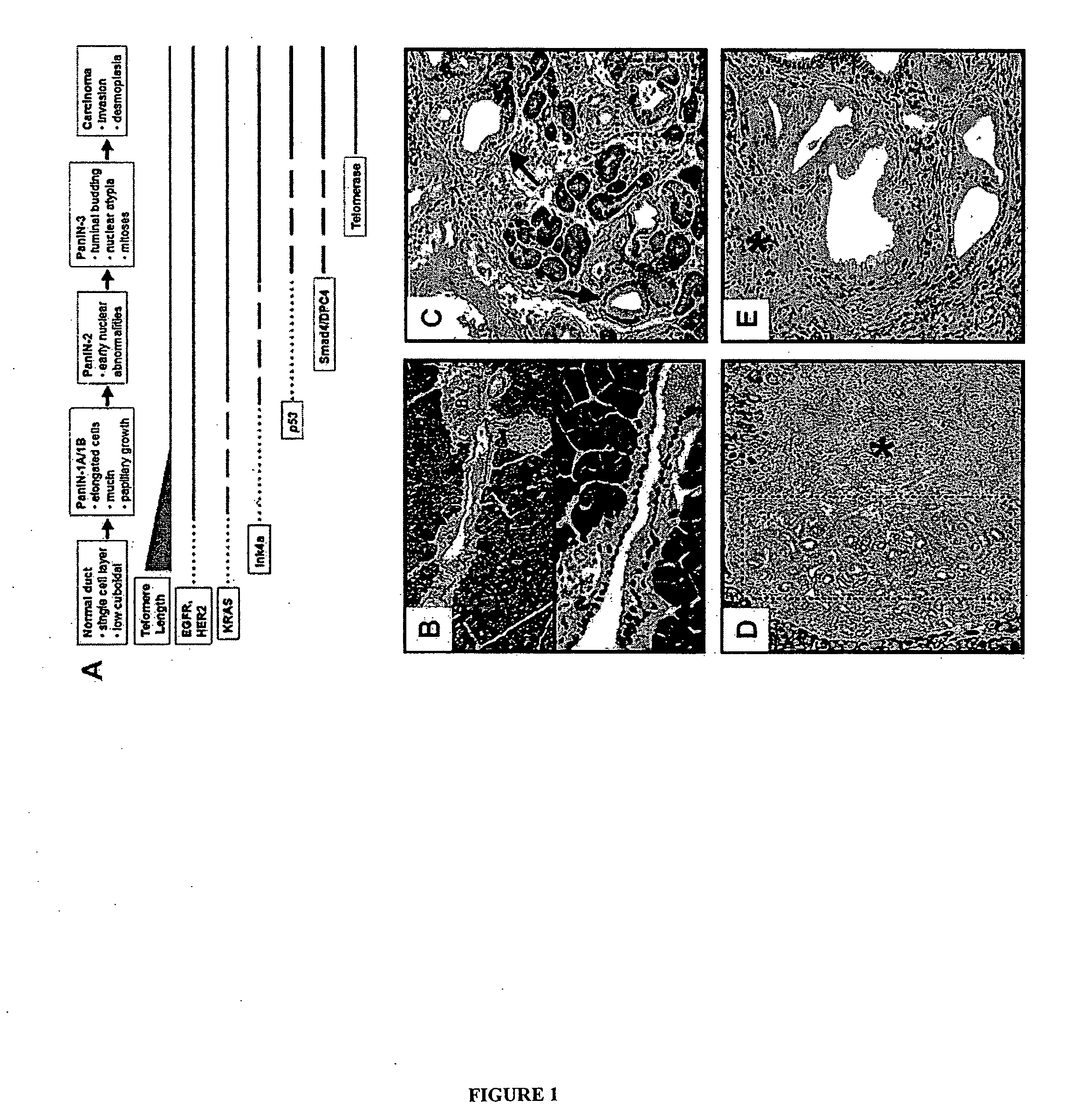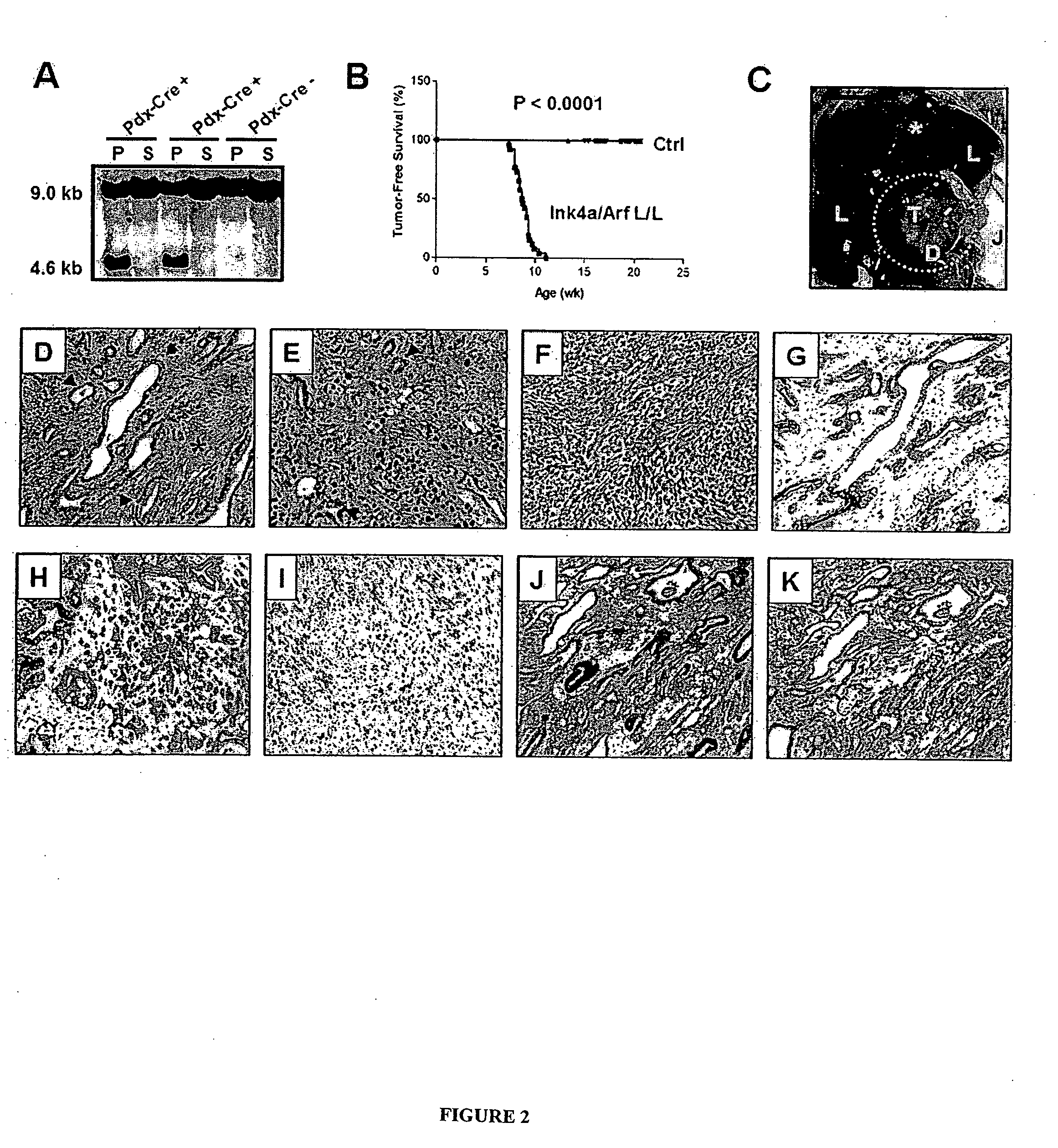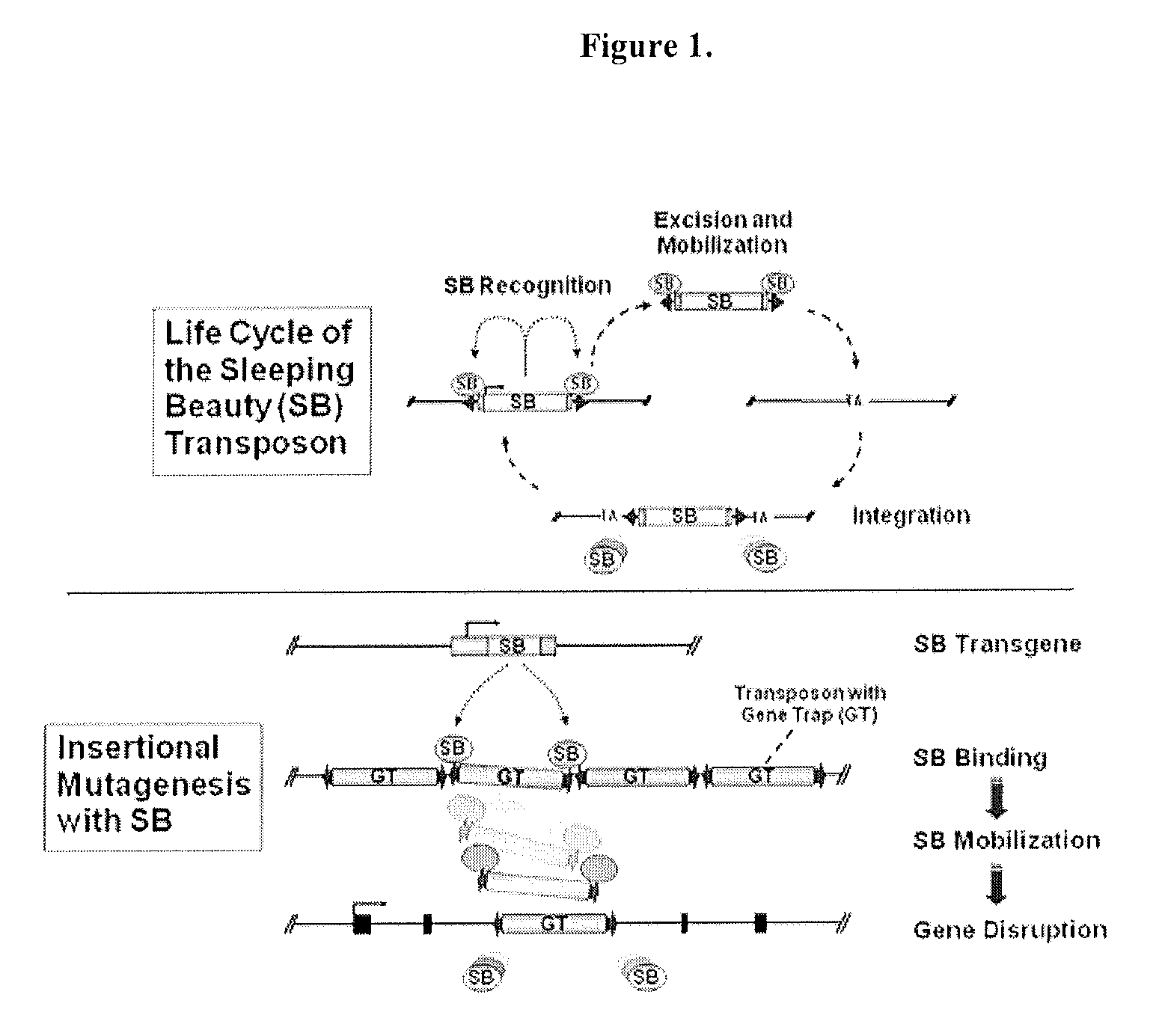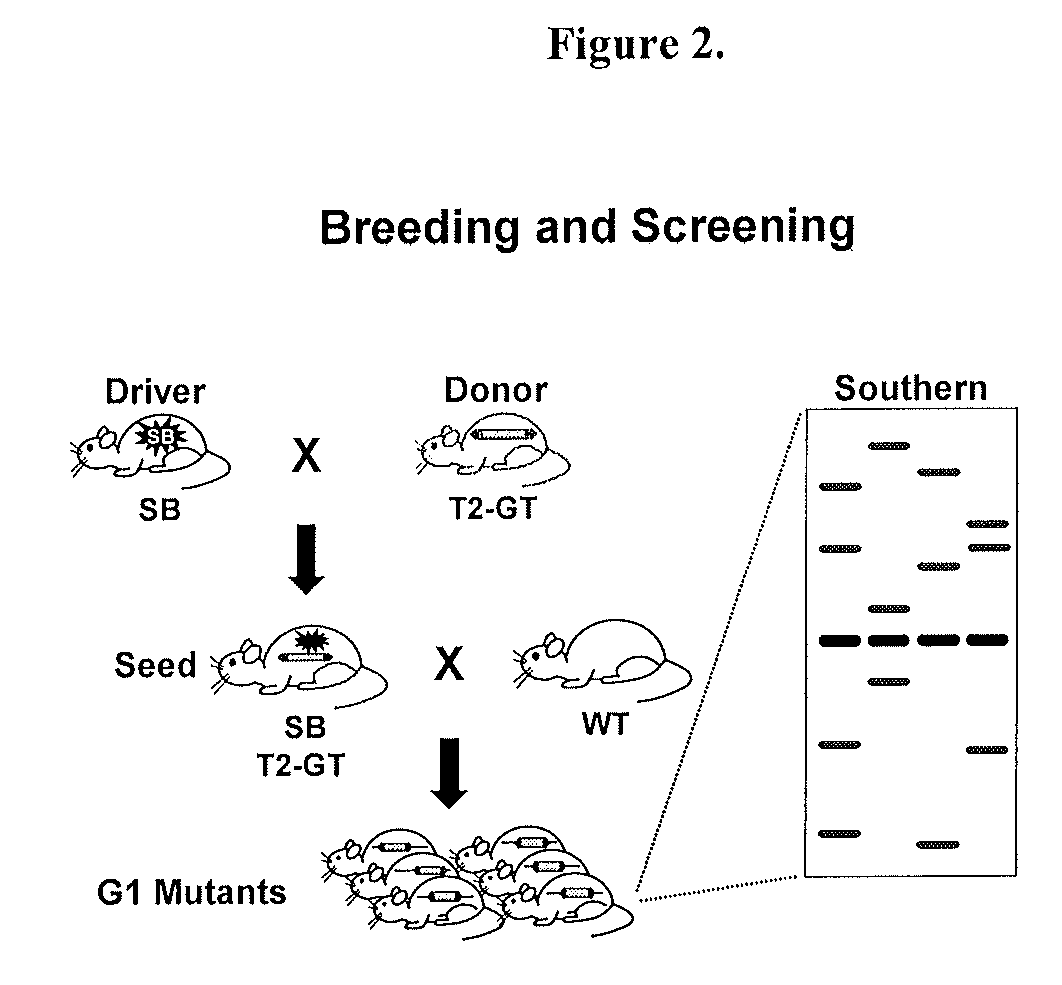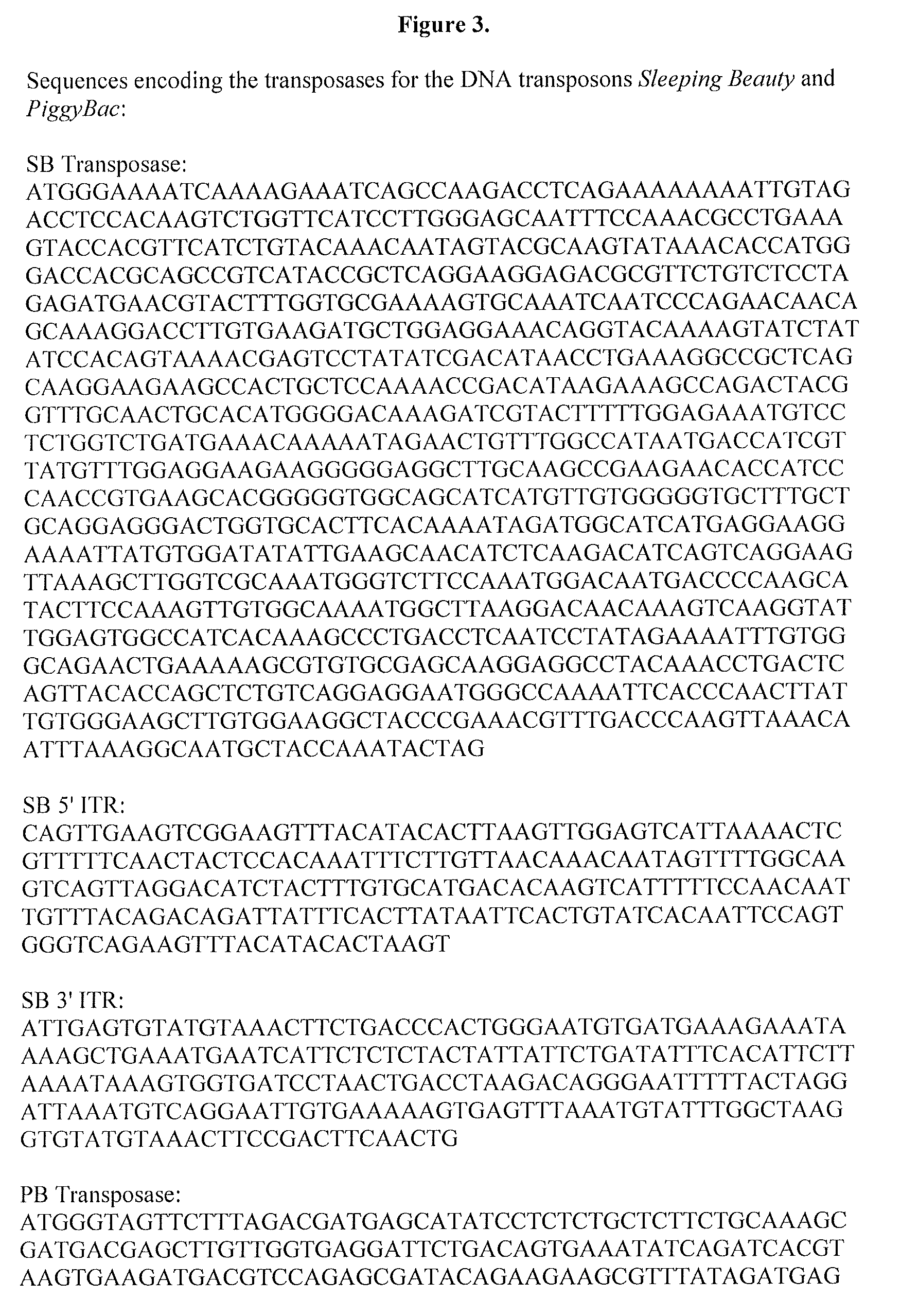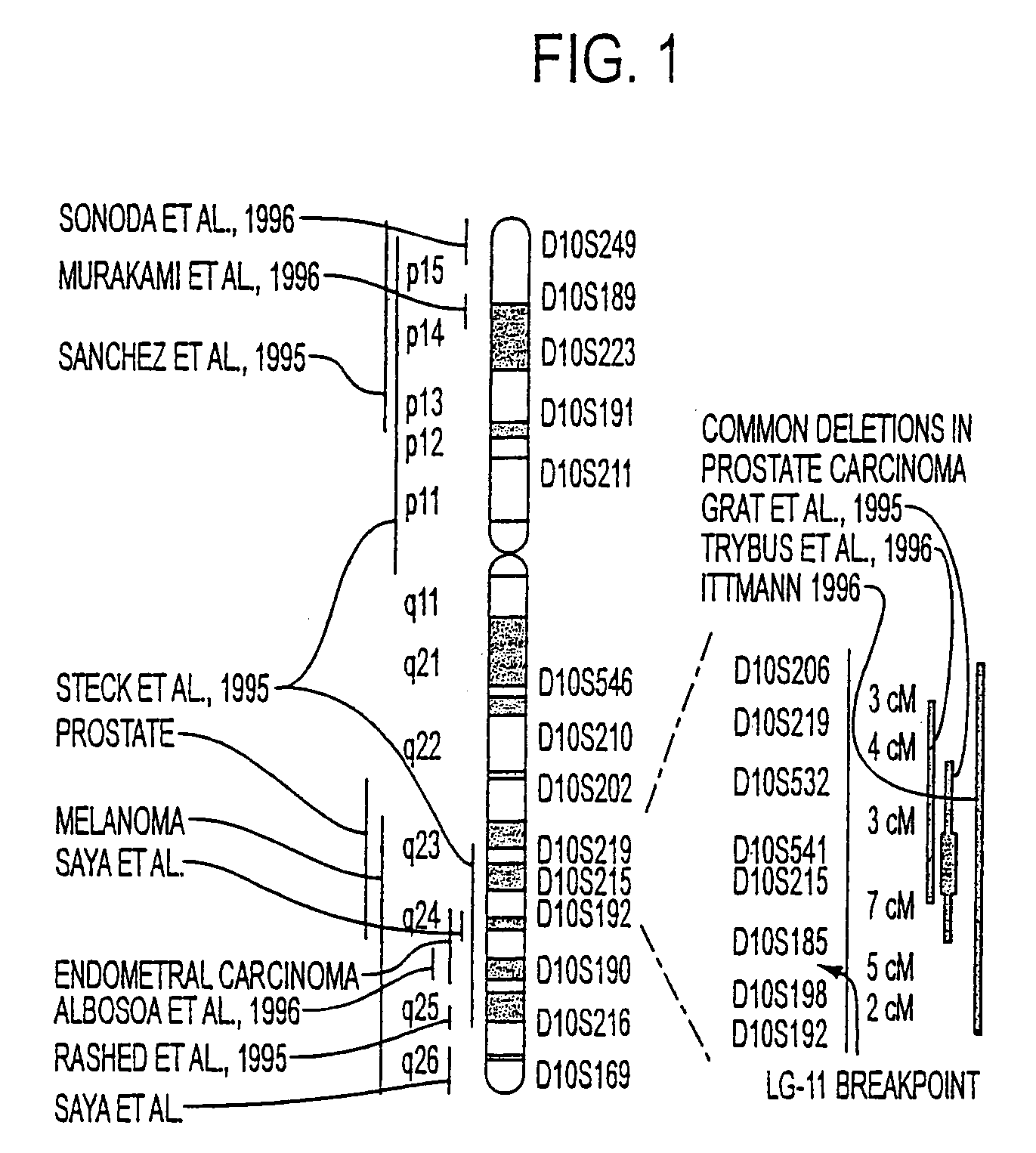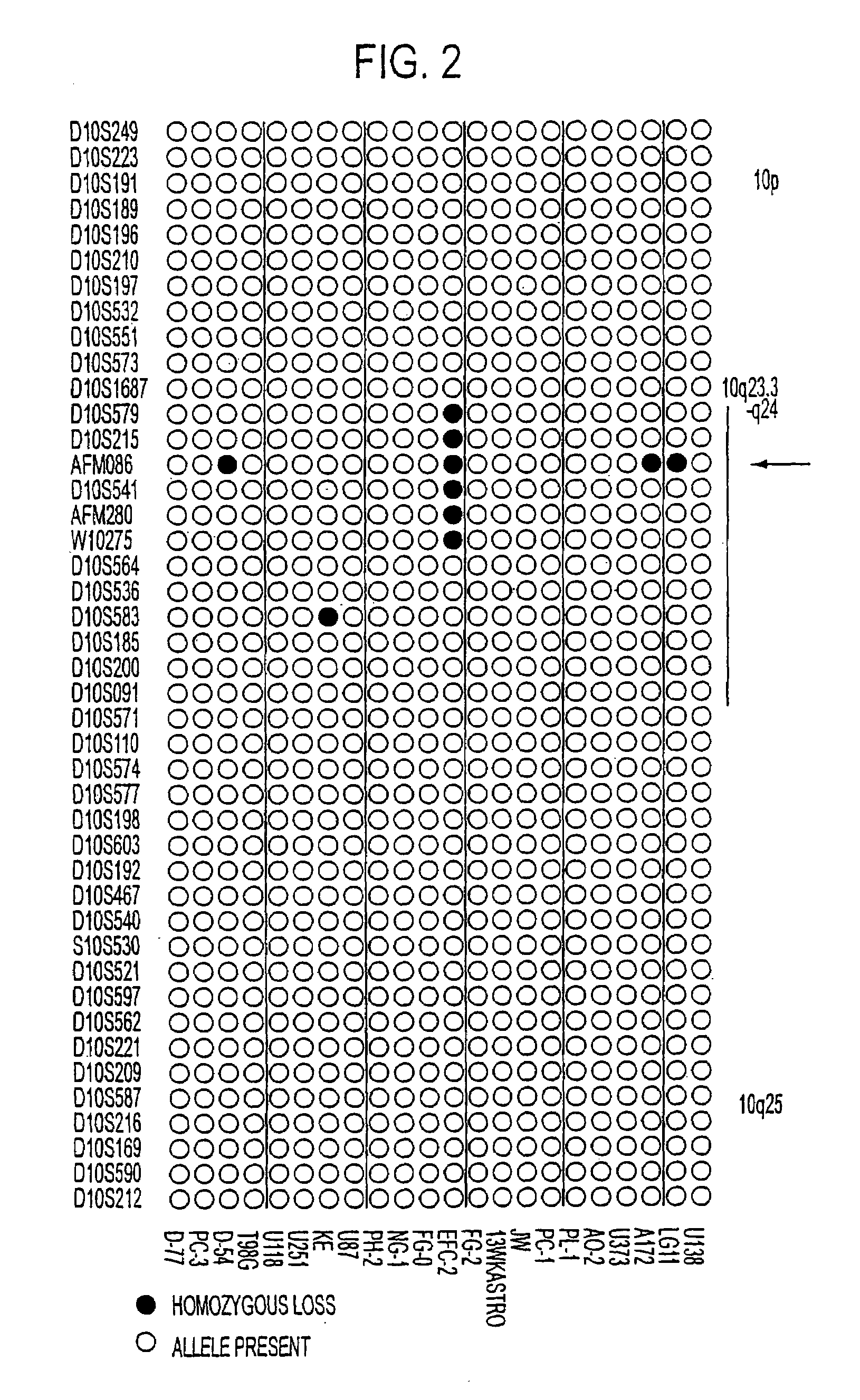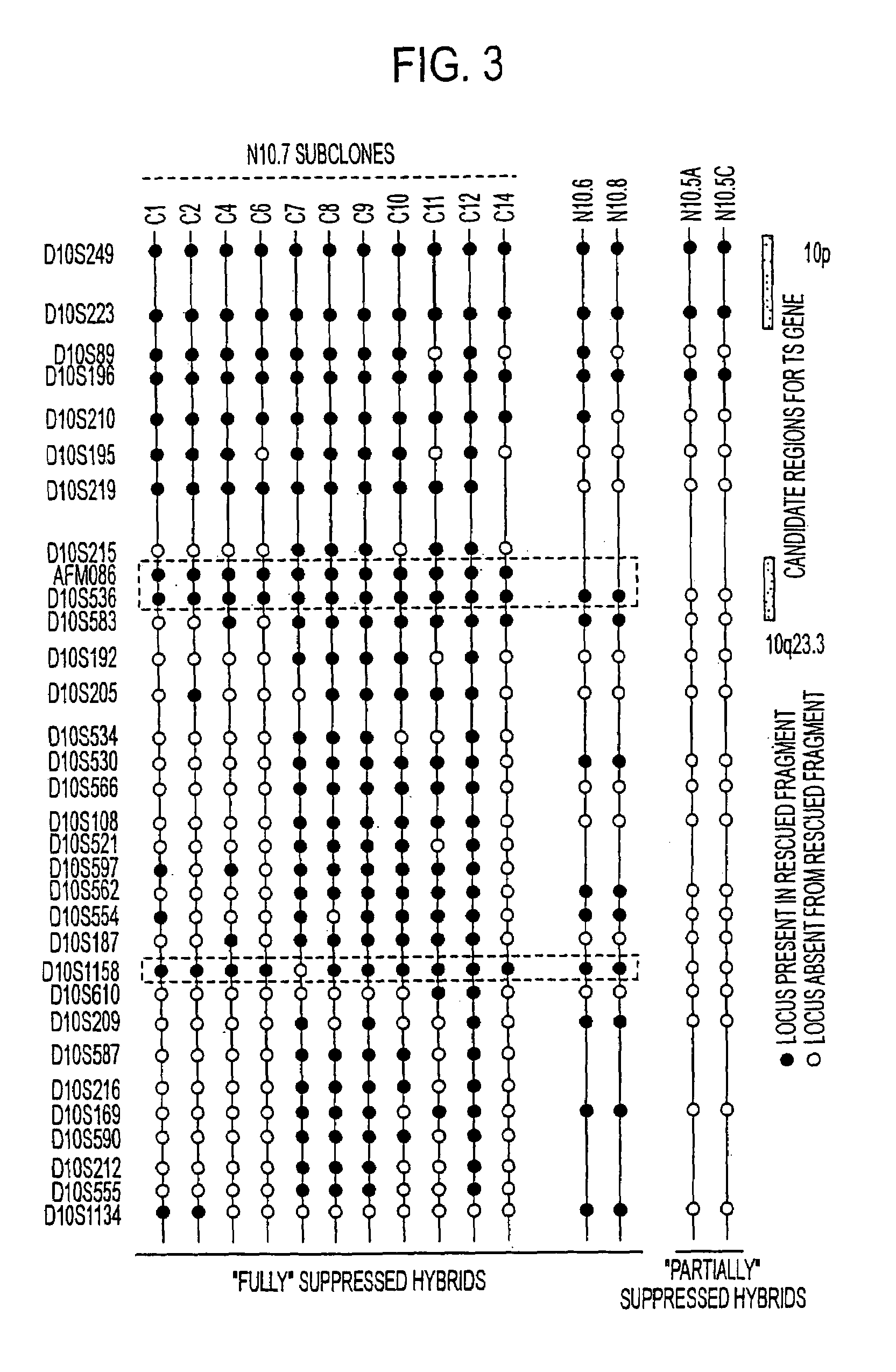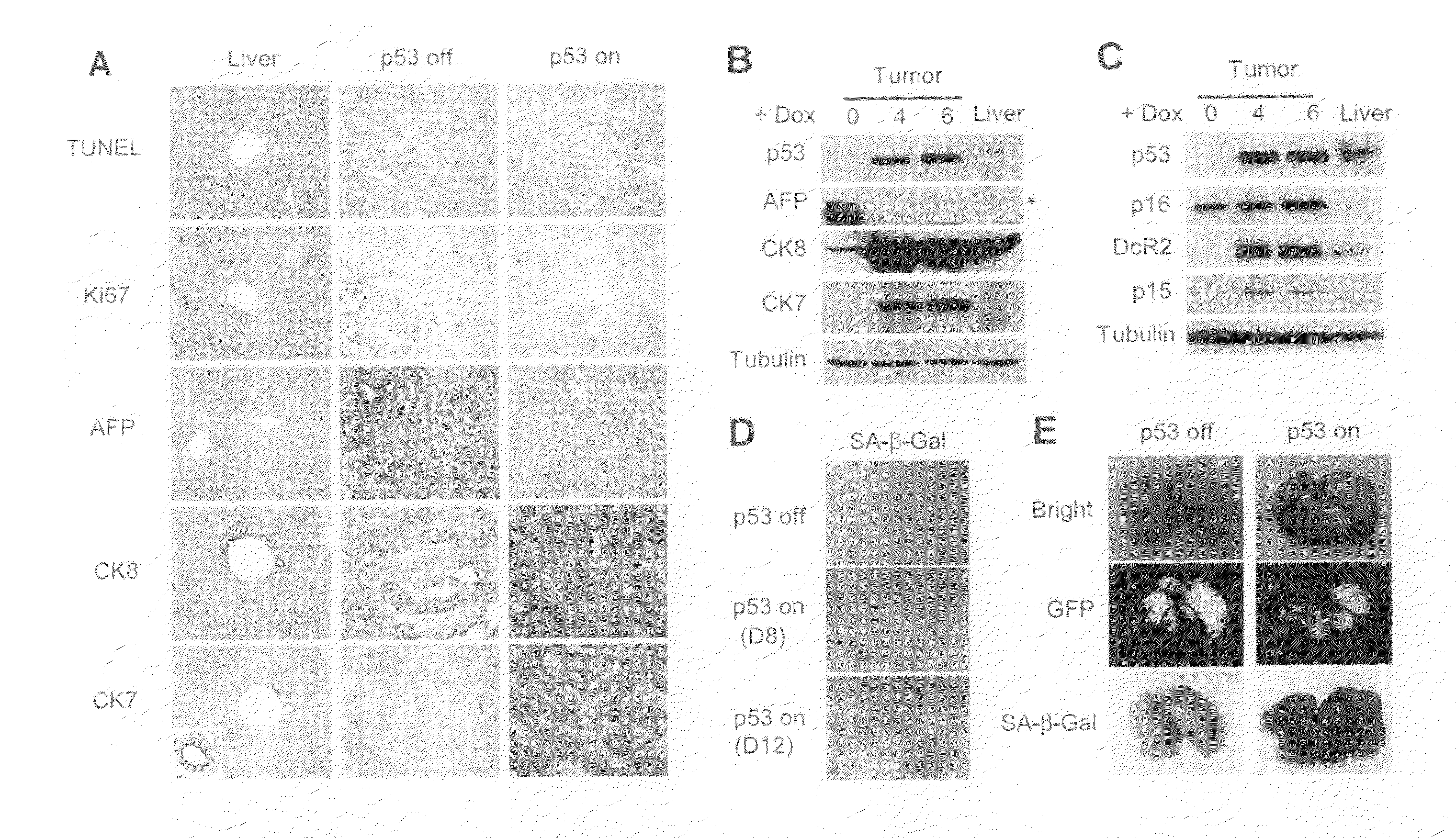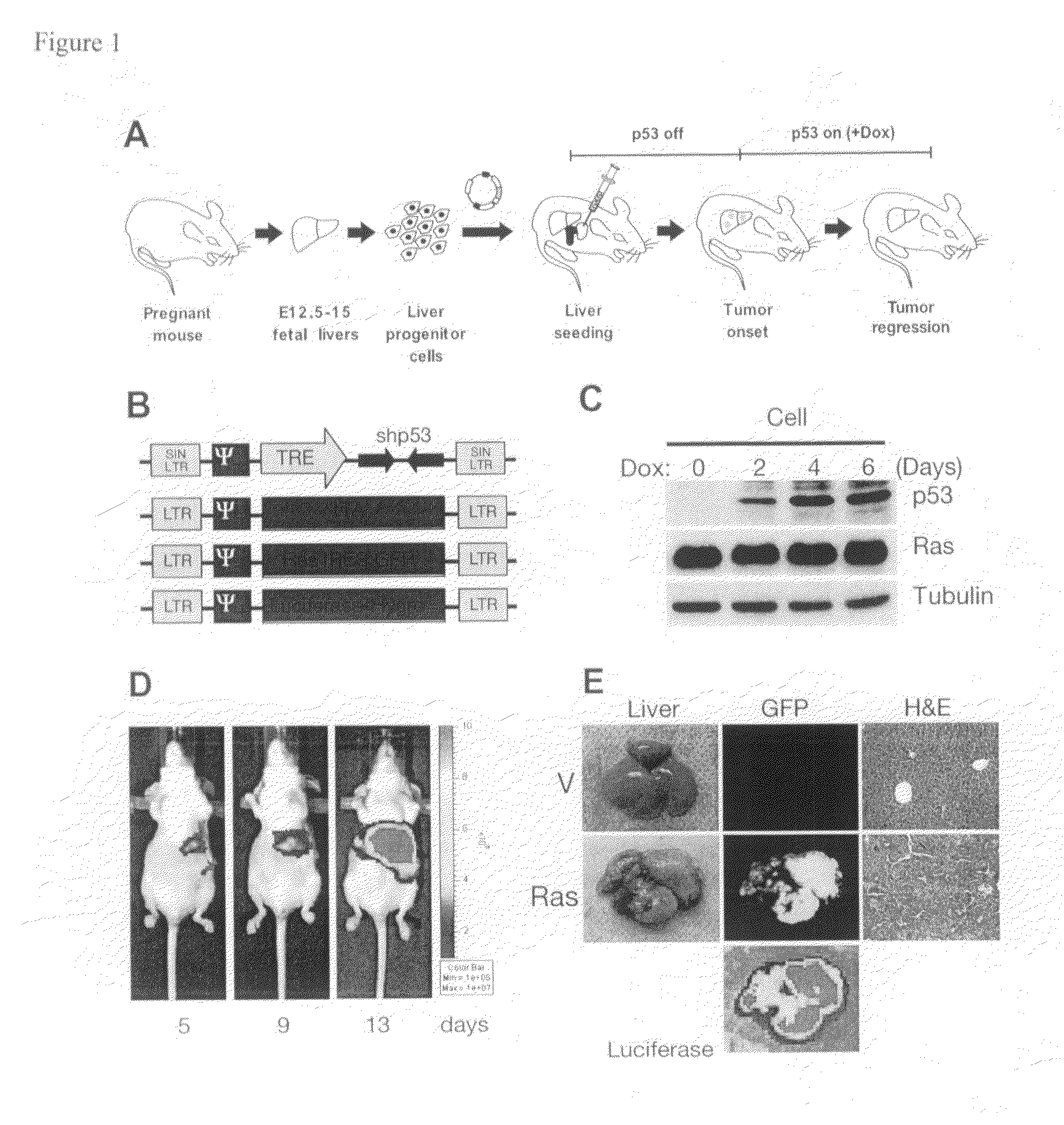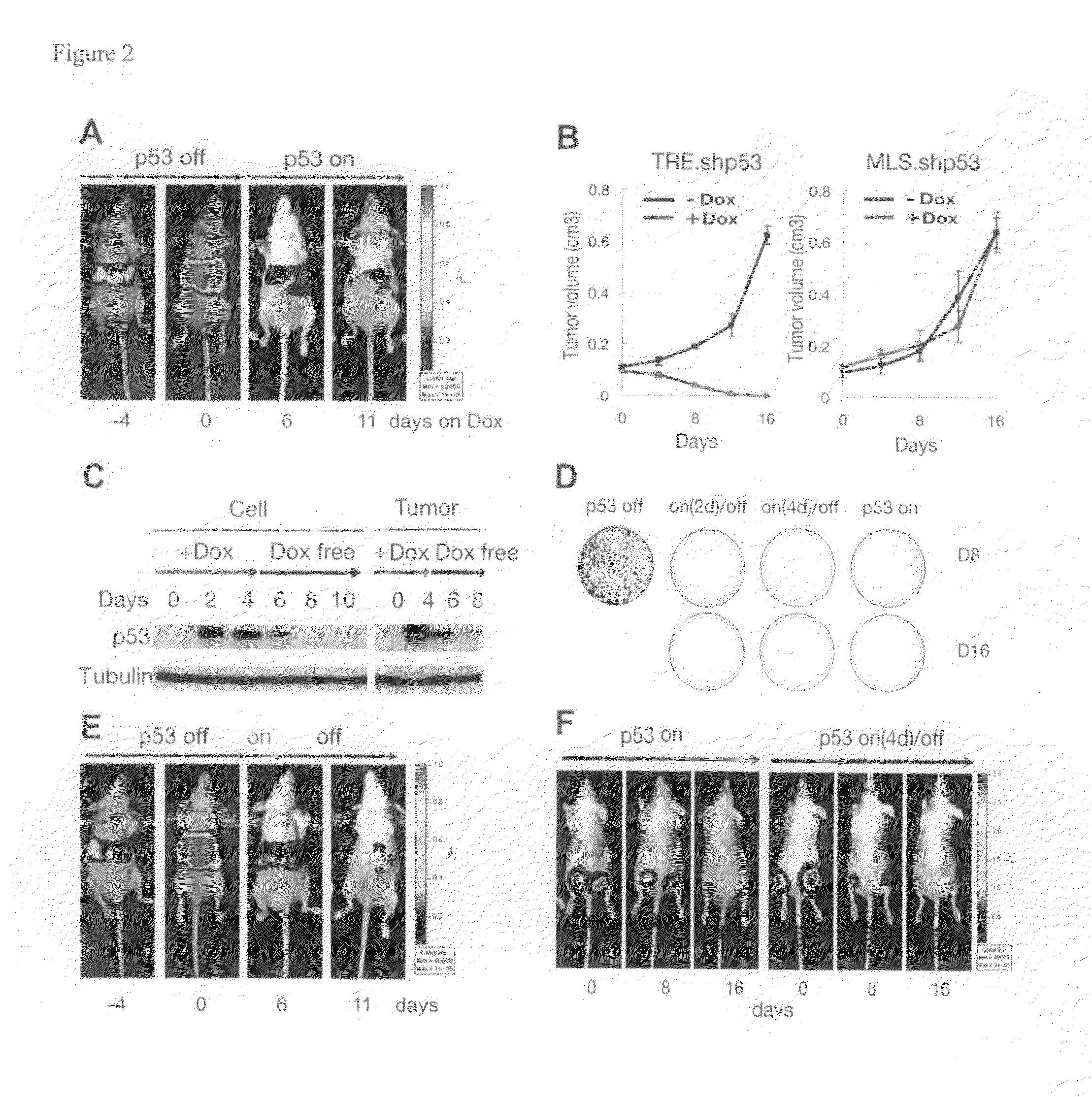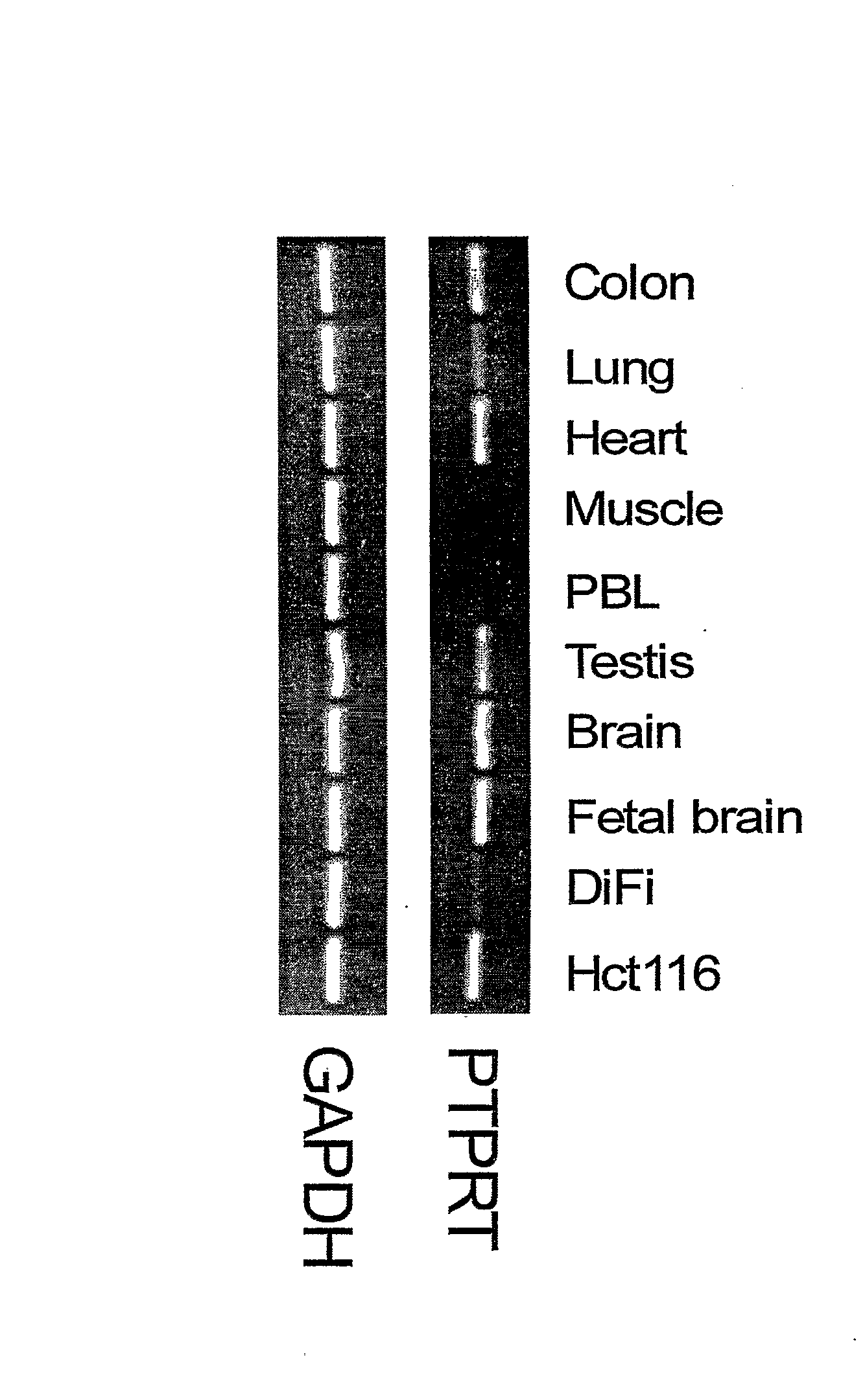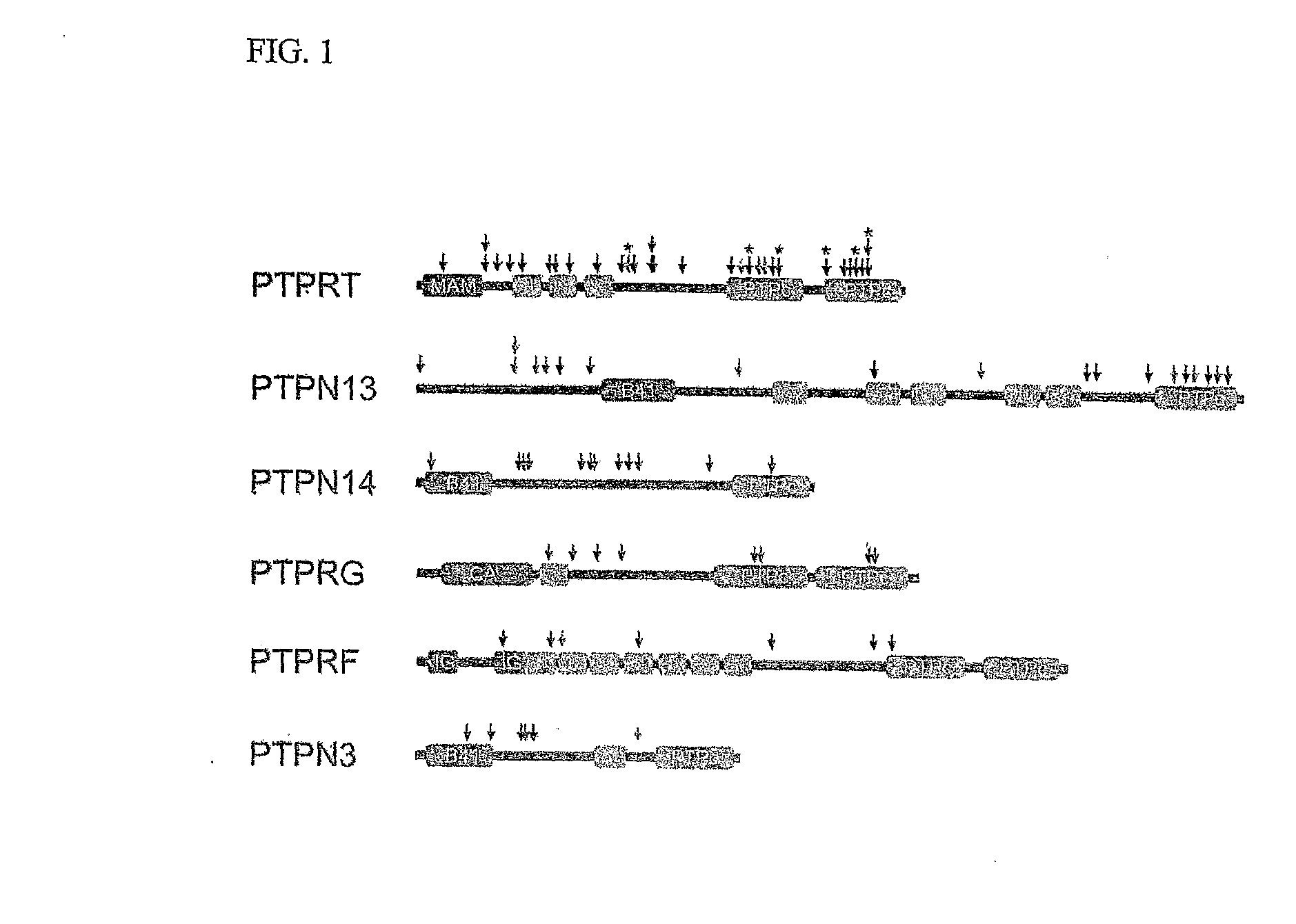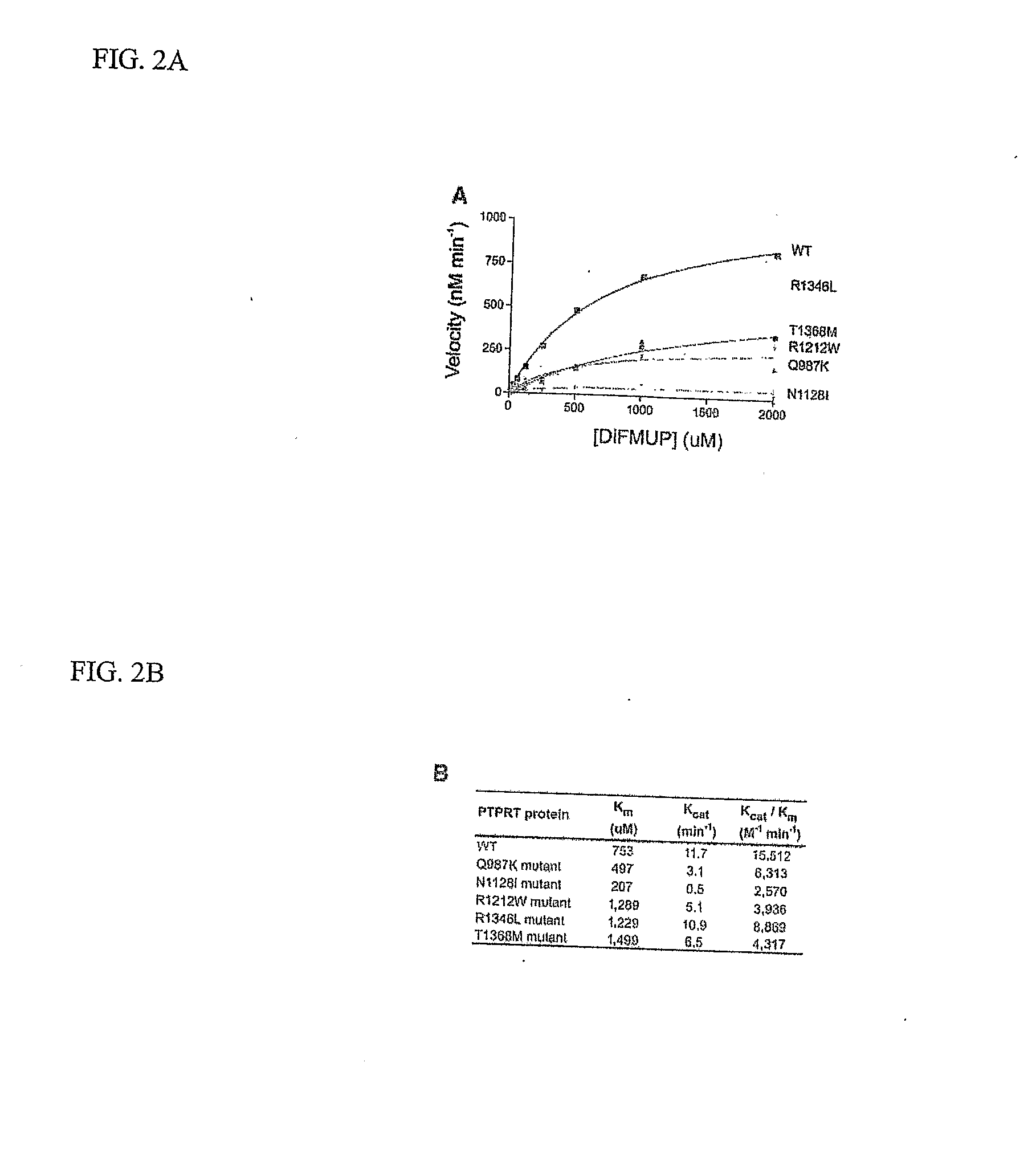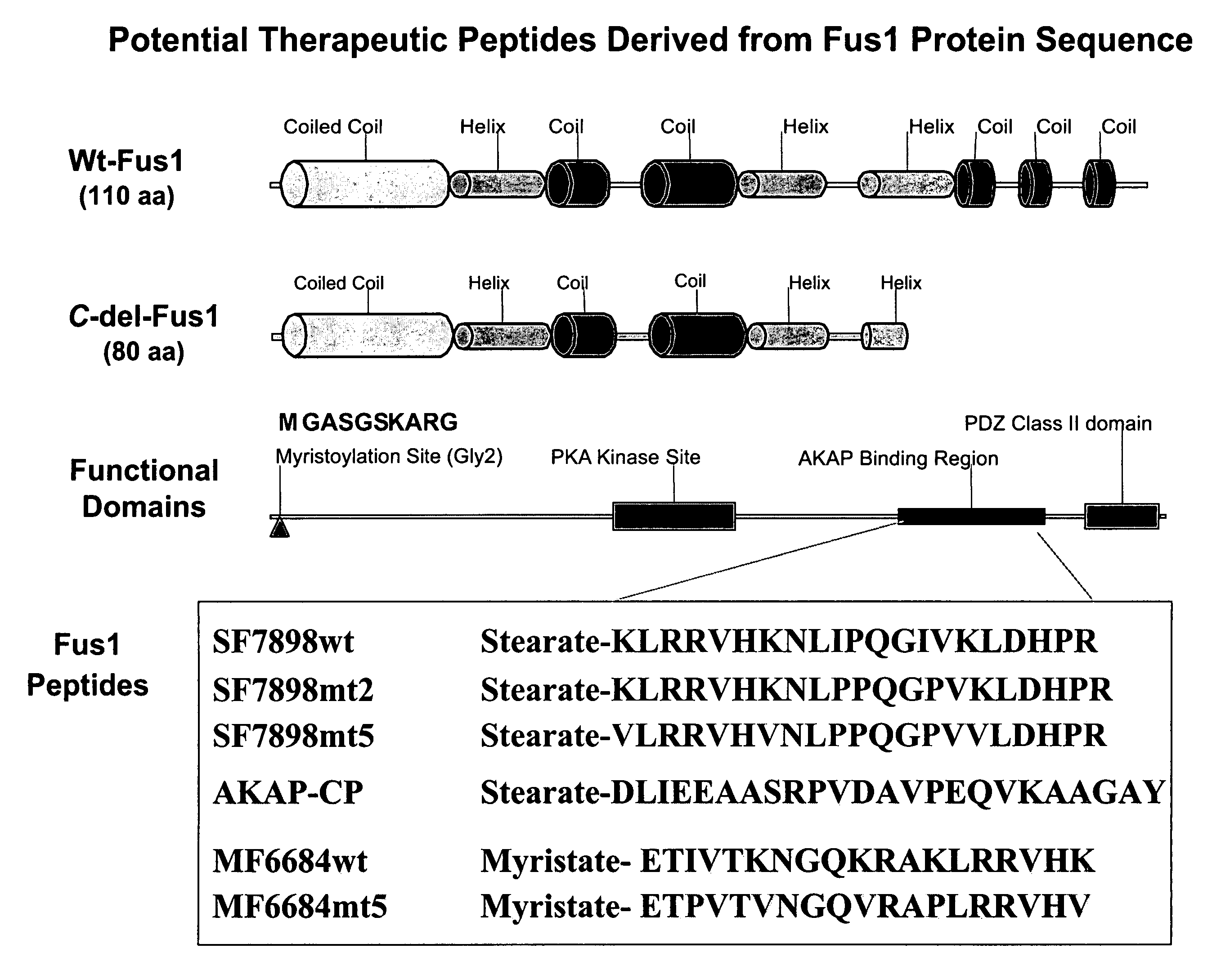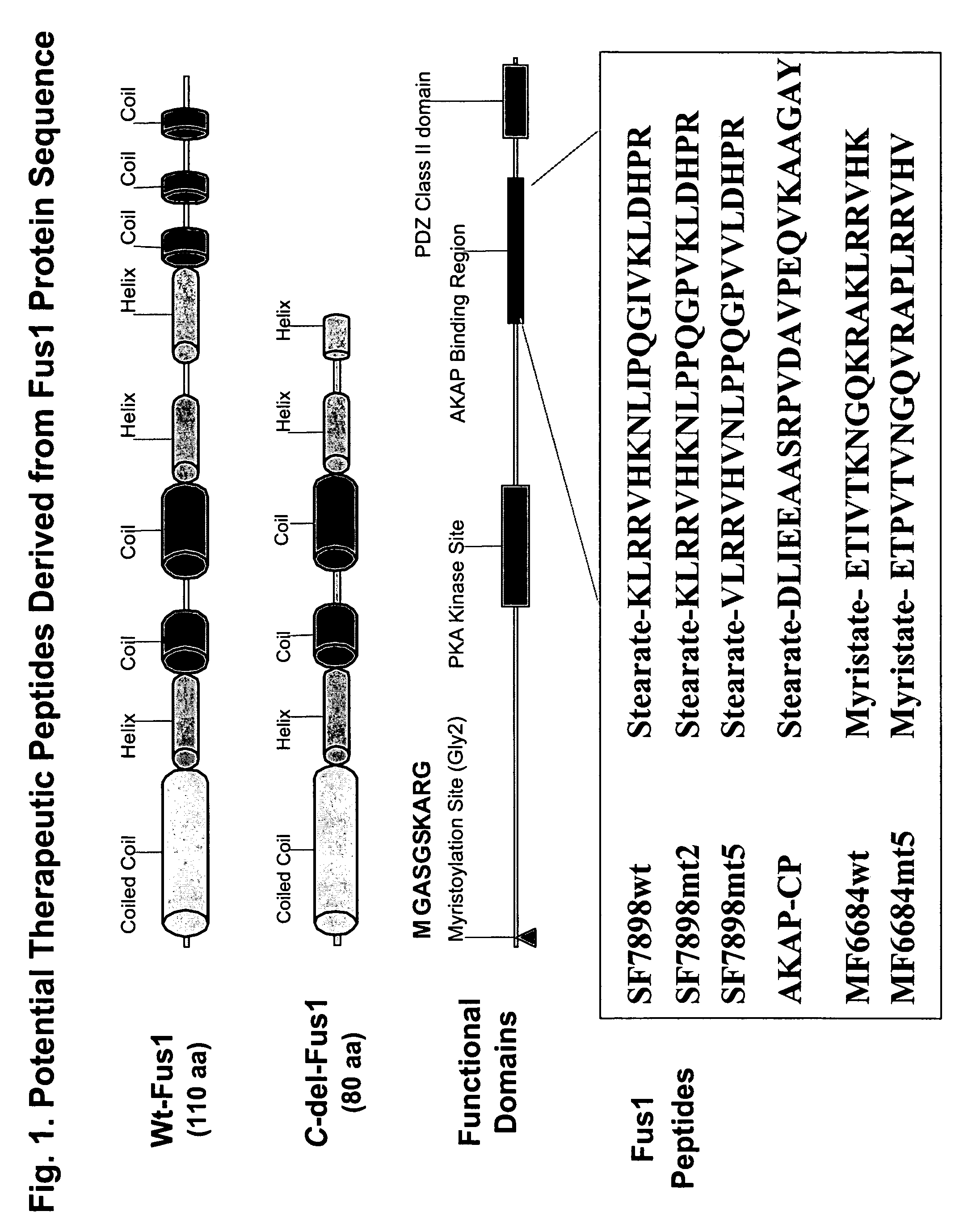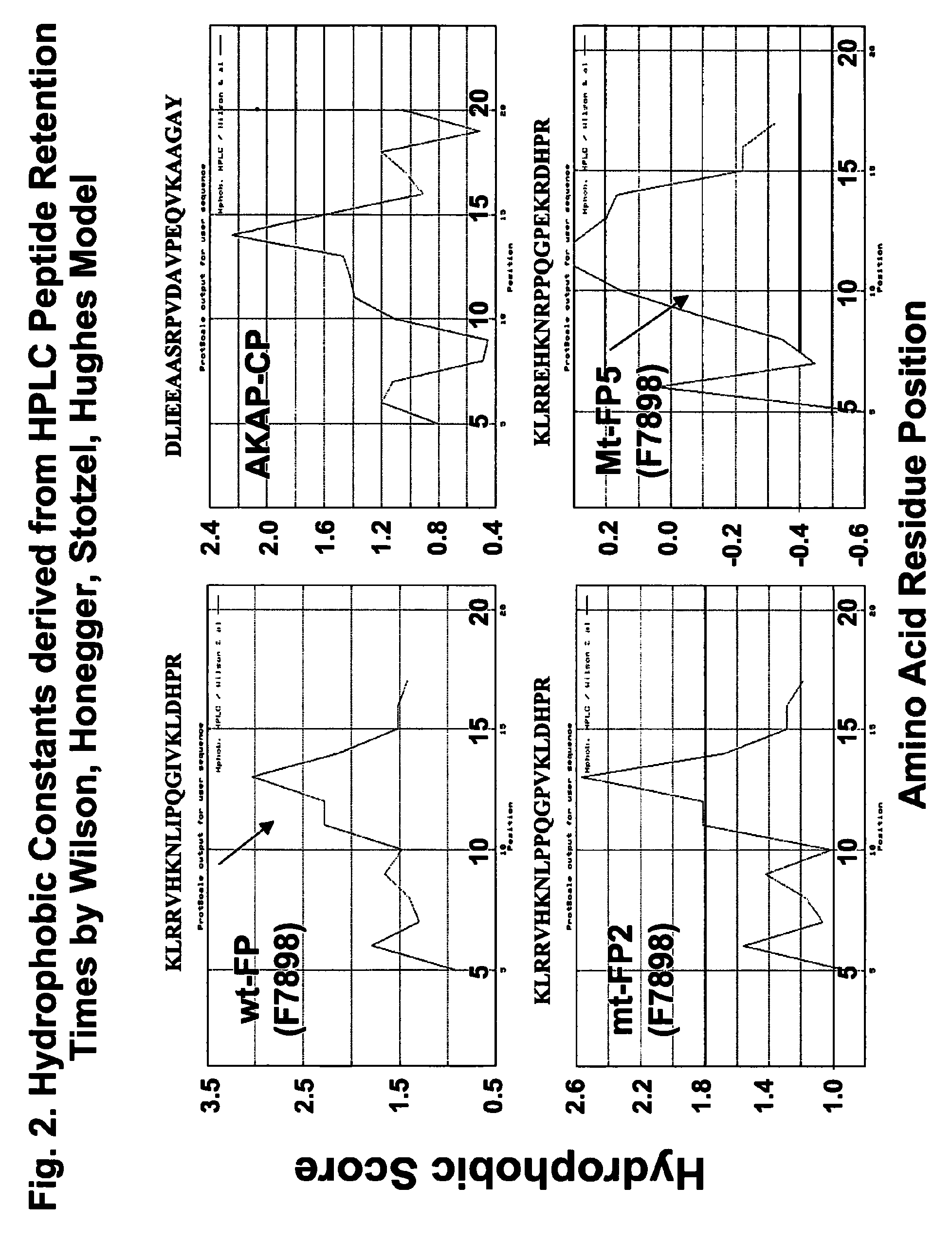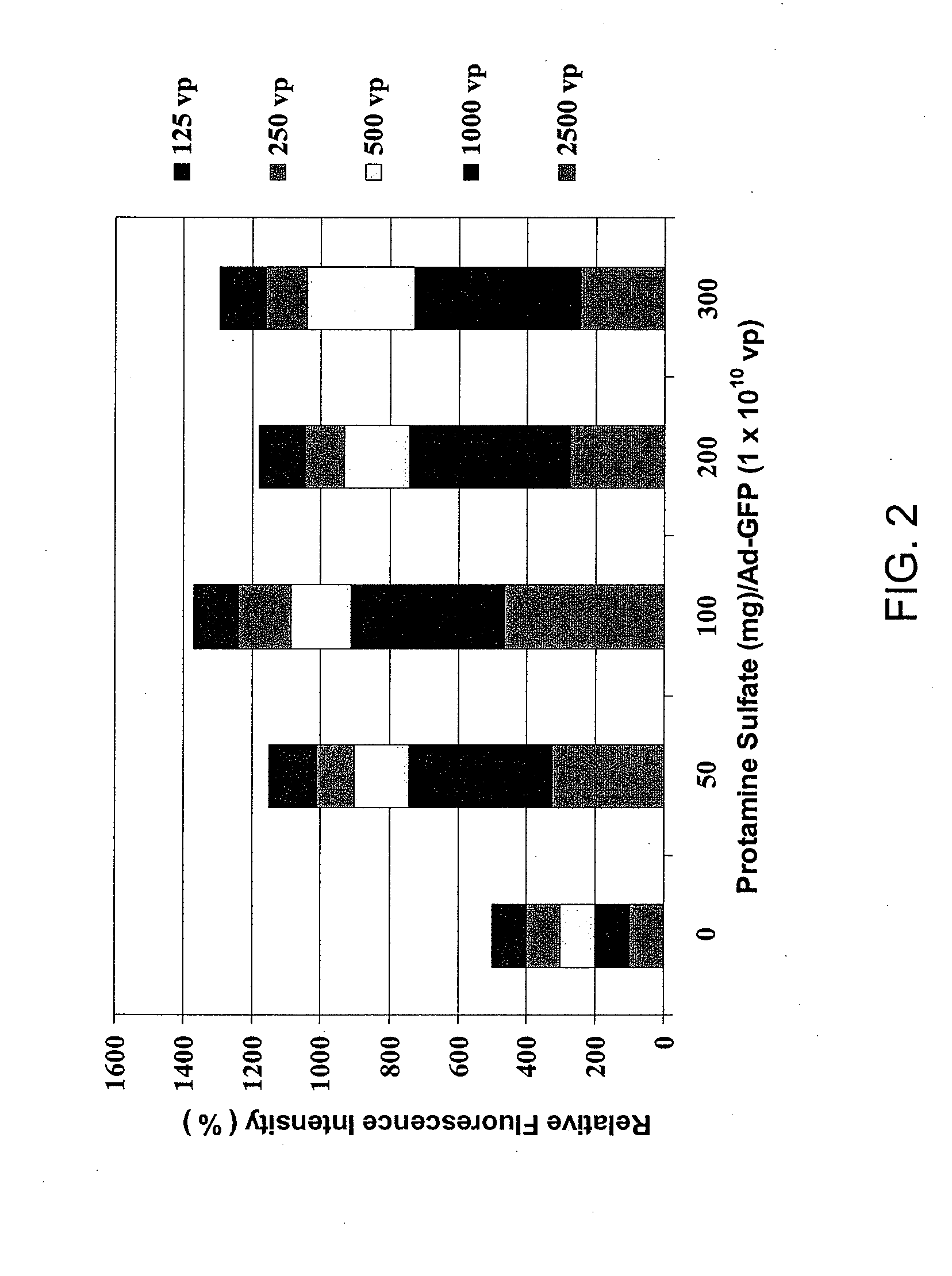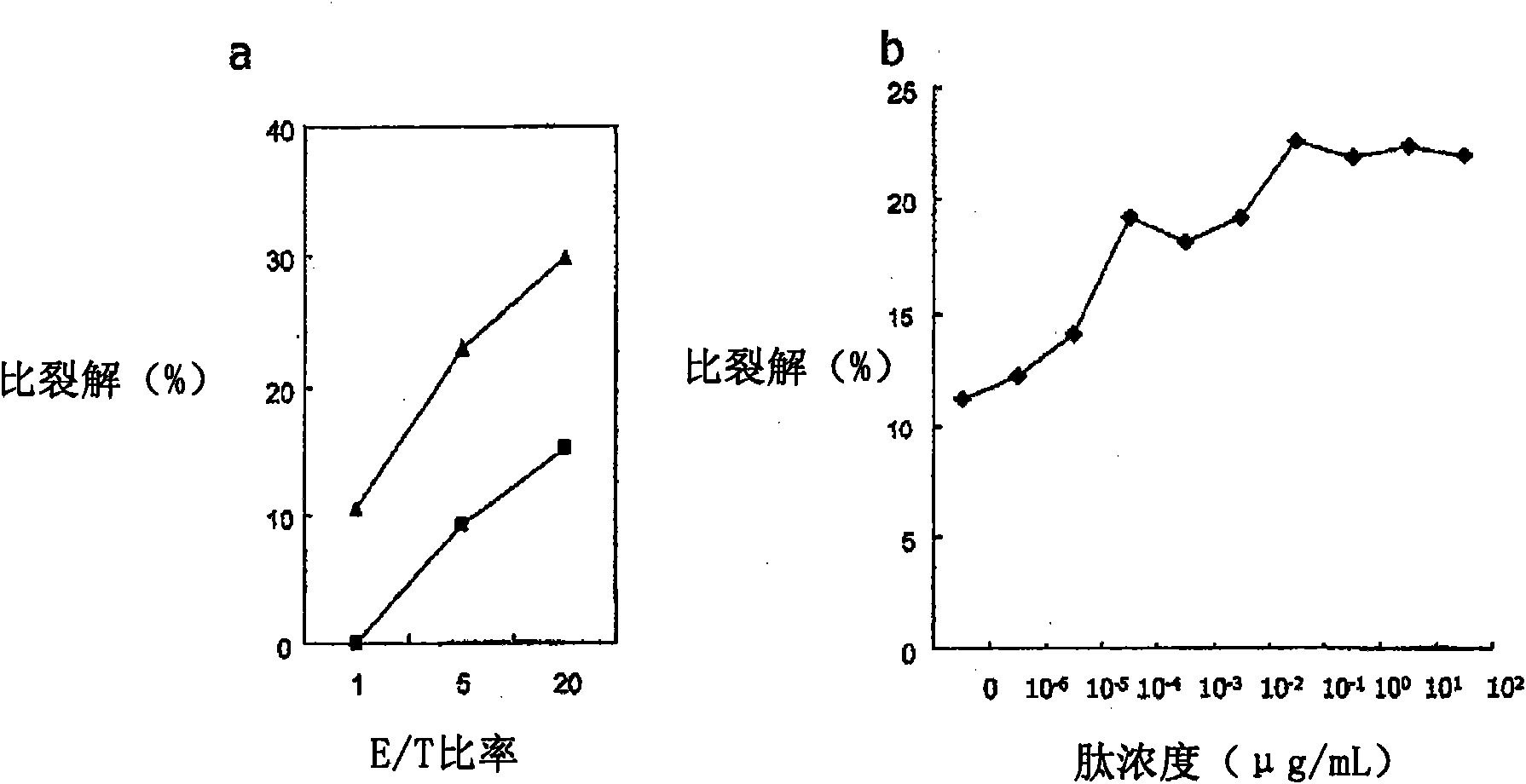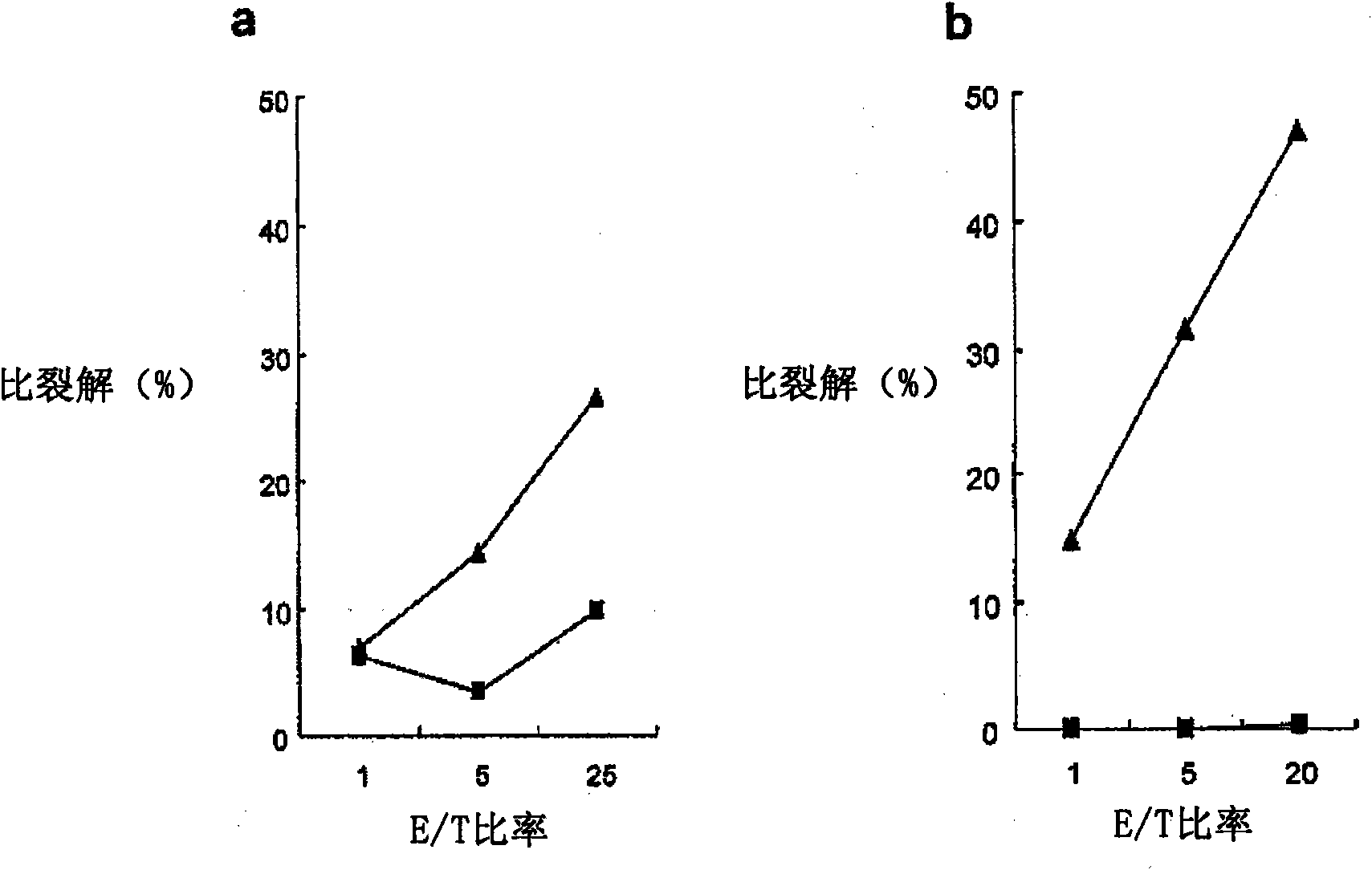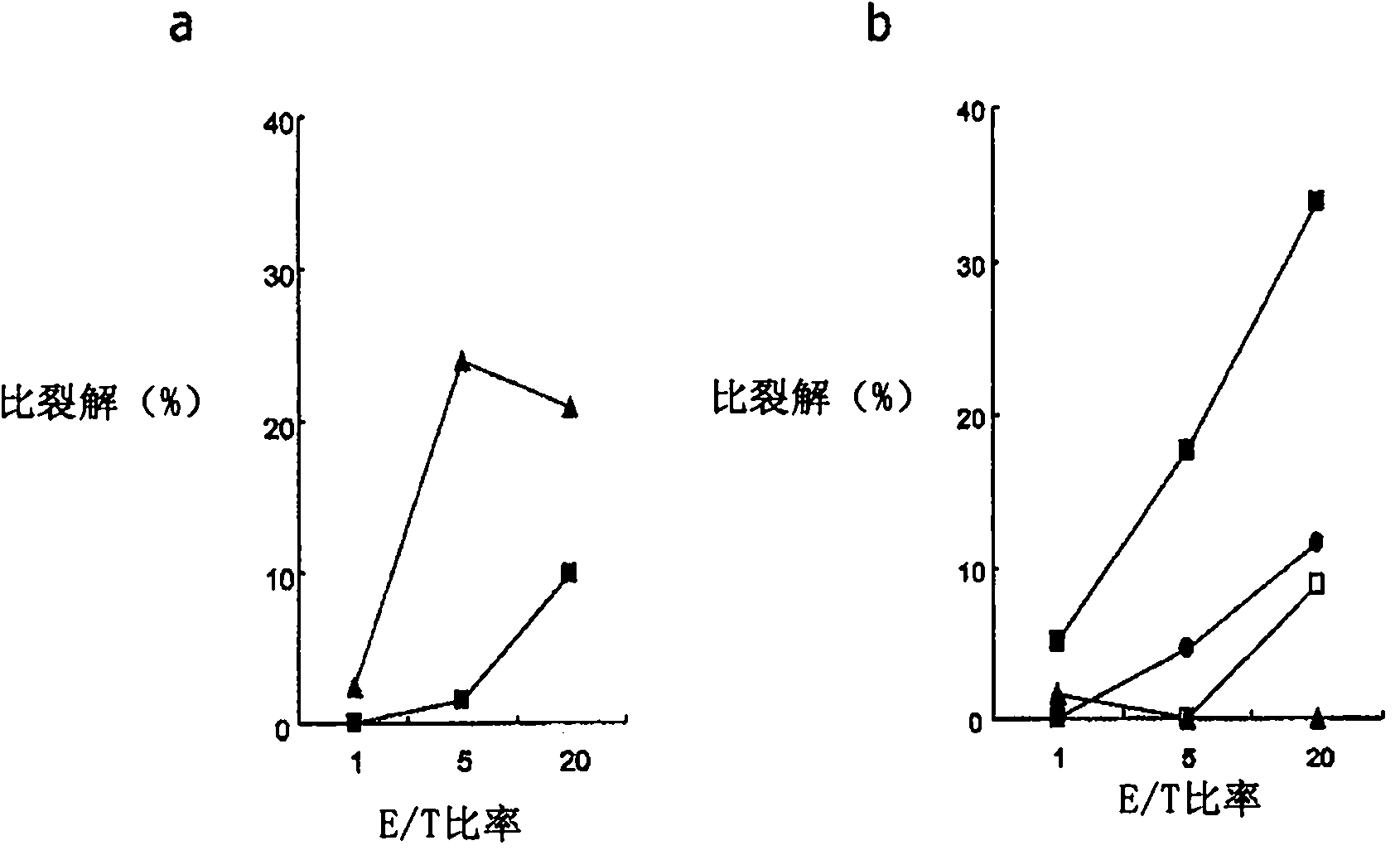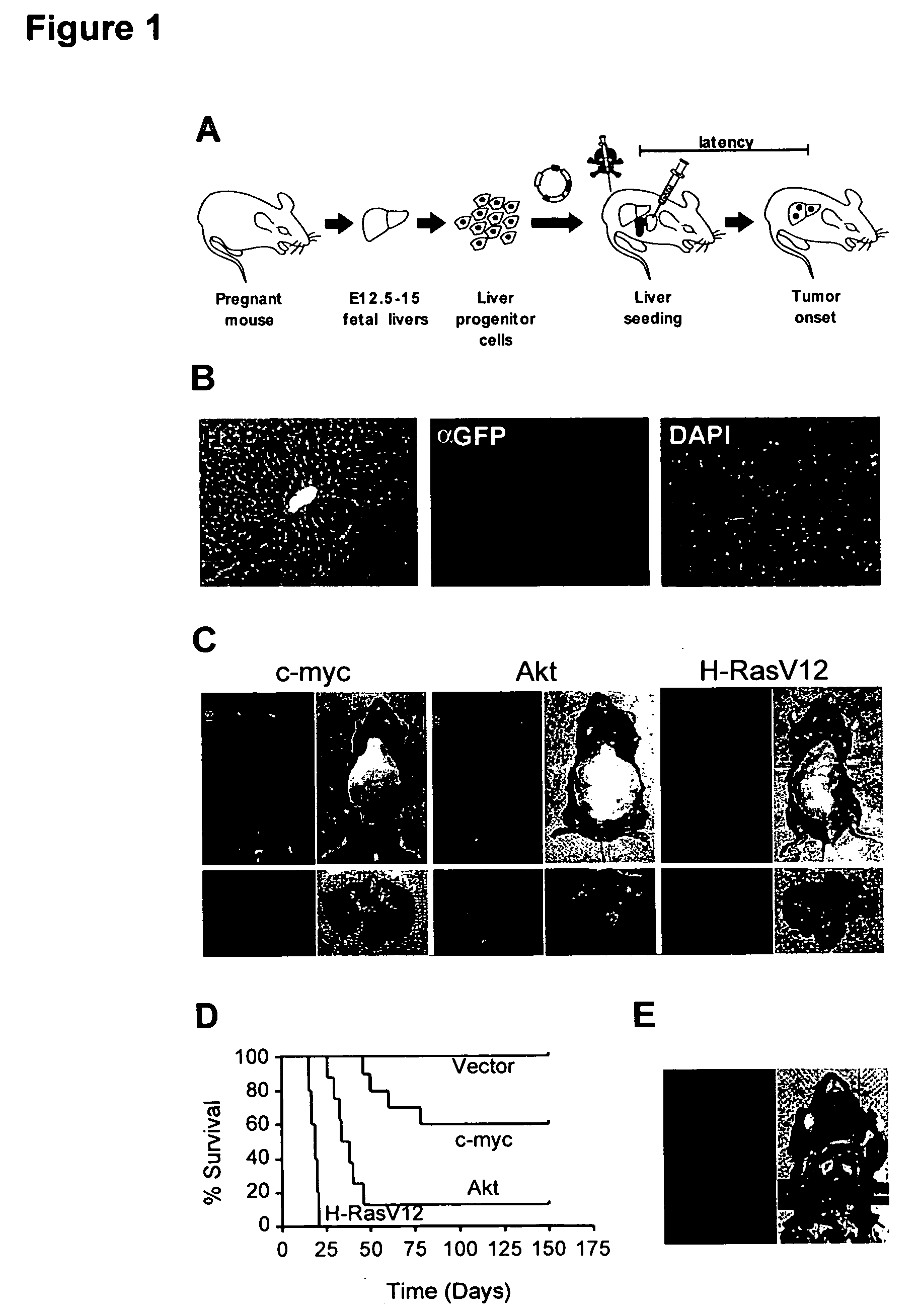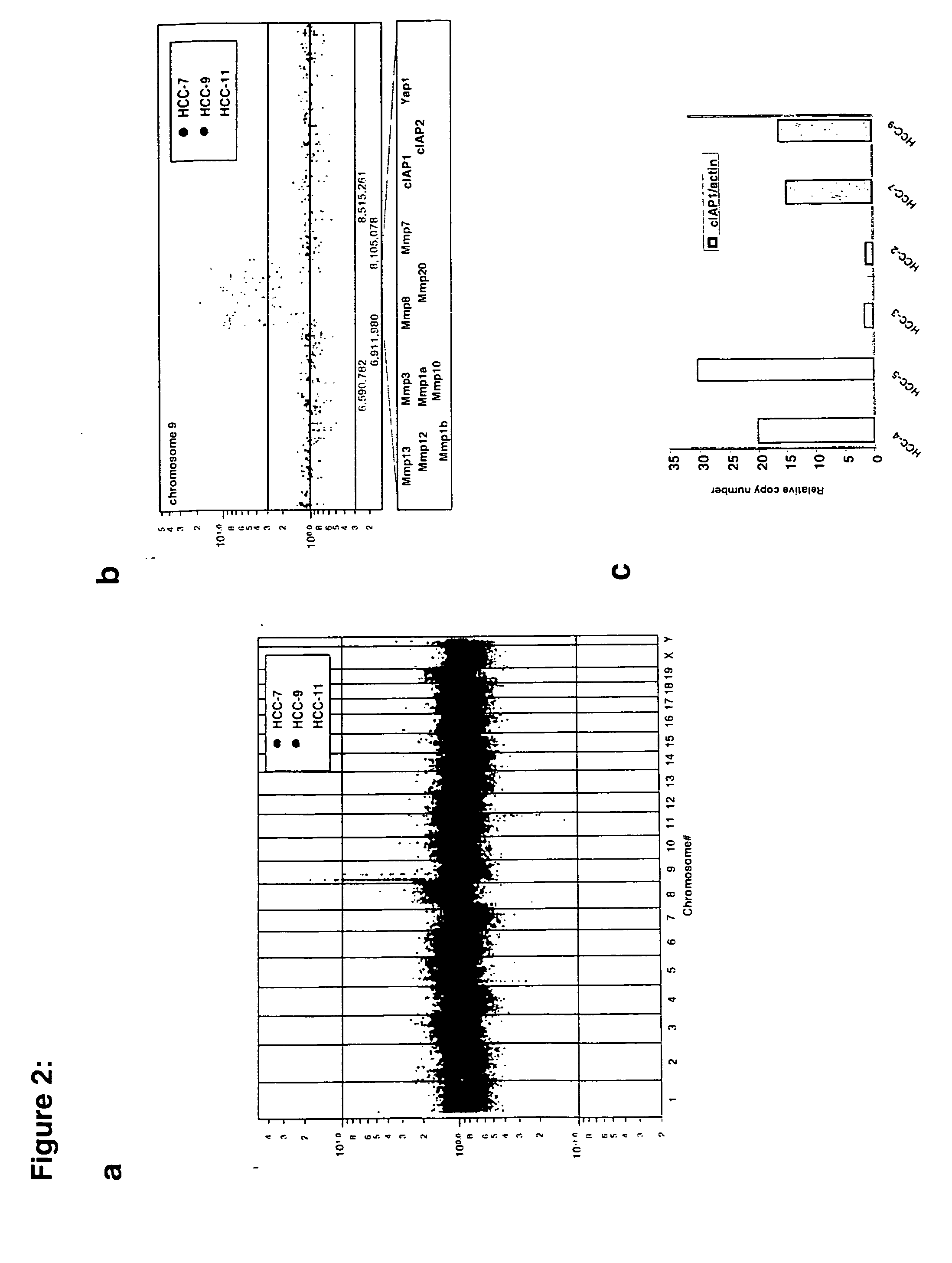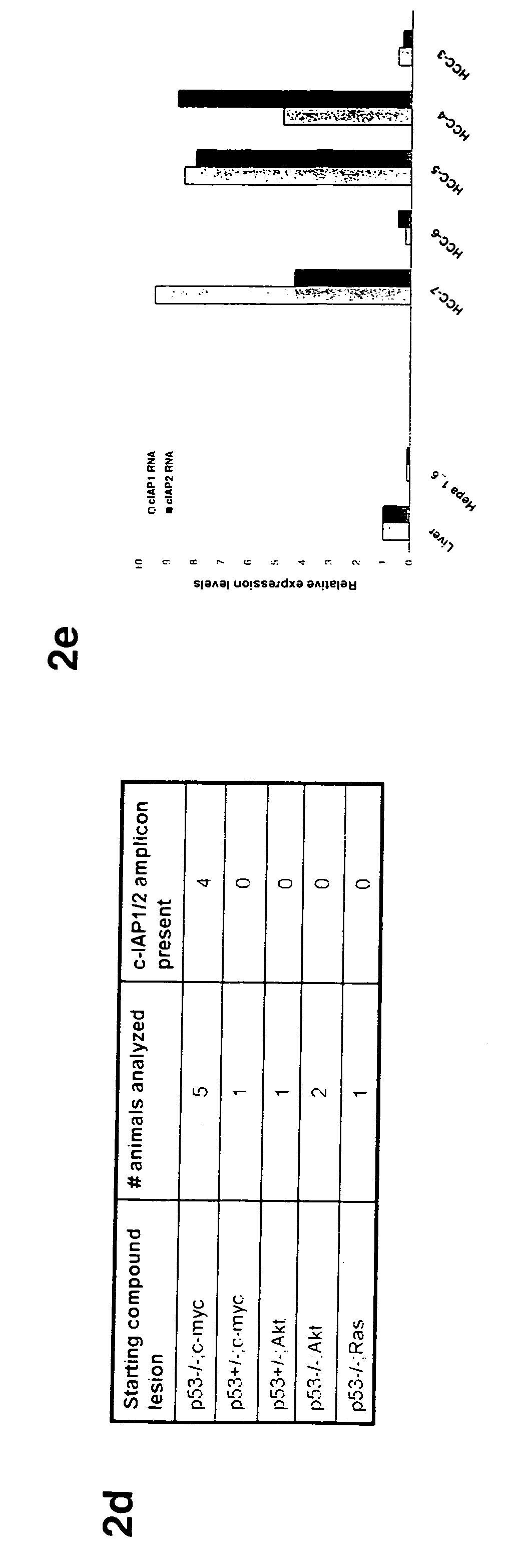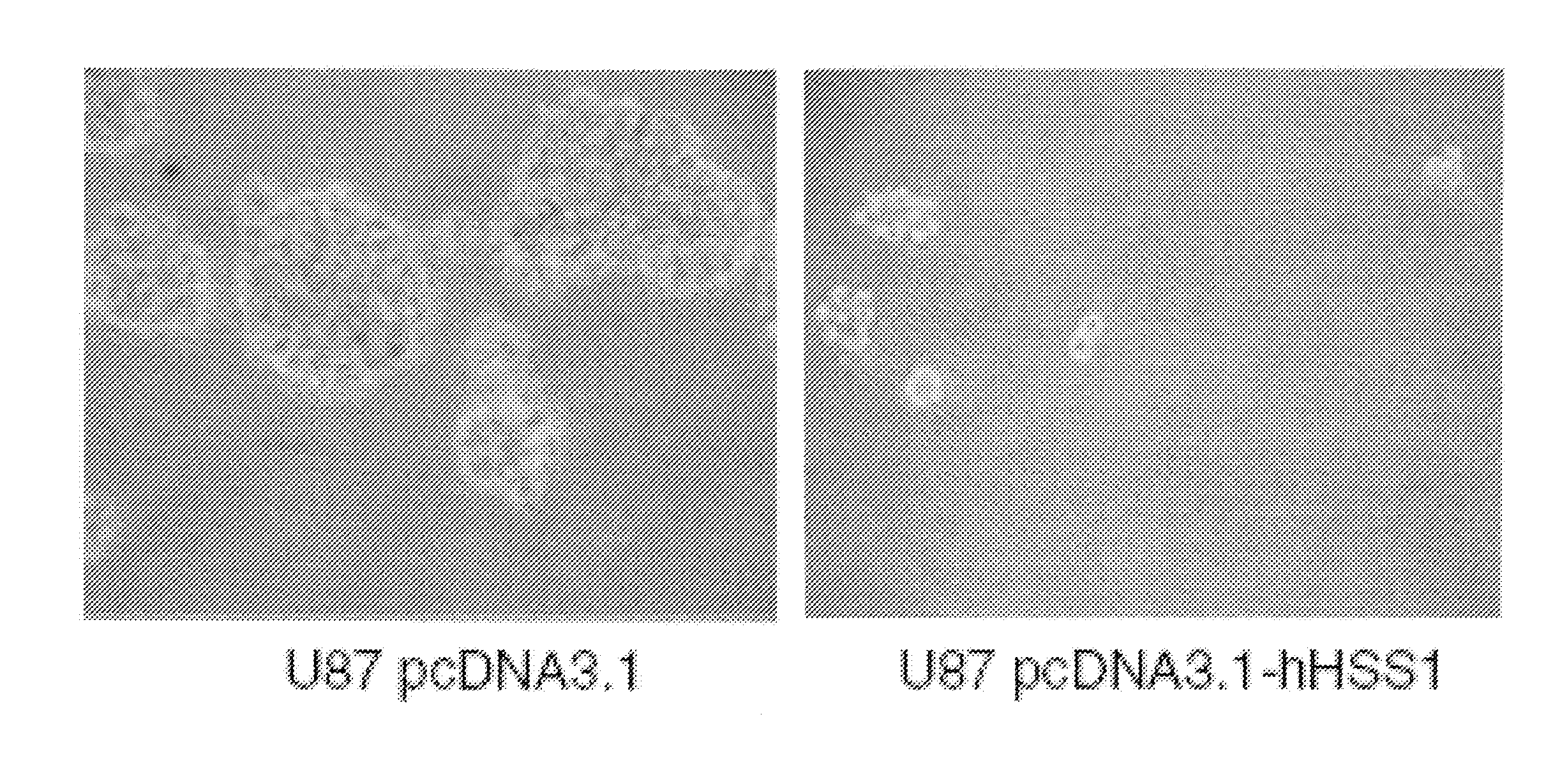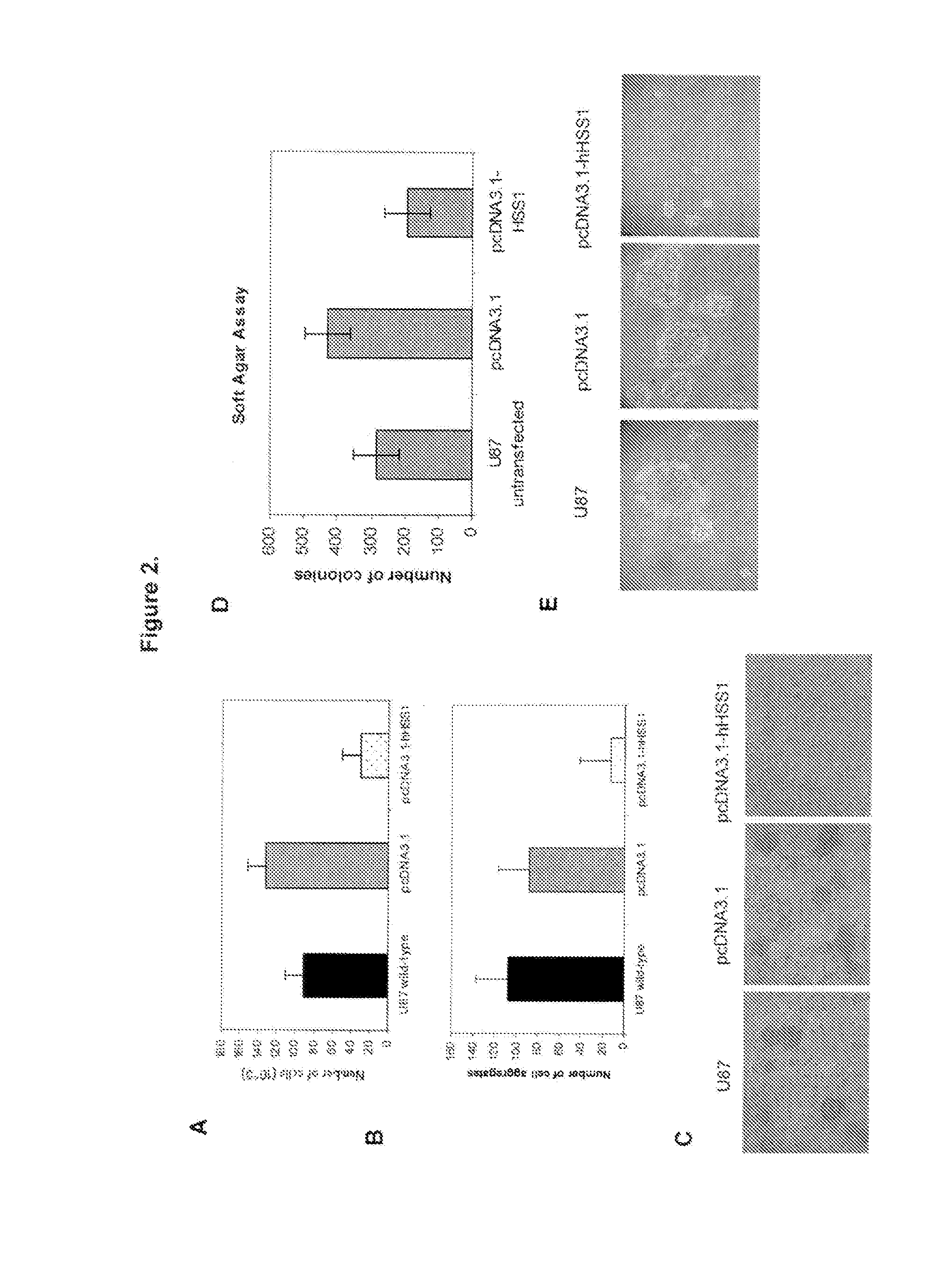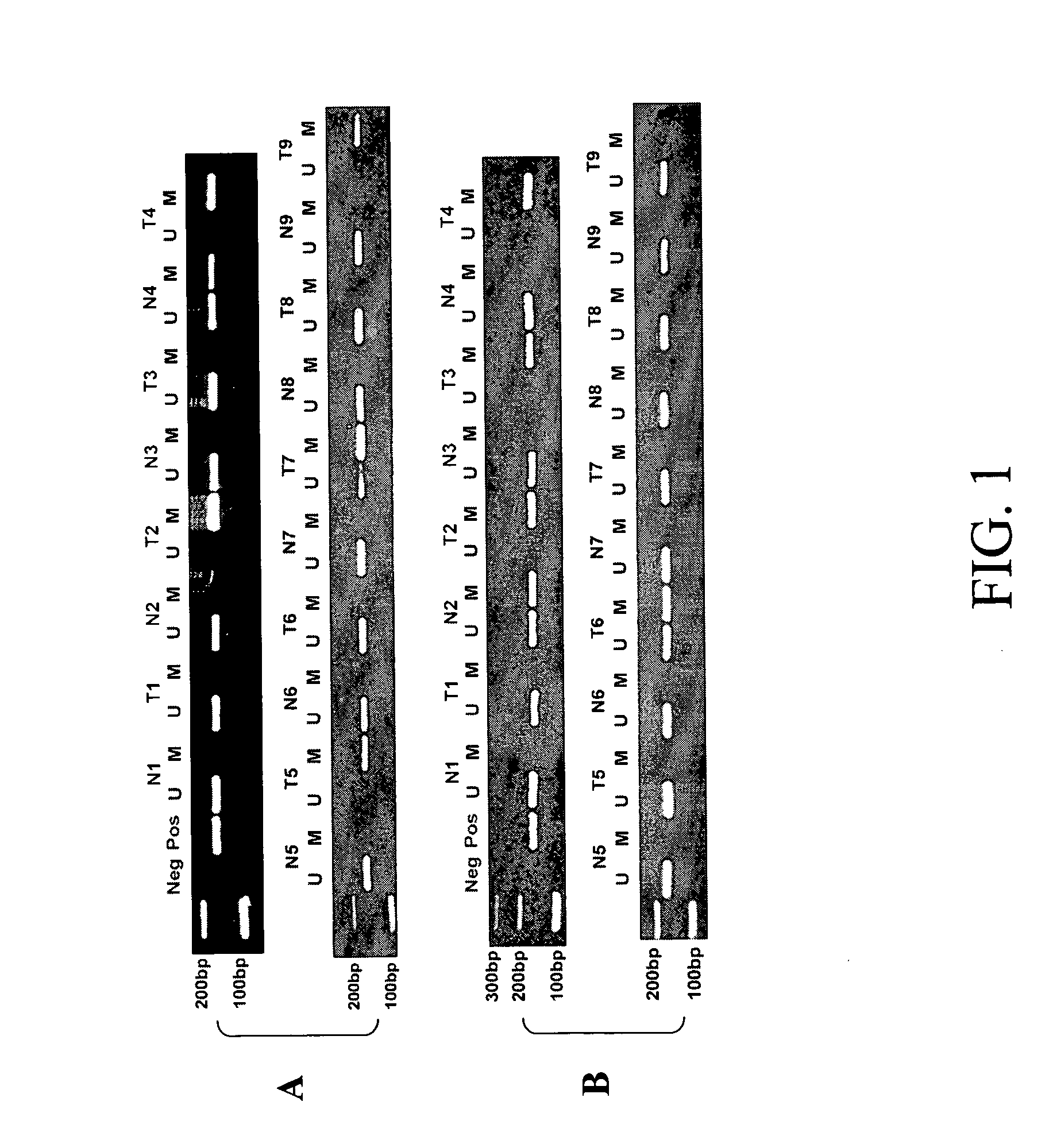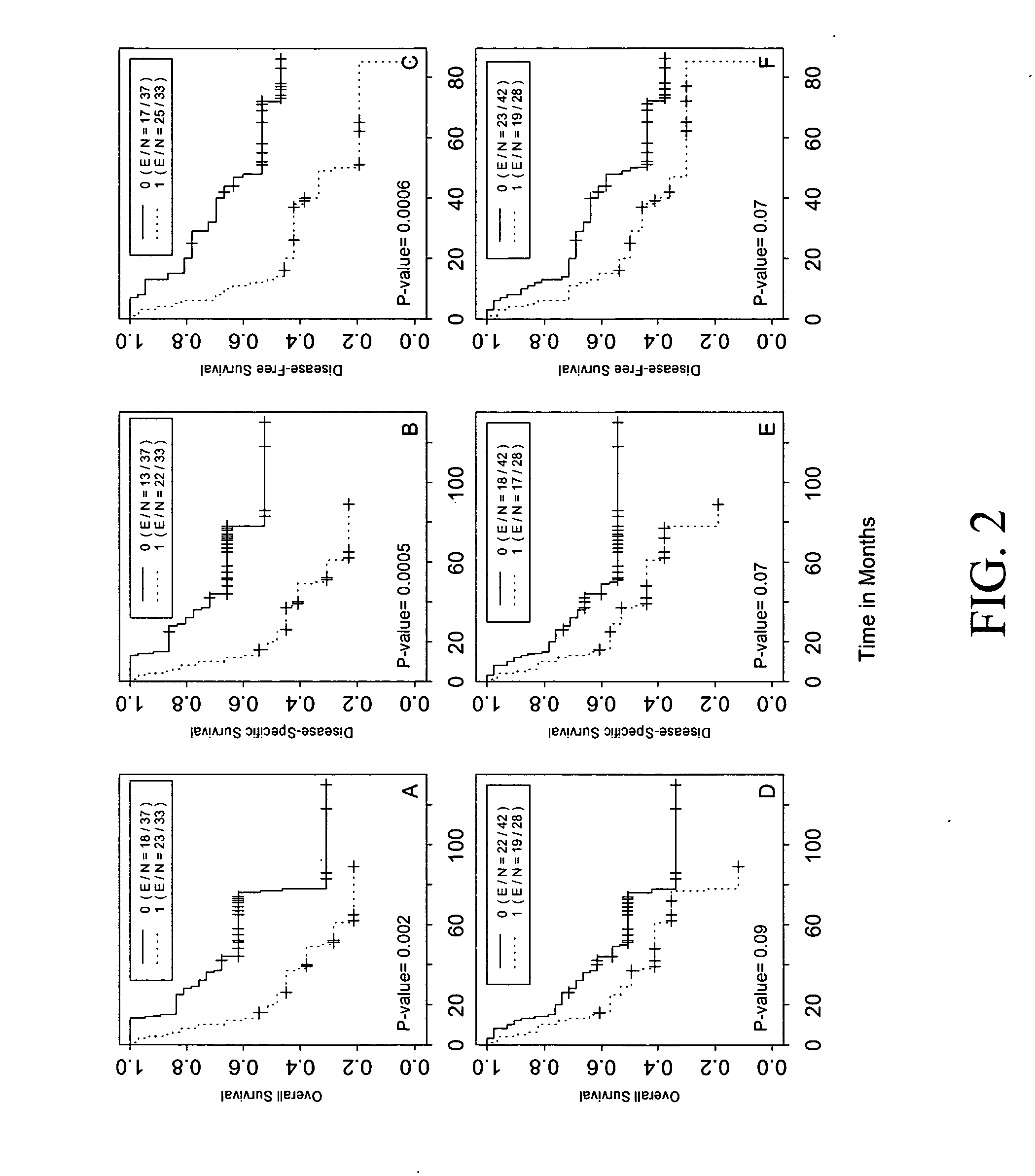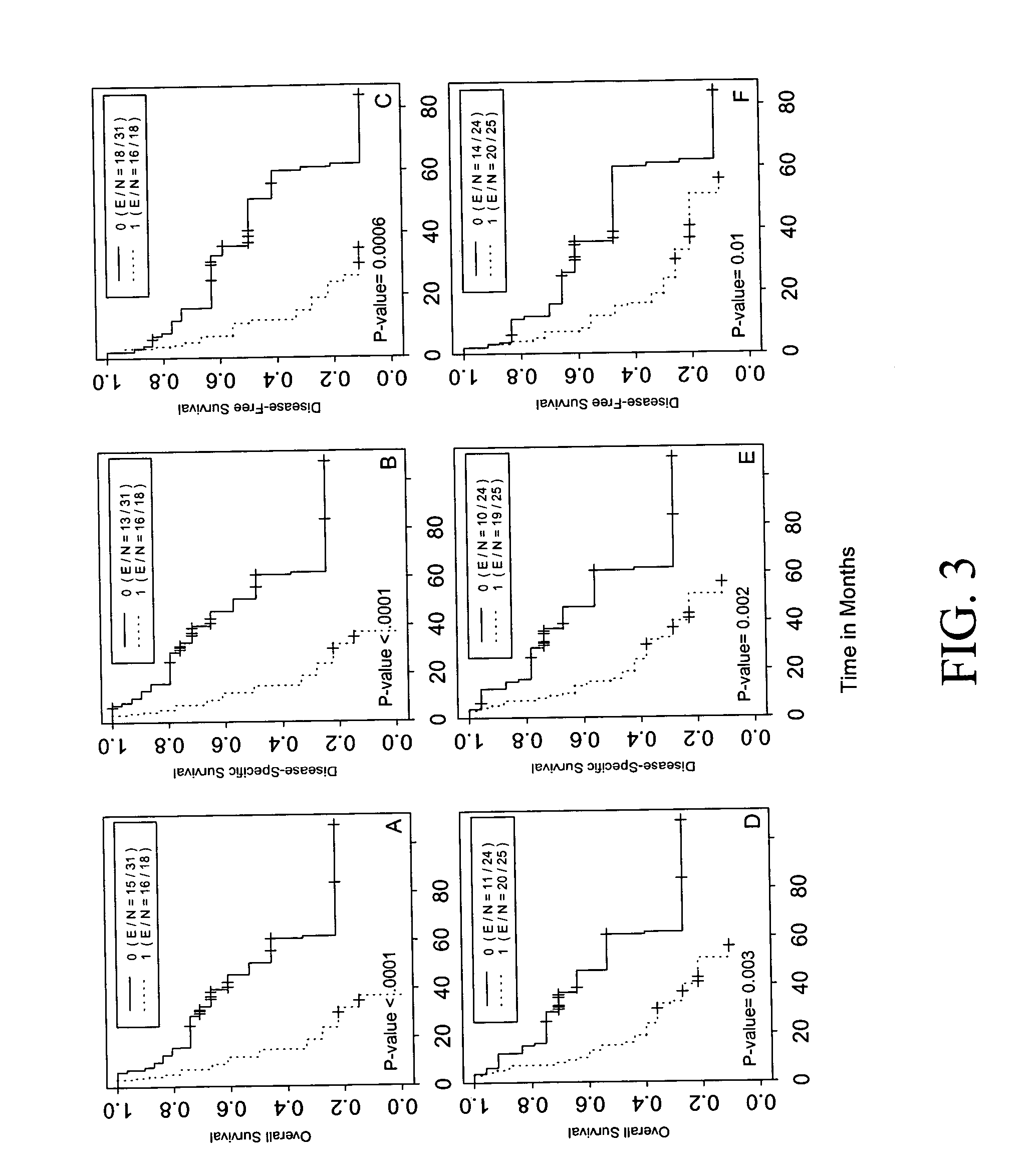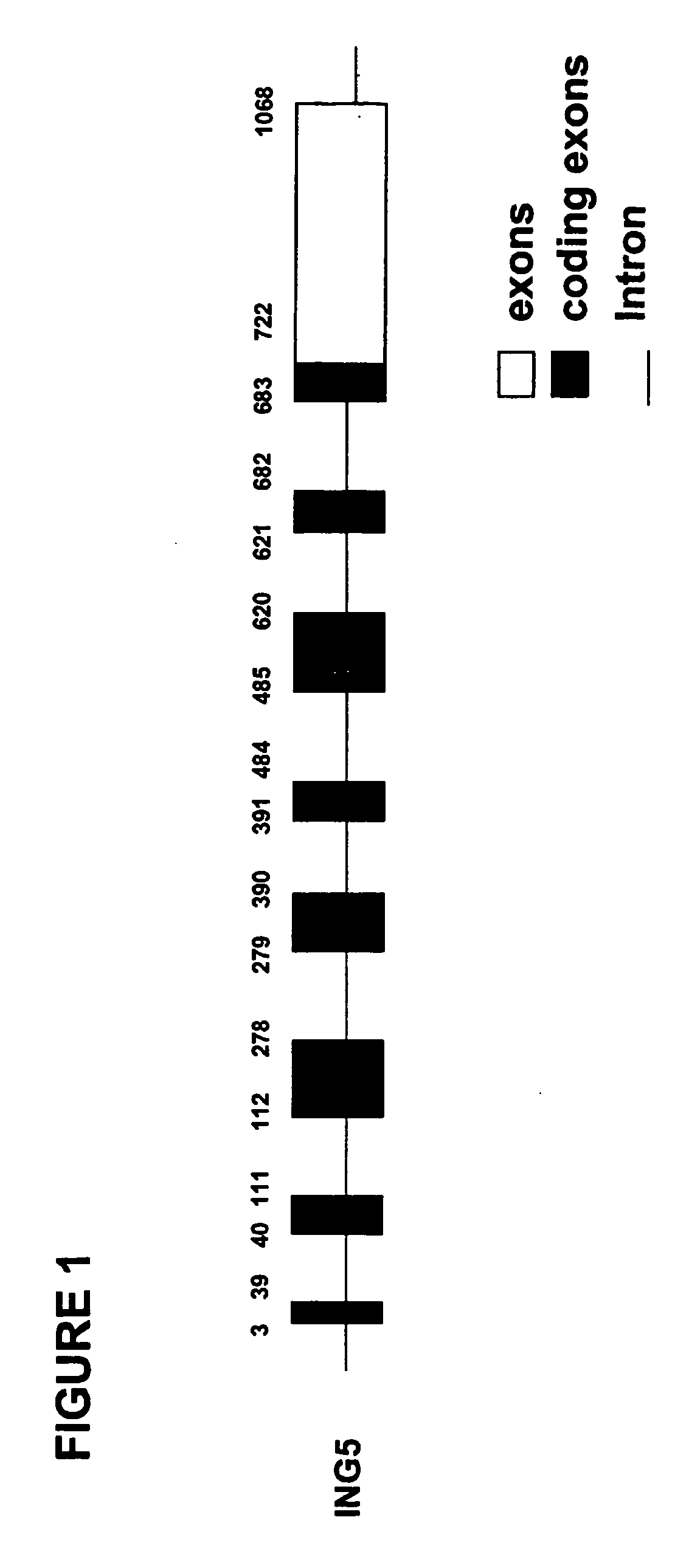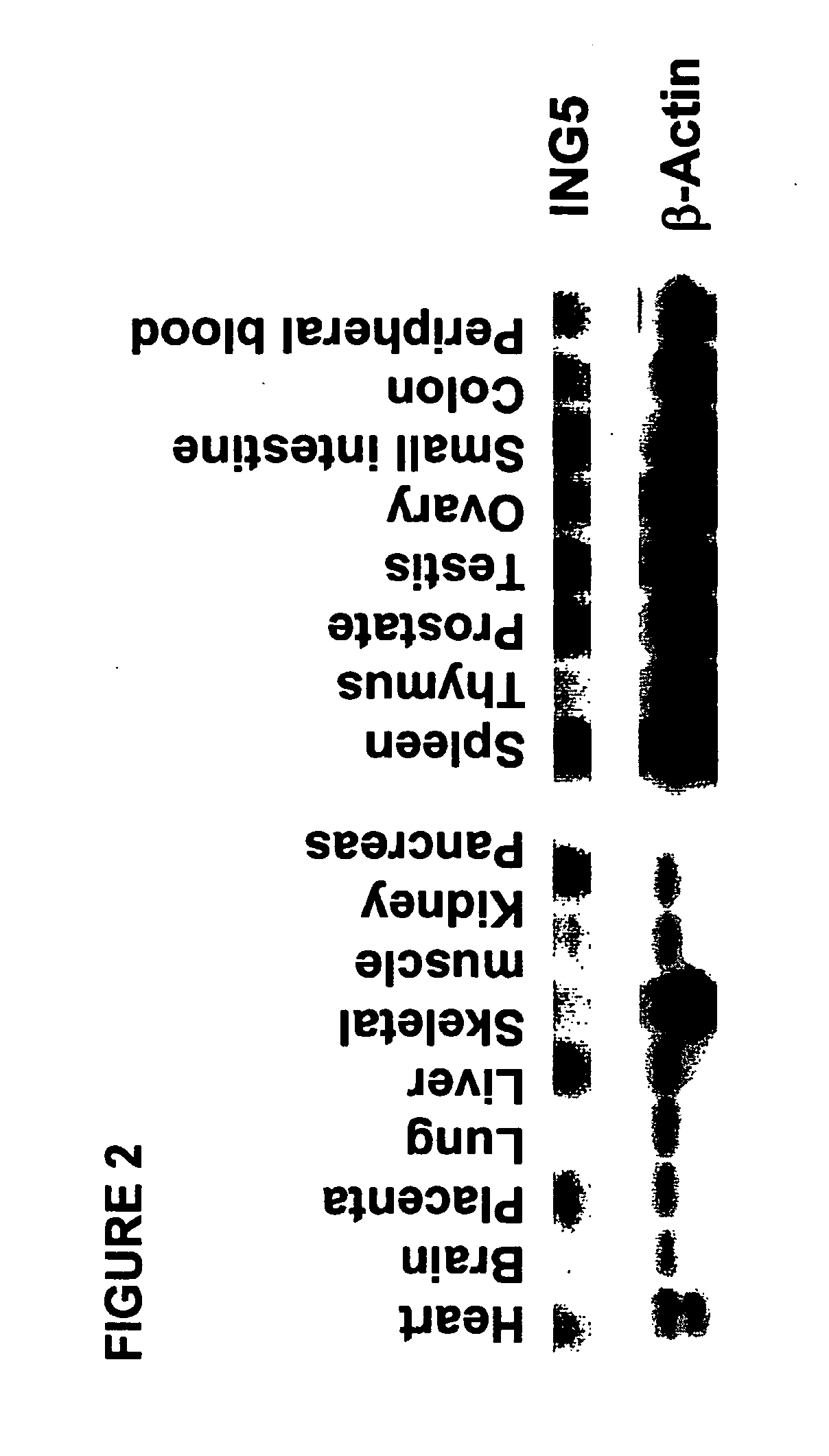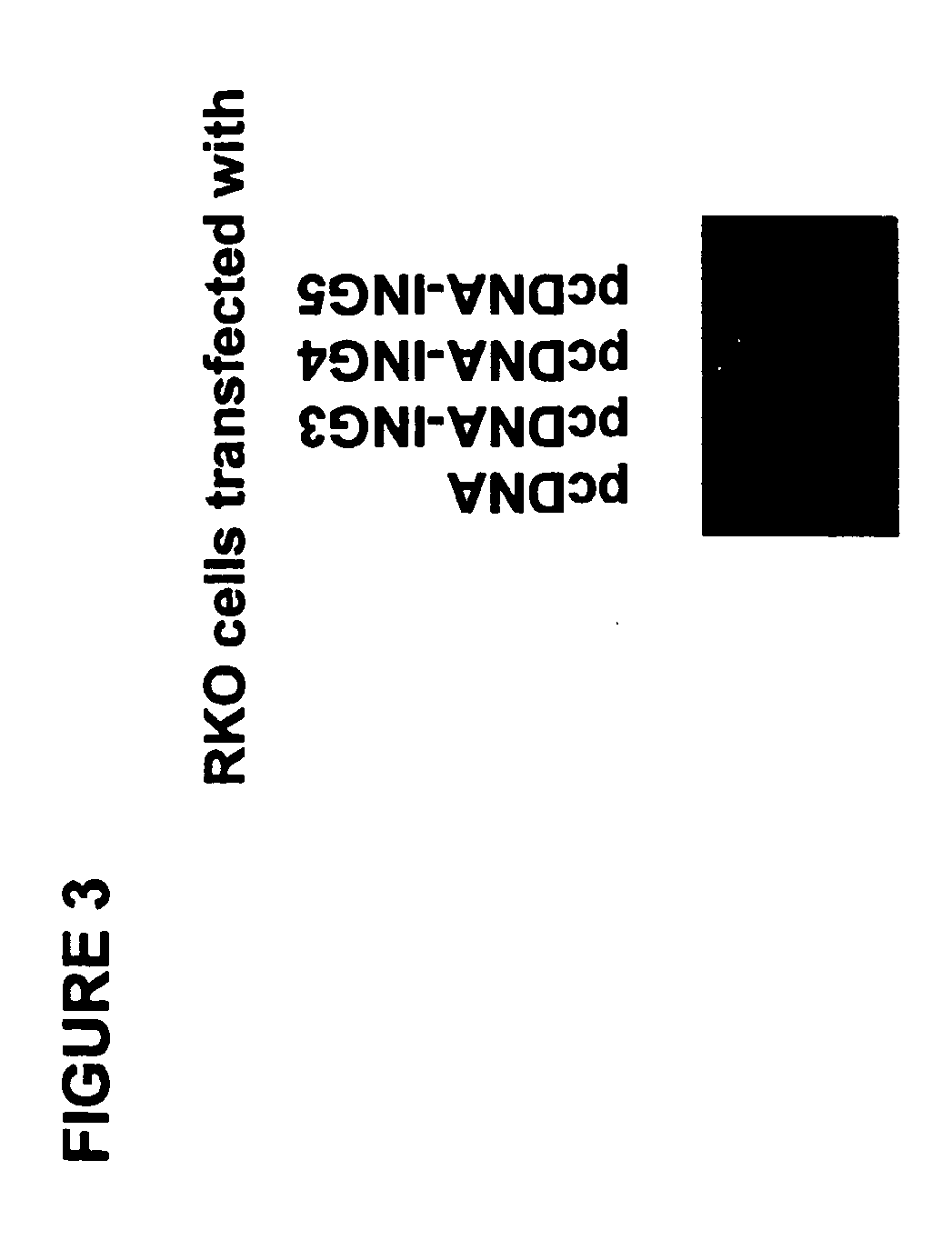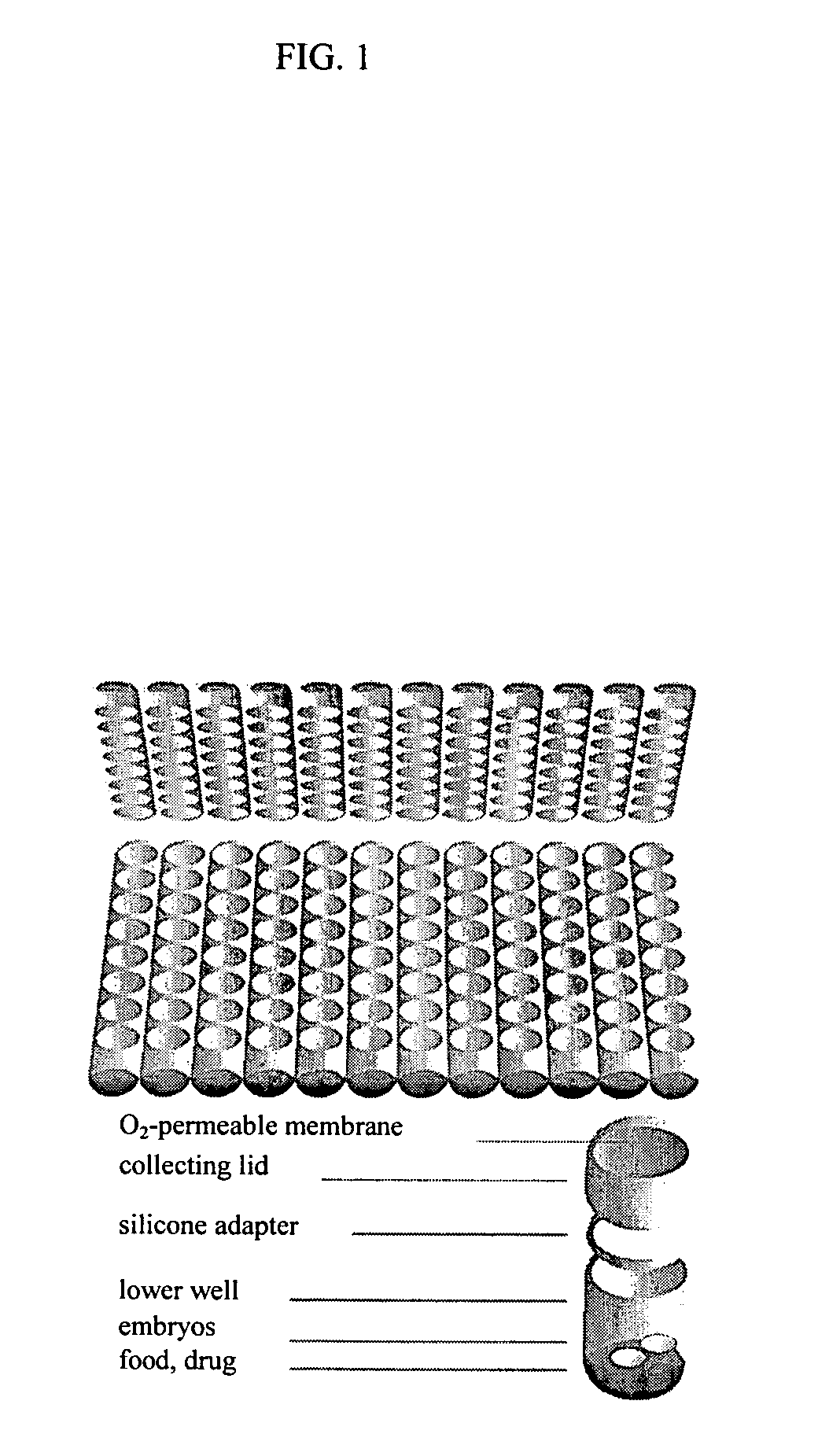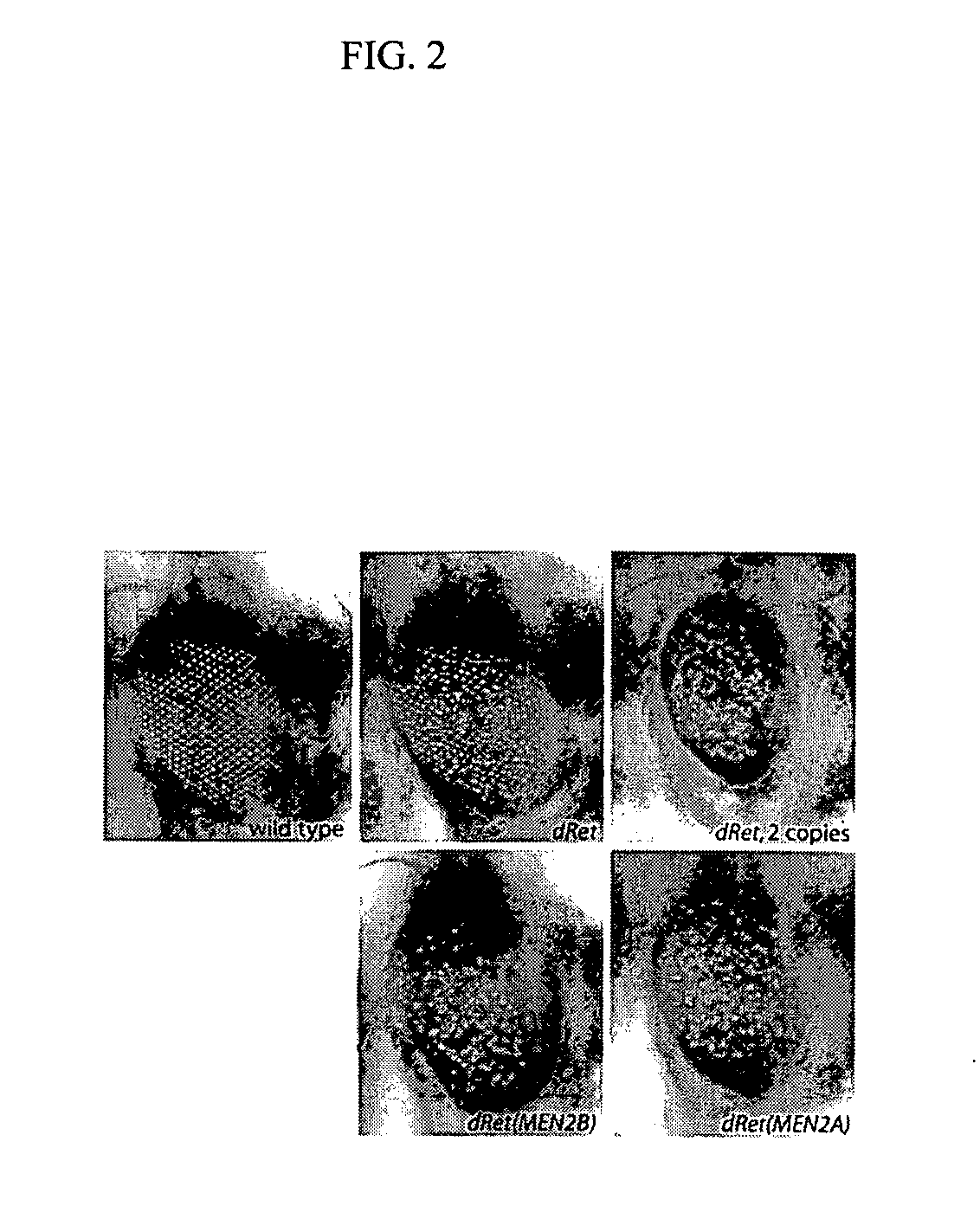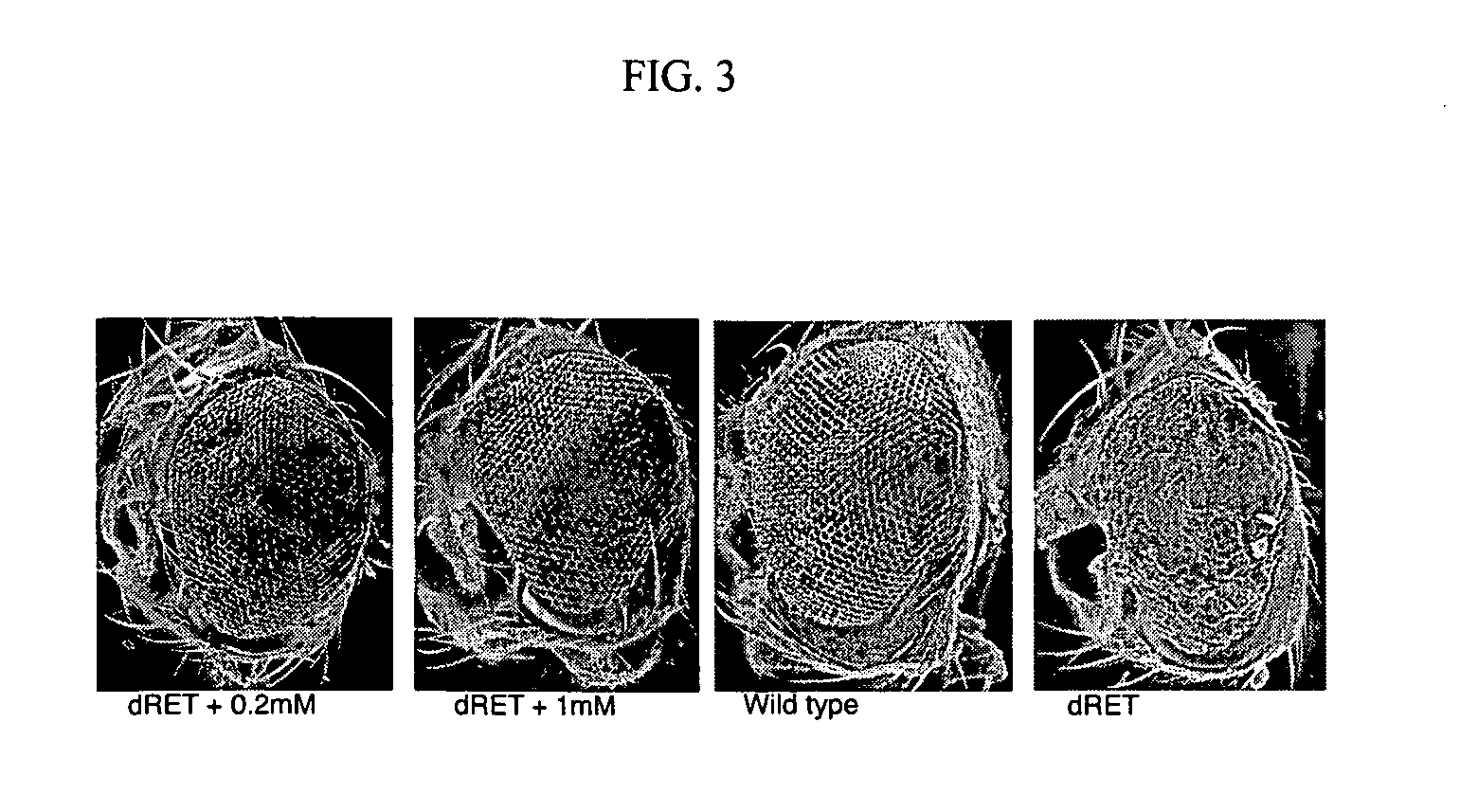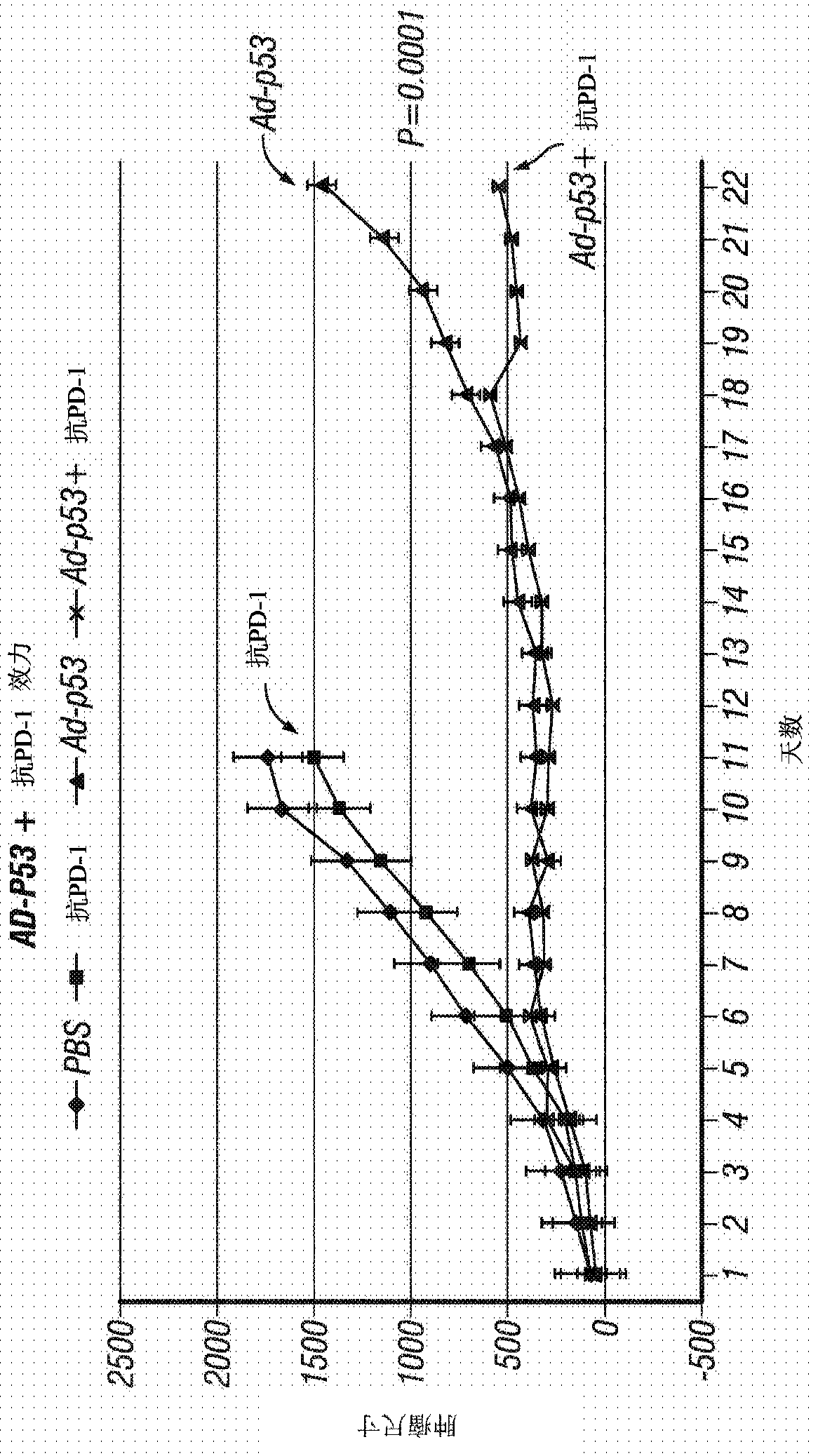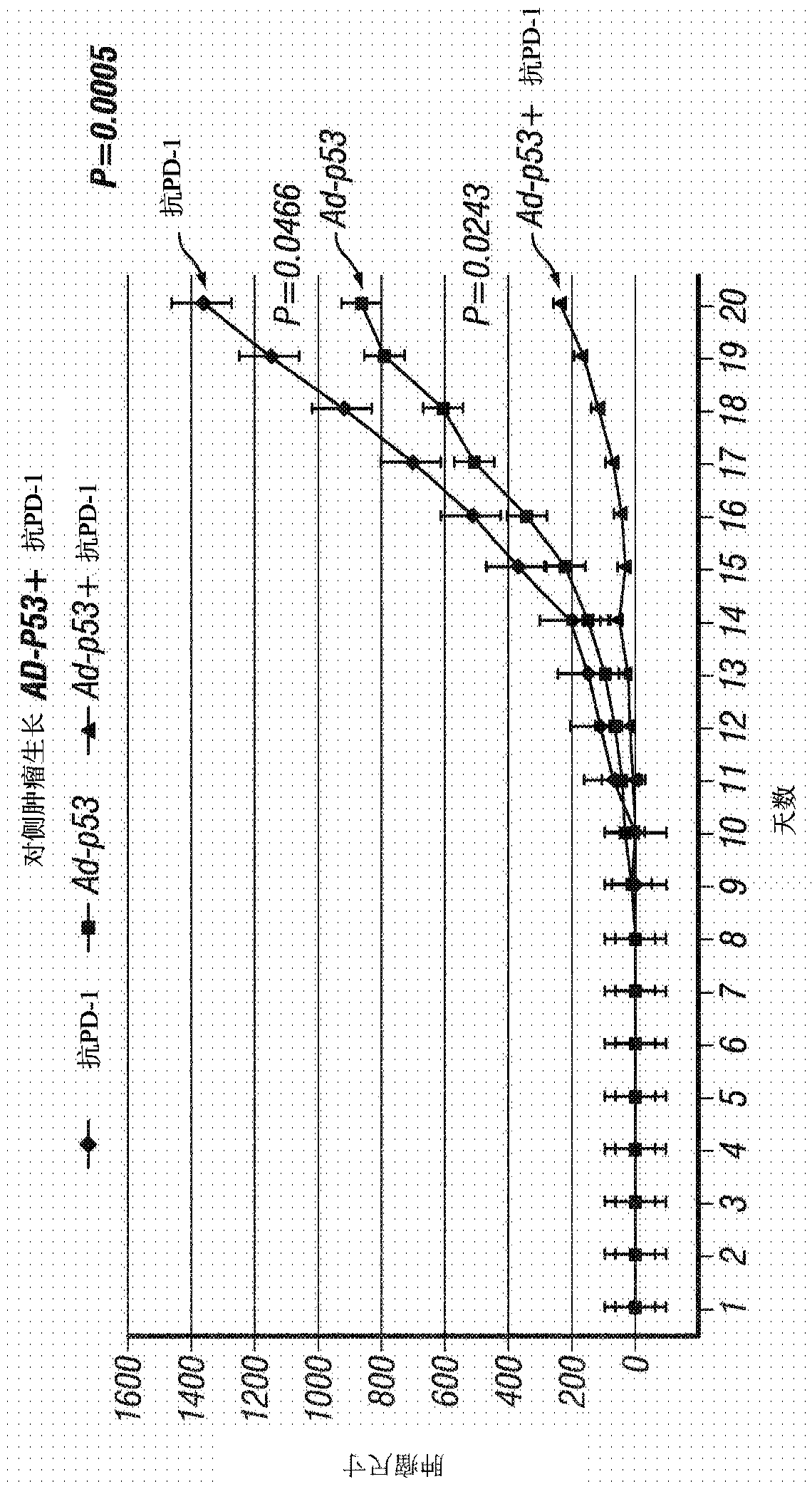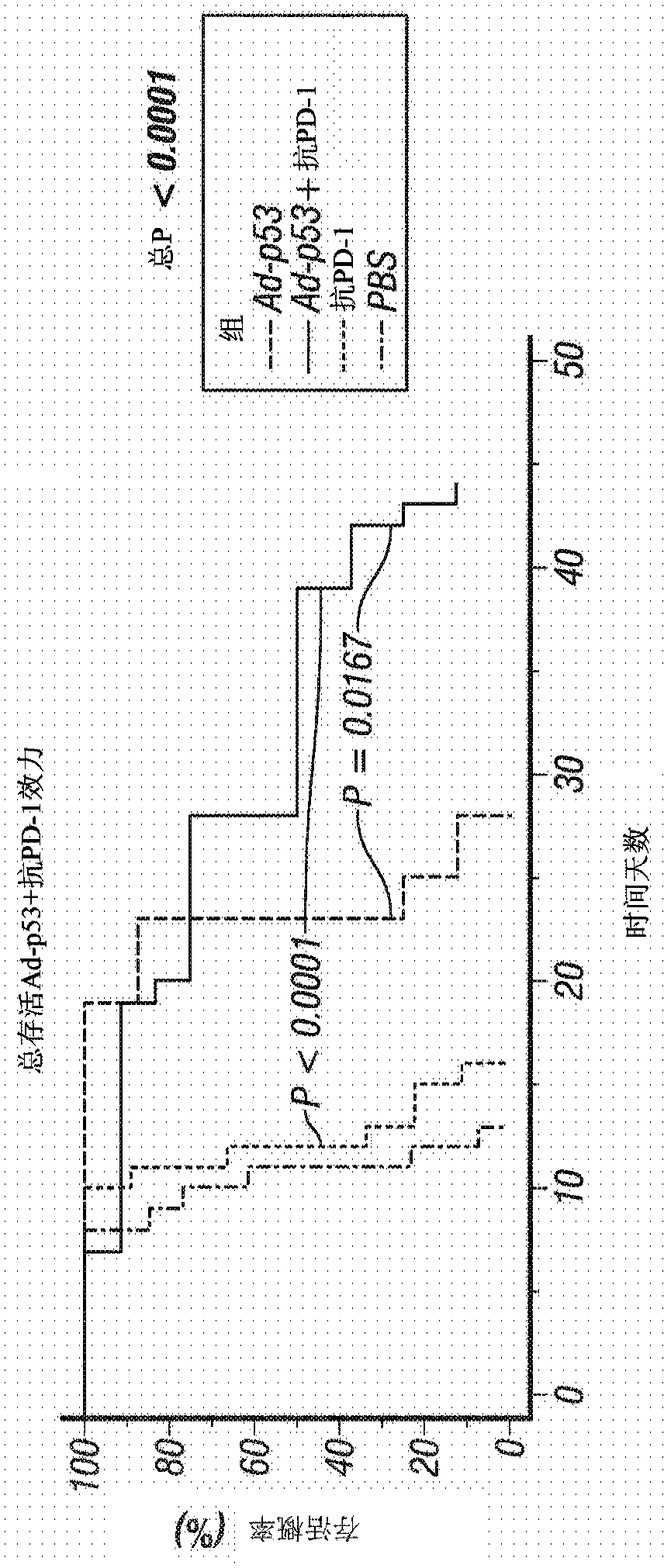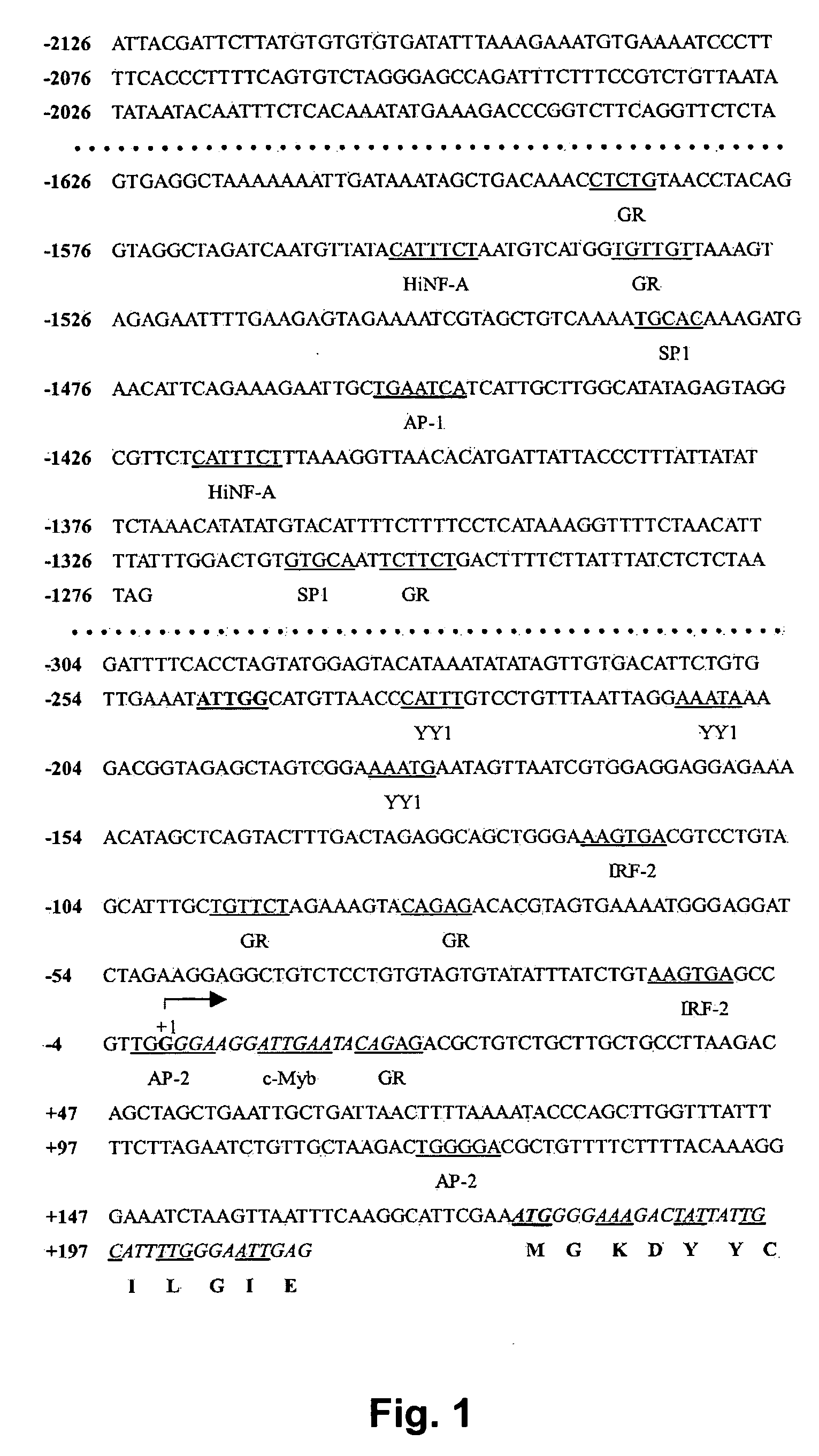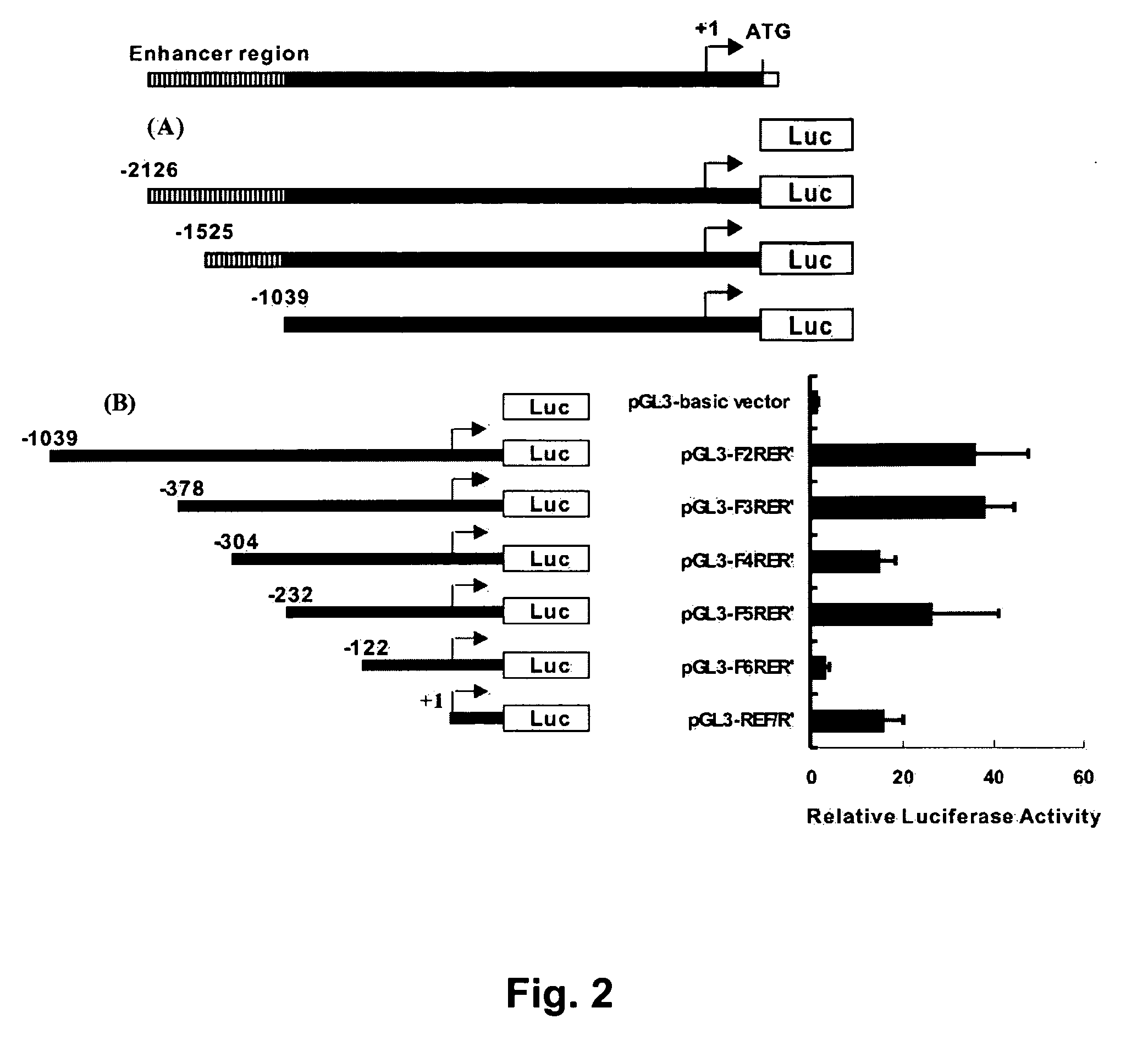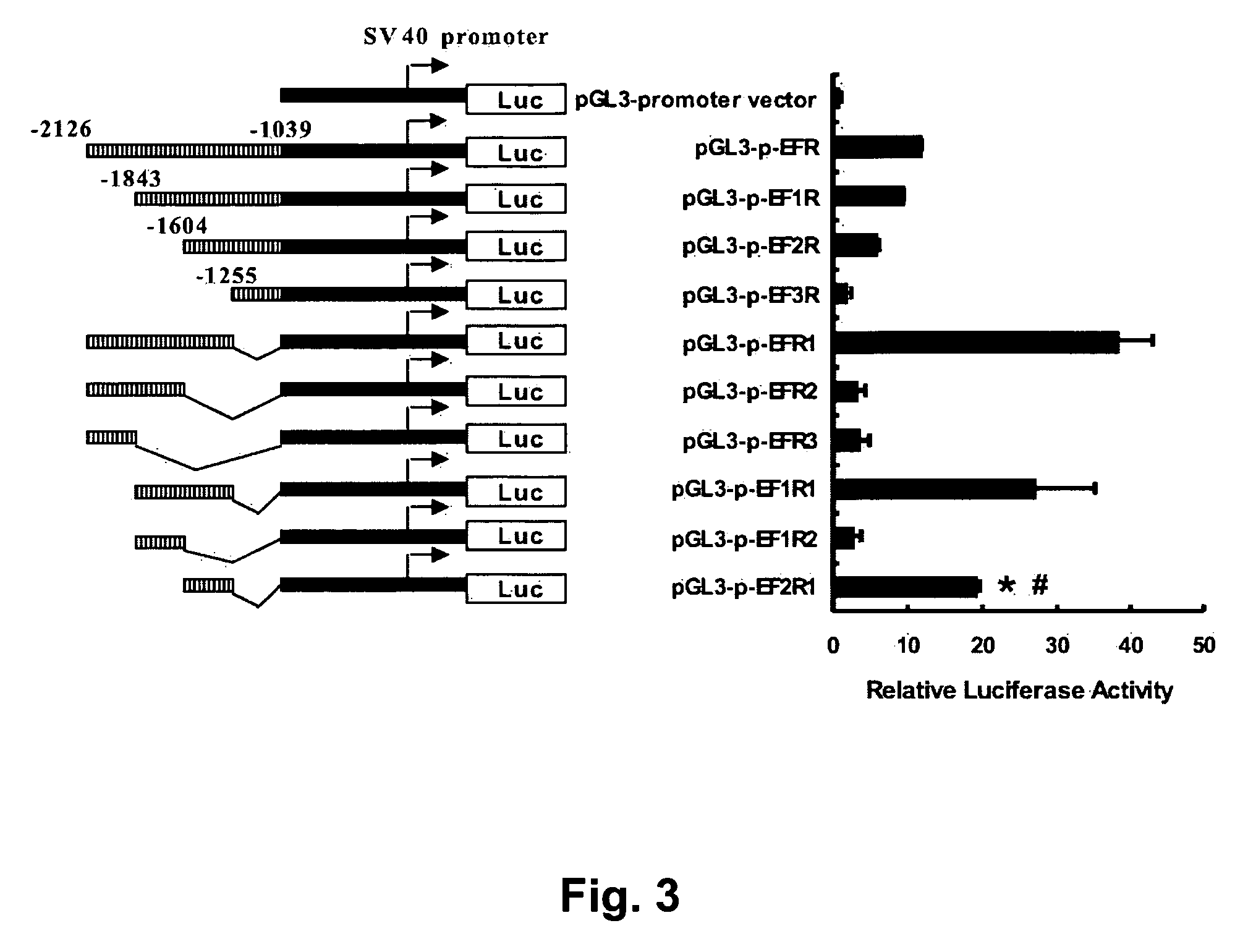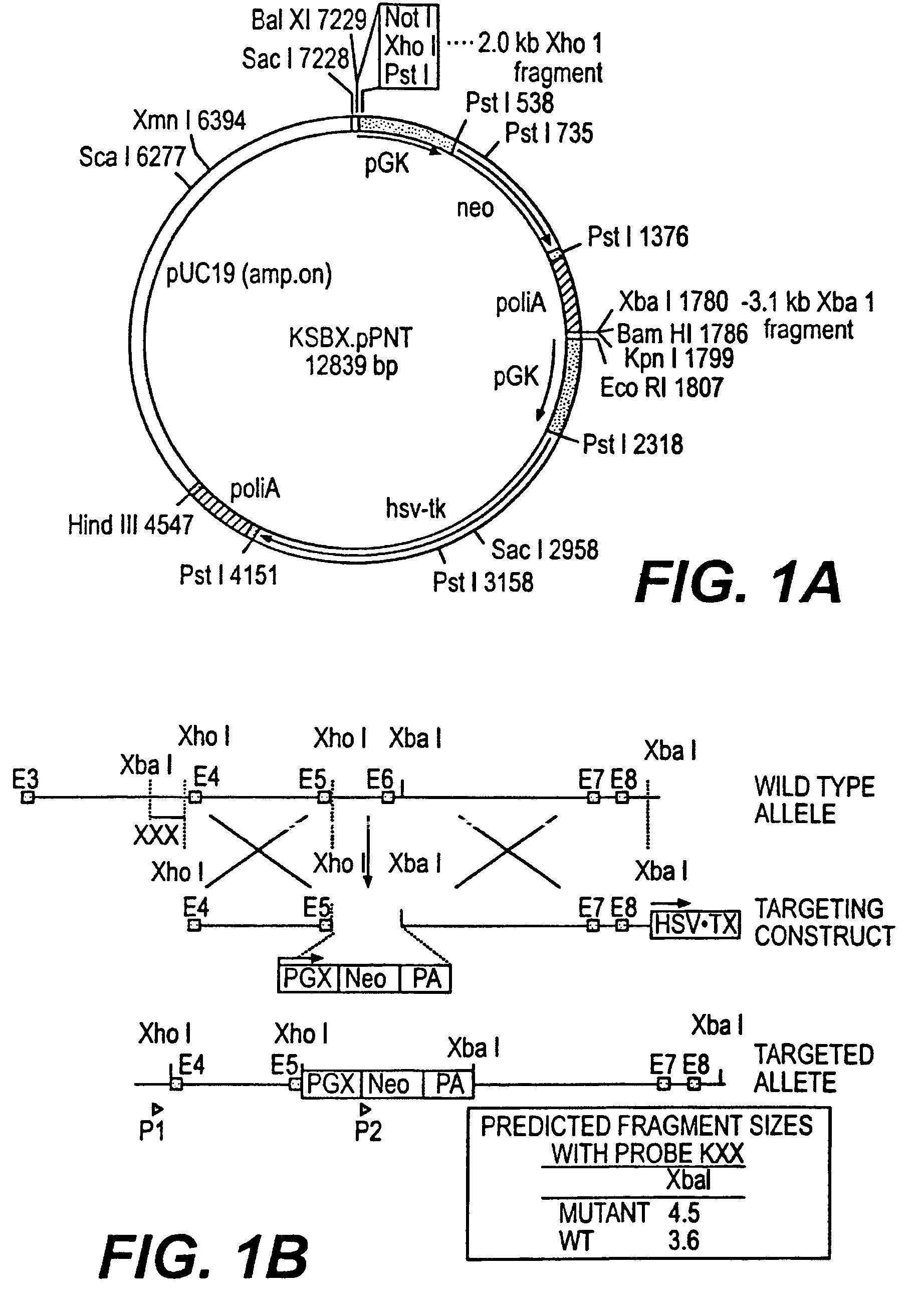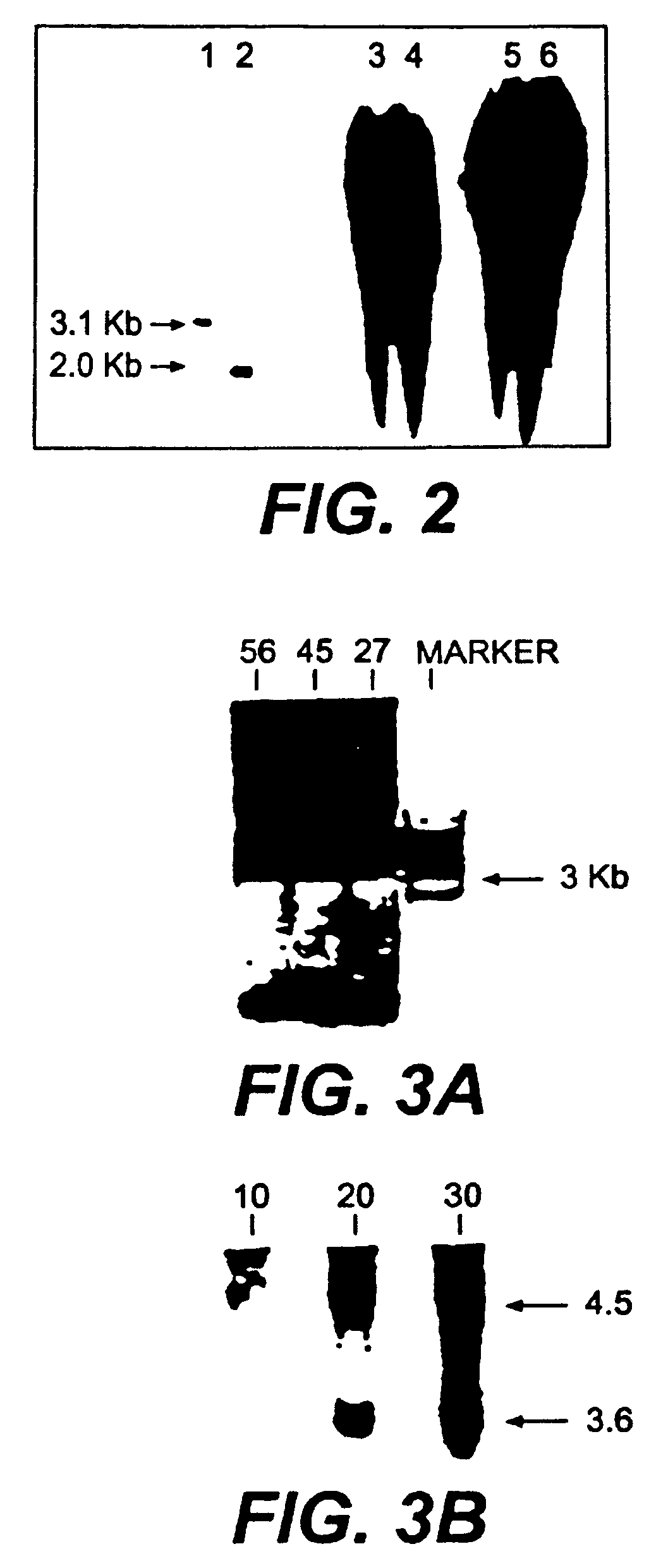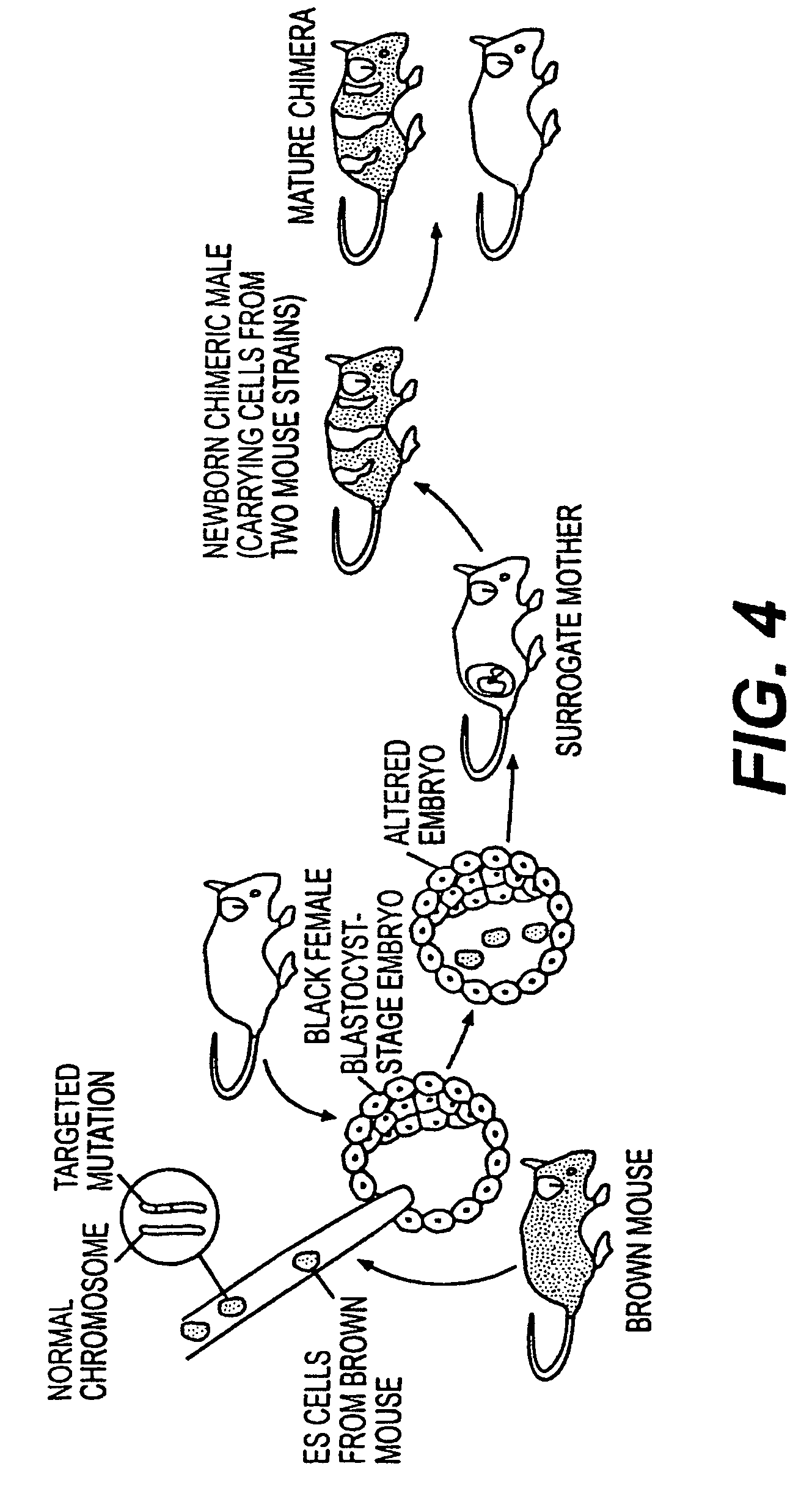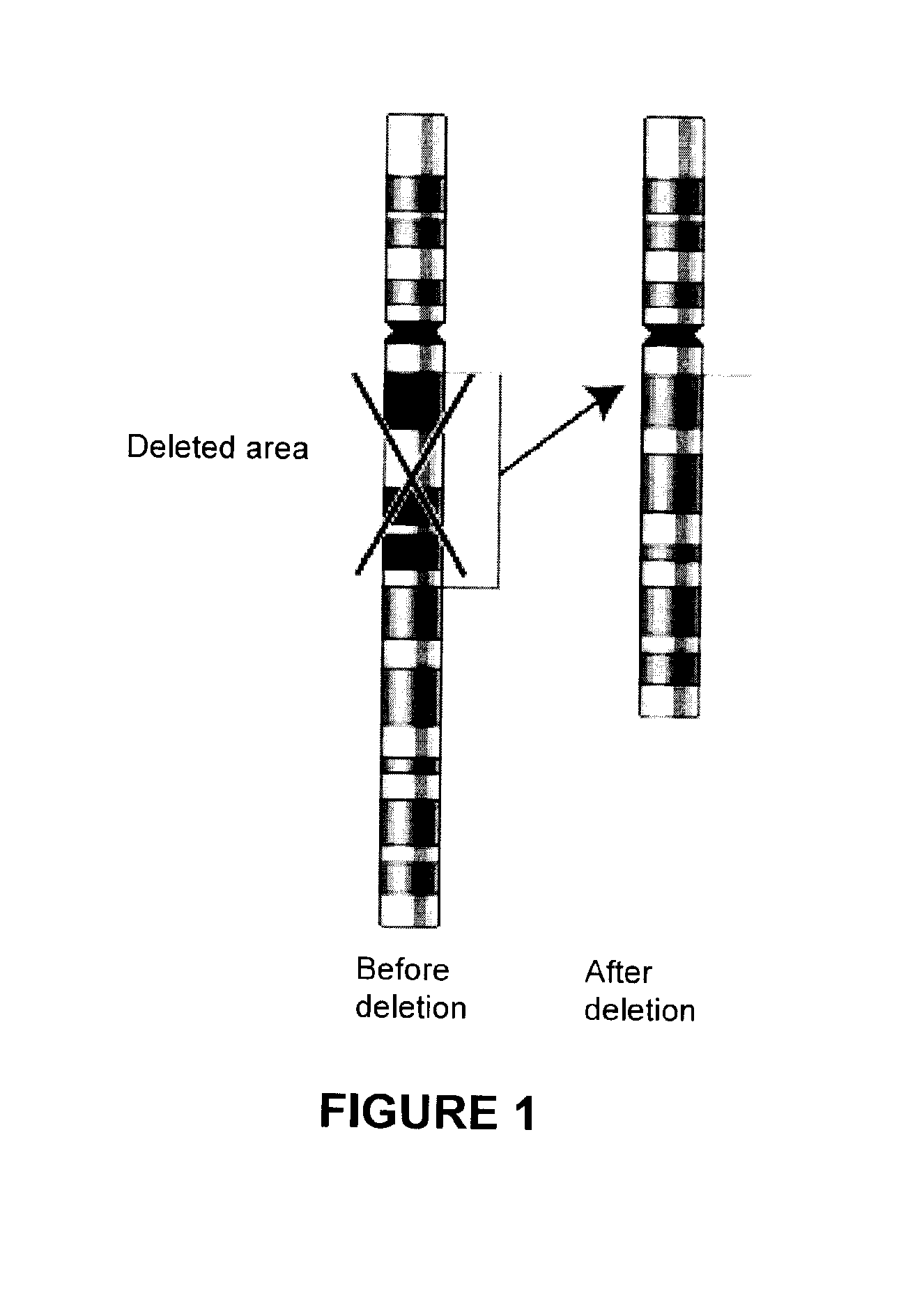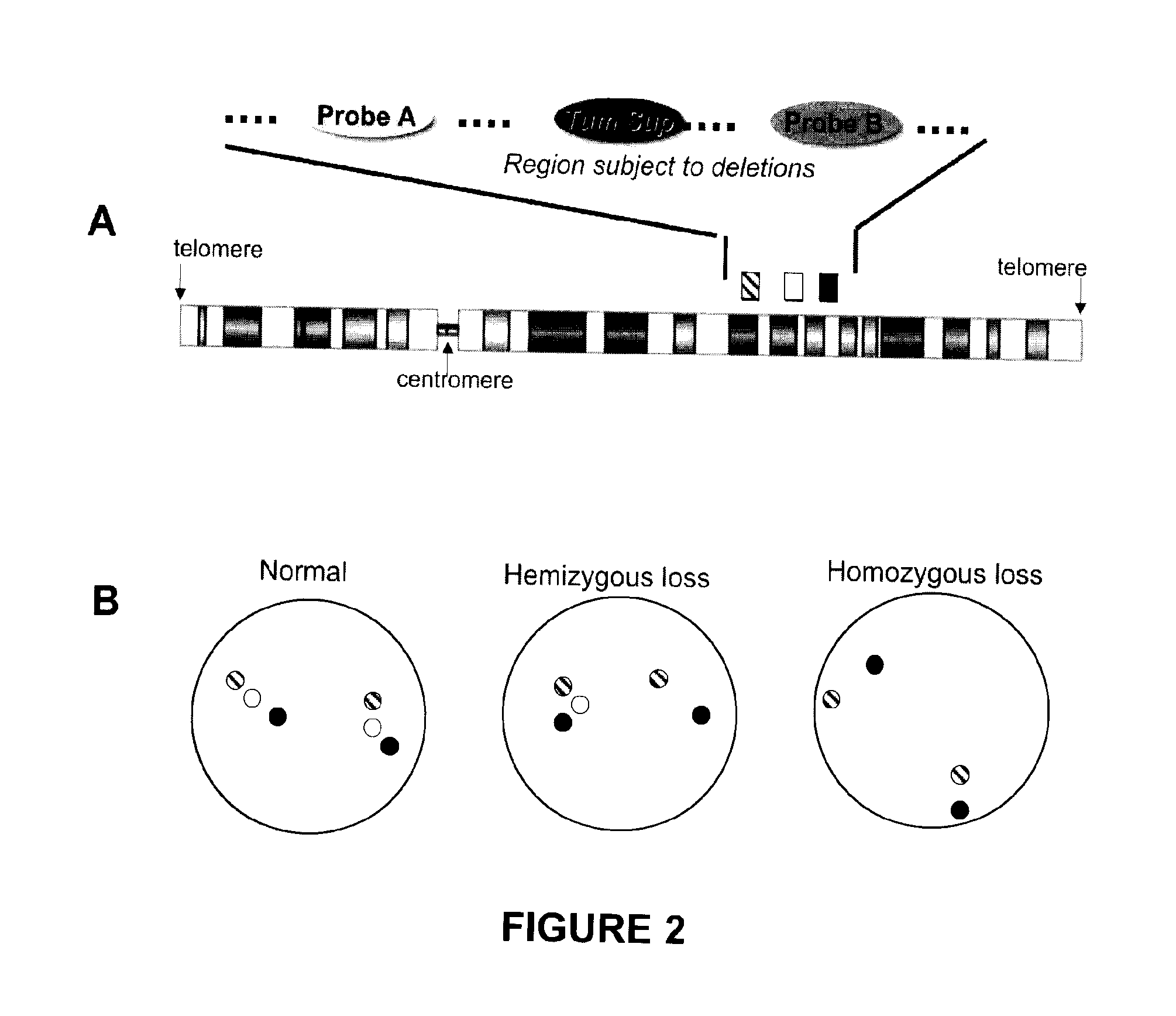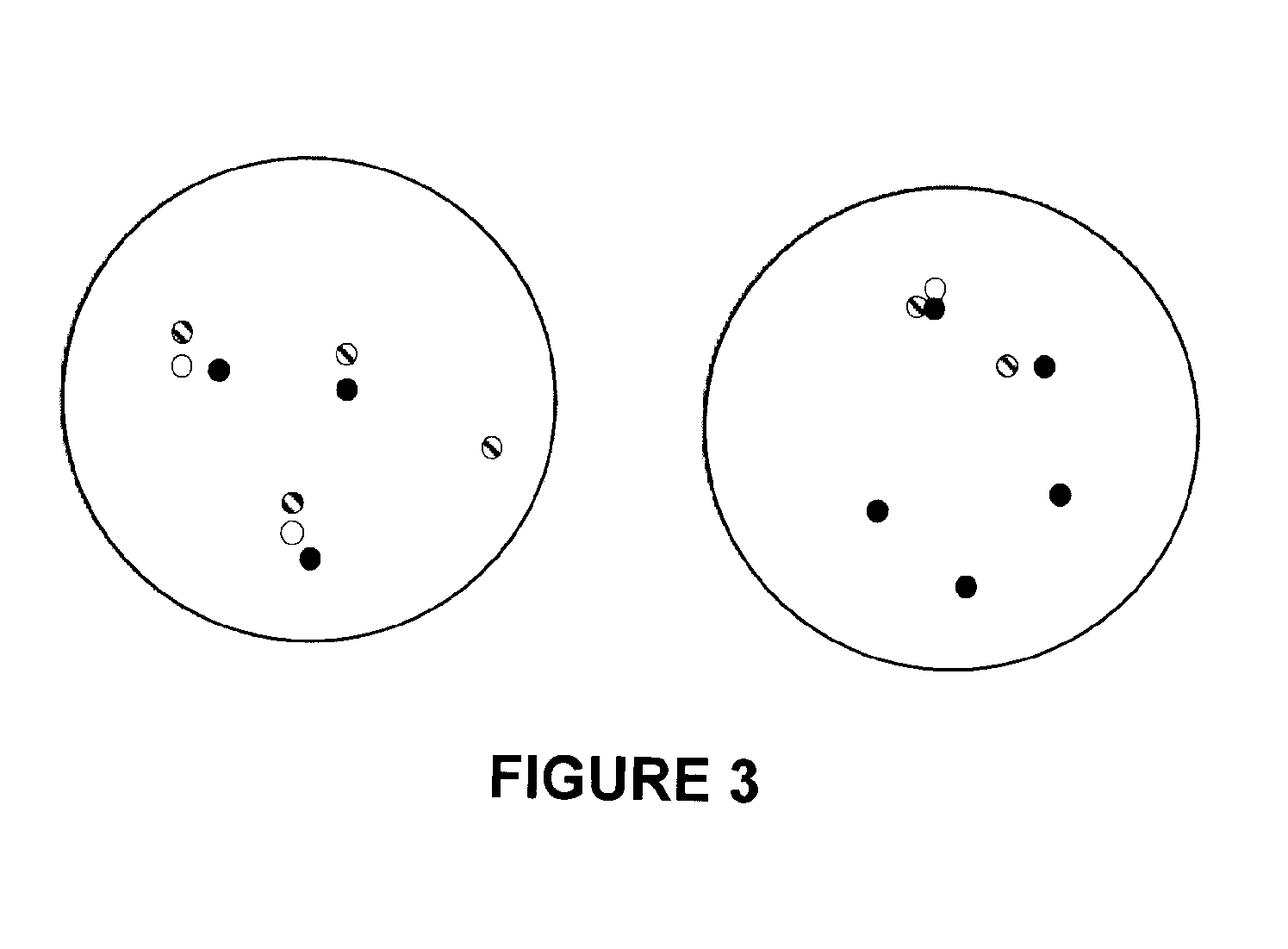Patents
Literature
Hiro is an intelligent assistant for R&D personnel, combined with Patent DNA, to facilitate innovative research.
81 results about "Tumour suppressor gene" patented technology
Efficacy Topic
Property
Owner
Technical Advancement
Application Domain
Technology Topic
Technology Field Word
Patent Country/Region
Patent Type
Patent Status
Application Year
Inventor
Tumour suppressor gene, also called antioncogene, any of a class of genes that are normally involved in regulating cell growth but that may become cancer-causing when damaged. Tumour suppressor genes encode for proteins that are involved in inhibiting the proliferation of cells, which is crucial to normal cell development and differentiation.
Novel tumor suppressor gene and compositions and methods for making and using the same
InactiveUS20050266443A1Sugar derivativesMicrobiological testing/measurementTumour suppressor geneGene product
The present invention relates to the identification and cloning of ARTS1, a novel tumor suppressor gene. The invention further encompasses isolated proteins encoded by ARTS1, methods of making and using the same, methods of diagnosing the presence of, or prediposition for, a cancer associated with a defective ARTS1 gene or gene product, and methods of treating or preventing cancers associated with a defective ARTS1 gene or gene product.
Owner:THOMAS JEFFERSON UNIV
Induced malignant stem cells
InactiveUS20140137274A1High and low degree of methylationSugar derivativesPeptide/protein ingredientsMicrosatelliteSomatic cell
PROBLEMThere are provided induced malignant stem cells capable of in vitro proliferation that are useful in cancer research and drug discovery for cancer therapy, as well as processes for production thereof, cancer cells derived from these cells, and applications of these cells.MEANS FOR SOLVINGAn induced malignant stem cell capable of in vitro proliferation are characterized by satisfying the following two requirements:(1) having at least one aberration selected from among (a) an aberration of methylation (high or low degree of methylation) in a tumor suppressor gene or a cancer-related genetic region in endogenous genomic DNA, (b) a somatic mutation of a tumor suppressor gene or a somatic mutation of an endogenous cancer-related gene in endogenous genomic DNA, (c) abnormal expression (increased or reduced / lost expression) of an endogenous oncogene or an endogenous tumor suppressor gene, (d) abnormal expression (increased or reduced / lost expression) of a noncoding RNA such as an endogenous cancer-related microRNA, (e) abnormal expression of an endogenous cancer-related protein, (f) an aberration of endogenous cancer-related metabolism (hypermetabolism or hypometabolism), (g) an aberration of endogenous cancer-related sugar chain, (h) an aberration of copy number variations in endogenous genomic DNA, and (i) instability of microsatellites in endogenous genomic DNA in an induced malignant stem cell; and(2) expressing genes including POU5F1 gene, NANOG gene, SOX2 gene, and ZFP42 gene.
Owner:ISHIKAWA
WWOX: a tumor suppressor gene mutated in multiple cancers
Owner:BOARD OF RGT THE UNIV OF TEXAS SYST
Wwox: a tumor suppressor gene mutated in multiple cancers
InactiveUS20060024780A1Sugar derivativesPeptide preparation methodsAbnormal tissue growthTumour suppressor gene
The present invention provides the isolation and cloning of WWOX, a novel WW domain-containing protein mapping to human chromosome 16q23.3-24.1, a region frequently affected in several cancers. This gene encodes a tumor suppressor with apoptotic functions. The invention provides WWOX nucleic acid- and polypeptide-based cancer therapies. The invention also provides methods for cancer detection, diagnosis and prognosis involving WWOX nucleic acids and polypeptides.
Owner:BOARD OF RGT THE UNIV OF TEXAS SYST
Methods of diagnosing or treating prostate cancer using the erg gene, alone or in combination with other over or under expressed genes in prostate cancer
ActiveUS20090170075A1Microbiological testing/measurementImmunoglobulins against cell receptors/antigens/surface-determinantsProstate cancer cellOncology
The present invention relates to oncogenes or tumor suppressor genes, as well as other genes, involved in prostate cancer and their expression products, as well as derivatives and analogs thereof. Provided are therapeutic compositions and methods of detecting and treating cancer, including prostate and other related cancers. Also provided are methods of diagnosing and / or prognosing prostate cancer by determining the expression level of at least one prostate cancer-cell-specific gene, including, for example, the ERG gene or the LTF gene alone, or in combination with at least one of the AMACR gene and the DD3 gene.
Owner:THE HENRY M JACKSON FOUND FOR THE ADVANCEMENT OF MILITARY MEDICINE INC
Compositions, kits, and methods relating to the human FEZ1 gene, a novel tumor suppressor gene
InactiveUS20070072230A1Increase stringencyInhibiting tumorigenesisSugar derivativesPeptide/protein ingredientsTumour suppressor geneHuman tumor
Owner:THOMAS JEFFERSON UNIV
Novel tumor suppressor gene and compositions and methods for making and using the same
InactiveUS20060105340A1Compound screeningApoptosis detectionTumour suppressor geneTumor suppressor gene
The present invention relates to the identification and cloning of ARTS-1, a novel tumor suppressor gene, to isolated proteins encoded by ARTS-1, and to methods of making and using the same.
Owner:THOMAS JEFFERSON UNIV
Tumor antigen based on products of the tumor suppressor gene WT1
InactiveUS20050266014A1Effect be exertPeptide/protein ingredientsTissue cultureTumour suppressor geneMajor histocompatibility
A tumor antigen that comprises, as an active ingredient, a product of the Wilms' tumor suppressor gene WT1 or a peptide composed of 7-30 contiguous amino acids containing an anchor amino acid for binding to major histocompatibility complex (MHC) class I in said amino acid sequence, and a vaccine comprising said antigen.
Owner:INT INST OF CANCER IMMUNOLOGY INC
Cell regulatory genes, encoded products, and uses related thereto
InactiveUS6946256B1Peptide/protein ingredientsImmunoglobulins against animals/humansSuppressorApoptosis
This application describes the cloning of p63, a gene at chromosome 3q27-29, that bears homology to the tumor suppressor p53. The p63 gene encodes at least six different isotypes. p63 was detected in a variety of human and mouse tissue and demonstrates remarkably divergent activities, such as the ability to transactivate p53 reporter genes and induce apoptosis. Isotopes of p63 lacking a transactivation domain act as dominant negatives towards the transactivation by p53 and p63.
Owner:THE BRIGHAM & WOMEN S HOSPITAL INC +2
Methylation markers for diagnosis and treatment of ovarian cancer
InactiveUS20070087365A1Reducing and inhibiting neoplastic growthRestoring expression of the polypeptide in the cellMicrobiological testing/measurementMaterial analysisTumour suppressor geneSilencing gene
Twenty-three markers are provided which are epigenetically silenced in ovarian cancers. The markers can be used diagnostically, prognostically, therapeutically, and for selecting treatments that are well tailored for an individual patient. Restoration of expression of silenced genes can be useful therapeutically, for example, if the silenced gene is a tumor-suppressor gene. Restoration can be accomplished by supplying non-methylated copies of the silenced genes or polynucleotides encoding their encoded products. Alternatively, restoration can be accomplished using chemical demethylating agents or methylation inhibitors. Kits for testing for epigenetic silencing can be used in the context of diagnostics, prognostics, or for selecting “personalized medicine” treatments.
Owner:MDXHEALTH
Tumor suppressor designated TS10q23.3
Owner:BOARD OF RGT THE UNIV OF TEXAS SYST
Novel human tumor inhibiting gene KIAA0157 and application thereof
The invention provides a novel human tumor inhibiting gene and an encoded protein thereof. The gene and the encoded protein can inhibit the growth of tumor cells, are down-regulated in various tumor tissues, and have a close relation with the generation of tumors. The gene and the encoded protein and derivatives thereof can be used for the diagnosis, treatment and drug screening of various tumors.
Owner:INST OF RADIATION MEDICINE ACAD OF MILITARY MEDICAL SCI OF THE PLA
Animal models of pancreatic adenocarcinoma and uses therefor
The present invention is based, at least in part, on the generation of an animal model of pancreatic adenocarcinoma which recapitulates the genetic and histological features of human pancreatic adenocarcinoma, including the initiation, maintenance, and progression of the disease. Accordingly, the present invention provides animal models of cancer, e.g., pancreatic adenocarcinoma, wherein an activating mutation of Kras has been introduced, and any one or more known or unknown tumor suppressor genes or loci, e.g., Ink4a / Arf, Ink4a, Arf, p53, Smad4 / Dpc, Lkb1, Brca2, or Mlh1, have been misexpressed, e.g., have been misexpressed leading to decreased expression or non-expression. The animal models of the invention may be used, for example, to identify biomarkers of pancreatic cancer, to identify agents for the treatment or prevention of pancreatic cancer, and to evaluate the effectiveness of potential therapeutic agents.
Owner:THE TRUSTEES OF THE UNIV OF PENNSYLVANIA +1
Genetically Modified Rat Models for Cancer
ActiveUS20100287628A1Nucleic acid vectorVector-based foreign material introductionProgenitorHuman cancer
This invention relates to the engineering of animal cells, preferably mammalian, more preferably rat, that are deficient due to the disruption of tumor suppressor gene(s) or gene product(s). In another aspect, the invention relates to genetically modified rats, as well as the descendants and ancestors of such animals, which are animal models of human cancer and methods of their use.
Owner:TRANSPOSAGEN BIOPHARM
Tumor suppressor designated TS10q23.3
Owner:BOARD OF RGT THE UNIV OF TEXAS SYST
Orthotopic, controllable, and genetically tractable non-human animal model for cancer
InactiveUS20090022685A1High resolutionBiocideOrganic active ingredientsAbnormal tissue growthCooperative interaction
This invention provides a genetically tractable in situ non-human animal model for hepatocellular carcinoma. The model is useful, inter alia, in understanding the molecular mechanisms of liver cancer, in understanding the genetic alterations (e.g., in oncogenes and tumor suppressor genes) that lead to chemoresistance or poor prognosis, and in identifying and evaluating new therapies against hepatocellular carcinomas. The liver cancer model of this invention is made by altering hepatocytes to increase oncogene expression, to reduce tumor suppressor gene expression or both, preferably by inducible, reversible, and / or tissue specific expression of double-stranded RNA molecules that interfere with the expression of a target gene, and by transplanting the resulting hepatocytes into a recipient non-human animal. The invention further provides a method to treat cancer involving cooperative interactions between a tumor cell senescence program and the innate immune system.
Owner:COLD SPRING HARBOR LAB INC
Protein Tyrosine Phosphate Mutations in Cancers
ActiveUS20080039417A1Growth inhibitionOrganic active ingredientsSugar derivativesAbnormal tissue growthCellular pathways
Tyrosine phosphorylation, regulated by protein tyrosine phosphatases (PTPs) and kinases (PTKs), is important in signaling pathways underlying tumorigenesis. A mutational analysis of the tyrosine phosphatase gene superfamily in human cancers identified 83 somatic mutations in six PTPs (PTPRF, PTPRG, PTPRT, PTPN3, PTPN13, PTPN14) affecting 26% of colorectal cancers and a smaller fraction of lung, breast and gastric cancers. Fifteen mutations were nonsense, frameshift or splice site alterations predicted to result in truncated proteins lacking phosphatase activity. Five missense mutations in the most commonly altered PTP (PTPRP) were biochemically examined and found to reduce phosphatase activity. Expression of wild-type but not a mutant PTPRT in human cancer cells inhibited cell growth. These observations suggest that the tyrosine phosphatase genes are tumor suppressor genes, regulating cellular pathways that may be amenable to therapeutic intervention.
Owner:THE JOHN HOPKINS UNIV SCHOOL OF MEDICINE
Bioactive FUS1 peptides and nanoparticle-polypeptide complexes
ActiveUS8338366B2Facilitates cellular uptakeBiocideOrganic active ingredientsTumour suppressor geneChemical Moiety
A nanoparticle-polypeptide complex comprising a bioactive polypeptide in association with a nanoparticle, wherein the bioactive polypeptide is modified by the addition of a chemical moiety that facilitates cellular uptake of the protein. The polypeptide can be a protein or a peptide. In some embodiments, the amino acid sequence of the protein or peptide is derived from the amino acid sequence of a tumor suppressor gene product.
Owner:BOARD OF RGT THE UNIV OF TEXAS SYST
Protamine-Adenoviral Vector Complexes and Methods of Use
InactiveUS20080044386A1High transduction efficiencyImprove therapeutic efficacyBiocidePeptide/protein ingredientsDiseaseNucleotide
Embodiments of the invention include methods and compositions including viral composition that have high transduction efficiencies in vivo, in vitro and ex vivo. The viral composition include a viral vector and a protamine molecule, wherein the viral vector includes a polynucleotide encoding a tumor suppressor gene. The methods of the invention include administering the viral composition to a patient or subject for treatment of disease, in particular cancer, that is characterized by a reduced vector-induced production of neutralizing antibodies and a decreased vector-induced toxicity as compared to delivery of viral vectors alone.
Owner:JI LIN +1
Cancer vaccine composition
ActiveCN101888852ATumor rejection antigen precursorsPeptide/protein ingredientsGene productFhit gene
Disclosed is a cancer vaccine composition for a human leukocyte antigen (HLA)-A*0206-positive subject, which is characterized by comprising a protein which is a gene product of a tumor suppressor gene WT1 or a partial peptide of the protein.
Owner:INT INST OF CANCER IMMUNOLOGY INC
Development and use of a new orthotopic, genetically tractable non-human animal model for liver cancer
InactiveUS20060162000A1High resolutionPoor prognosisVirusesNew breed animal cellsTumour suppressor geneHuman animal
This invention provides a genetically tractable in situ non-human animal model for hepatocellular carcinoma. The model is useful, inter alia, in understanding the molecular mechanisms of liver cancer, in understanding the genetic alterations that lead to chemoresistance or poor prognosis, and in identifying and evaluating new therapies against hepatocellular carcinomas. The liver cancer model of this invention is made by altering hepatocytes to increase oncogene expression, to reduce tumor suppressor gene expression or both and by transplanting the resulting hepatocytes into a recipient non-human animal.
Owner:COLD SPRING HARBOR LAB INC
Method for treating brain cancer using a novel tumor suppressor gene and secreted factor
ActiveUS20130012452A1Improve survivalReduction in tumor massPeptide/protein ingredientsAntineoplastic agentsBrain cancersTumor suppressor gene
The present invention is directed to methods of using HSS1 (Hematopoietic Signal peptide-containing Secreted 1), HSM1 (Hematopoietic Signal peptide-containing Membrane domain-containing 1), or a combination thereof in the treatment of various cancers, such as brain cancers.
Owner:NEUMEDICINES INC
Method of treating a cancer
InactiveUS20060115829A1Restores expressionRapid demethylationVirusesSugar derivativesCancer preventionTumour suppressor gene
The present invention provides isolated nucleic acids encoding delta DNA methyltransferase 3B molecules that are involved in the treatment and prevention of cancers such as, but not limited to, lung cancer. The delta DNA methyltransferase 3B molecules of the present invention are found to play a critical role in promoter-specific methylation of tumor suppressor genes. The DNA methyltransferase 3B molecules of the present invention are provided as therapeutic targets for identifying inhibitors of DNA methyltransferase. Such inhibitors are contemplated for the treatment and / or prevention of cancers. In particular embodiments, the present invention involves the treatment and prevention of a non-small cell lung cancer.
Owner:BOARD OF RGT THE UNIV OF TEXAS SYST
Tumor suppressor gene, p28ing5
InactiveUS20050097626A1Prevent proliferationPrevent tumorSugar derivativesDepsipeptidesAbnormal tissue growthTumour suppressor gene
This disclosure provides a novel tumor suppressor, referred to as p28ING5, nucleic acid molecules encoding this protein, and methods of making and using these molecules. Also provided are methods of ameliorating, treating, detecting, prognosing, and diagnosing diseases and conditions associated with abnormal p28ING5 expression, such as neoplasia. Kits are also provided.
Owner:HEALTH & HUMAN SERVICES THE GOVERNMENT OF THE UNITED STATES OF AMERICA AS REPRESENTED BY THE SEC OF THE DEPT OF
High throughput cancer pharmaceutical screening using drosophila
InactiveUS20060010505A1Easy to practiceEasy to adaptOncogene translation productsGenetic engineeringAbnormal tissue growthTumour suppressor gene
Owner:WASHINGTON UNIV IN SAINT LOUIS
Dock 3 tumor suppressor gene
InactiveUS20060041111A1High expressionReduce expressionAnimal cellsSugar derivativesTumour suppressor geneDisease
The invention relates to a newly identified tumor suppressor gene, designated DOS (for Deleted in Osteosarcoma and alternatively referred to herein as DOCK 3) which has been cloned from human and mouse cells. The DOS nucleic acid and protein molecules and their use in the diagnosing and treating disorders characterized by aberrant DOS molecule expression are described.
Owner:THE GENERAL HOSPITAL CORP
Methods and compositions comprising tumor suppressor gene therapy and immune checkpoint blockade for the treatment of cancer
InactiveCN108884159AOrganic active ingredientsPeptide/protein ingredientsTumour suppressor geneAbnormal tissue growth
Provided herein are methods and compositions for treating cancer in an individual comprising administering to the individual an effective amount of at least one immune checkpoint inhibitor and a p53 and / or MDA-7 (IL24) gene therapy. Also provided herein are methods of enhancing anti-tumor efficacy by administering an extracellular matrix-degrading protein. Also provided herein are methods of enhancing anti-tumor efficacy by administering metronomic chemotherapy (for agents described above, 5FU+CTX+GM-CSF) in combination with a p53 and / or IL24 gene therapy.
Owner:MULTIVIR INC
HLJ1 gene expression
InactiveUS20060194235A1Increase transcriptionSlow metastasisCompound screeningApoptosis detectionTumour suppressor genePromoter activity
The human HLJ1 tumor suppressor gene is herein defined as regulated by promoter, enhancer, and silencer regions. HLJ1 promoter activity and gene expression are inversely correlated with metastatic ability. HLJ1 is highly expressed, and inducible, in cells with low metastatic ability and expressed to a lesser extent in highly metastatic cells. HLJ1 gene expression suppressed the growth of human lung adenocarcinoma cells in vitro, and inhibited tumor growth in vivo. It also impeded the motility of human adenocarcinoma cells and reduced the anchorage-independent growth capacity and invasiveness of metastatic lung adenocarcinoma cells. The degree to which human lung adenocarcinoma patients express HLJ1 predicts their survival prognosis and their probability of relapse.
Owner:NAT HEALTH RES INSTITUES
Knockout mouse for the tumor suppressor gene ANX7
InactiveUS7504223B2Inhibit cell proliferationVirusesMicrobiological testing/measurementKnockout animalOncology
This invention provides methods, including a method of assessing the prognosis of a breast cancer patient, comprising assaying for loss of heterozygosity at the 10q21 region of the genome of the patient, a method of identifying a probability that a patient with breast cancer has metastasized breast cancer, a method of determining a survival probability of a patient with breast cancer, and a method of identifying a probability that a patient with prostate cancer has a severe form of prostate cancer. This invention also provides assay complexes, including assay complexes which comprise at least one prostate tissue sample or tissue sample extract, an antibody that specifically binds ANX7, and a label, or which comprise at least one breast tissue sample or tissue sample extract, an antibody that specifically binds ANX7, and a label.
Owner:THE HENRY M JACKSON FOUND FOR THE ADVANCEMENT OF MILITARY MEDICINE INC
Methods, probe sets, and kits for detection of deletion of tumor suppressor genes by fluorescence in situ hybridization
InactiveUS20130071843A1Improve performanceHigh sensitivityMicrobiological testing/measurementIn situ hybridisationTumour suppressor gene
Methods, probe sets, kits, and compositions for gene deletion assays are disclosed. In some embodiments, the methods relate to preparing probes for a deletion assay, performing a deletion assay, or optimizing a deletion assay. In some embodiments, the methods and probe sets can provide reduced artifactual deletion frequency, for example, when analyzing samples subject to truncation artifacts. In some embodiments, the methods and probe sets can distinguish between small and large deletions.
Owner:KINGSTON HEALTH SCI CENT +1
Features
- R&D
- Intellectual Property
- Life Sciences
- Materials
- Tech Scout
Why Patsnap Eureka
- Unparalleled Data Quality
- Higher Quality Content
- 60% Fewer Hallucinations
Social media
Patsnap Eureka Blog
Learn More Browse by: Latest US Patents, China's latest patents, Technical Efficacy Thesaurus, Application Domain, Technology Topic, Popular Technical Reports.
© 2025 PatSnap. All rights reserved.Legal|Privacy policy|Modern Slavery Act Transparency Statement|Sitemap|About US| Contact US: help@patsnap.com
